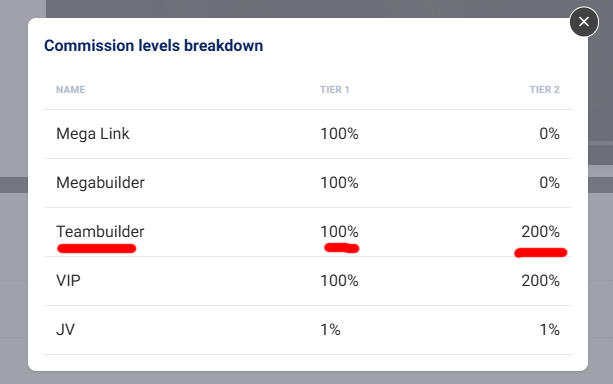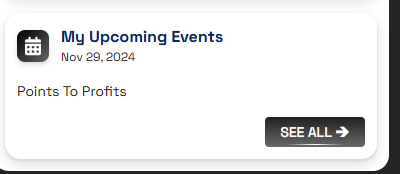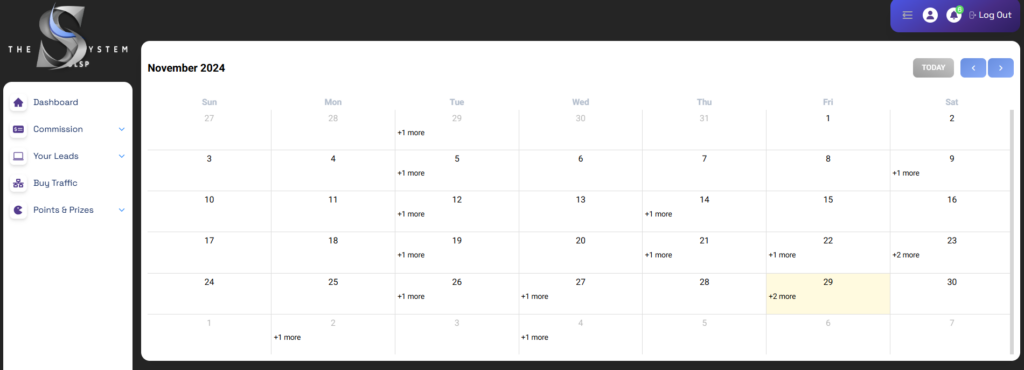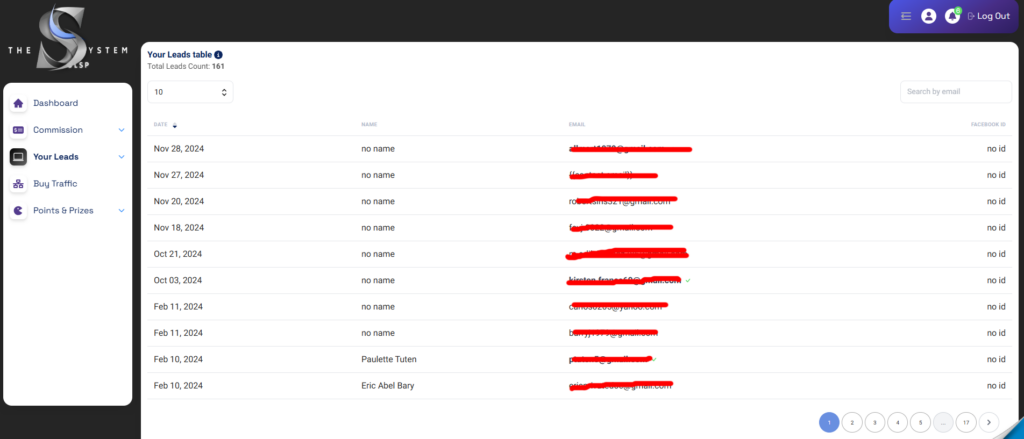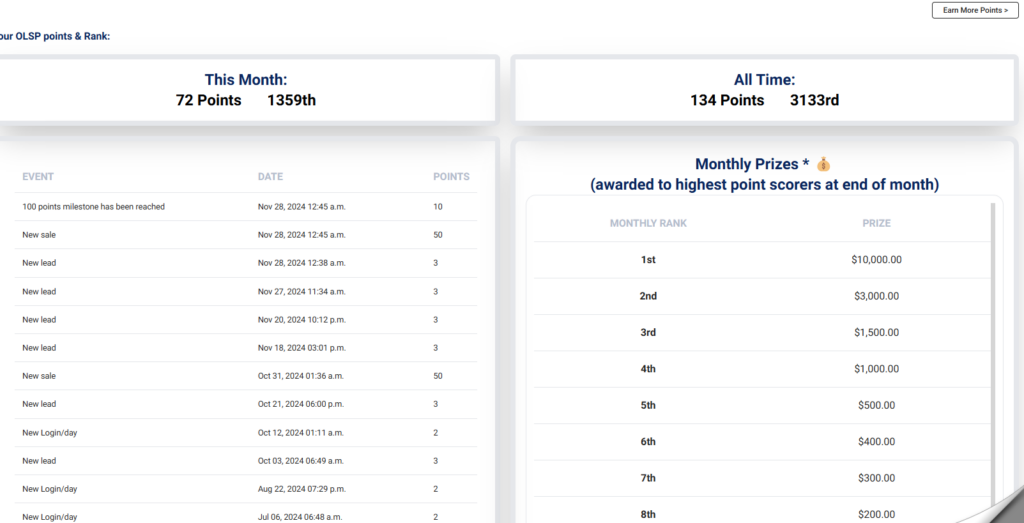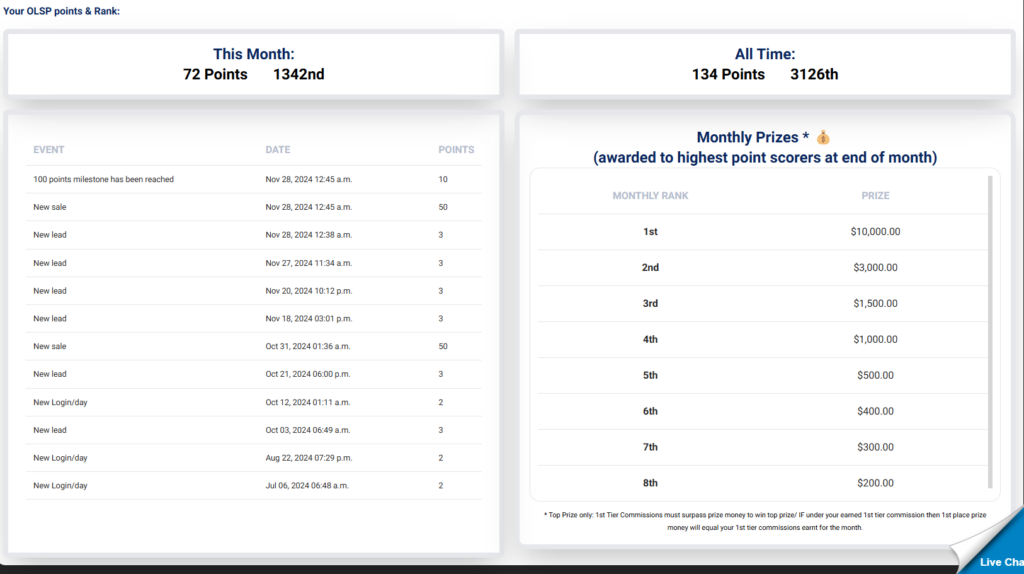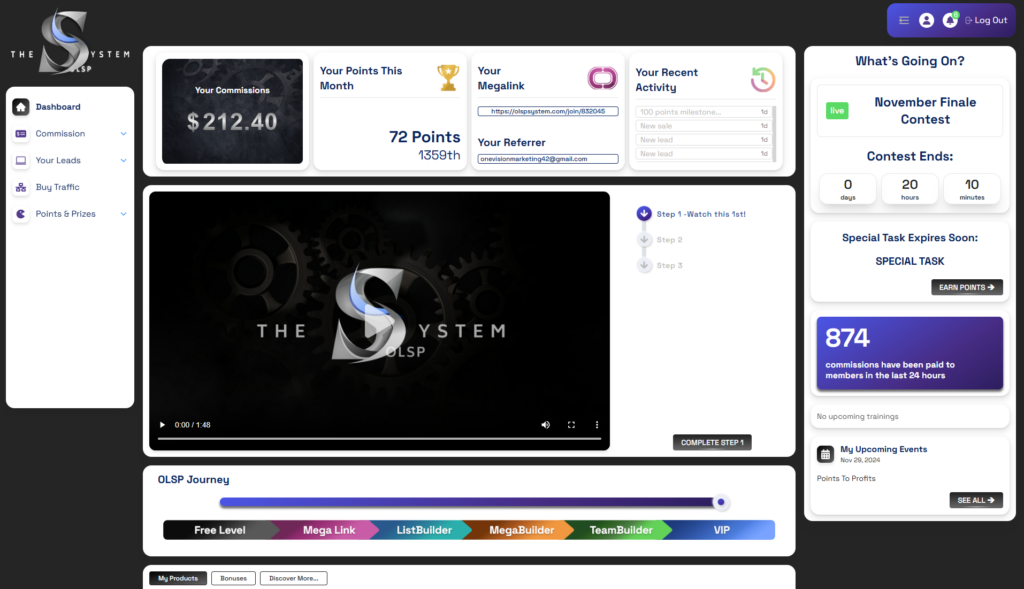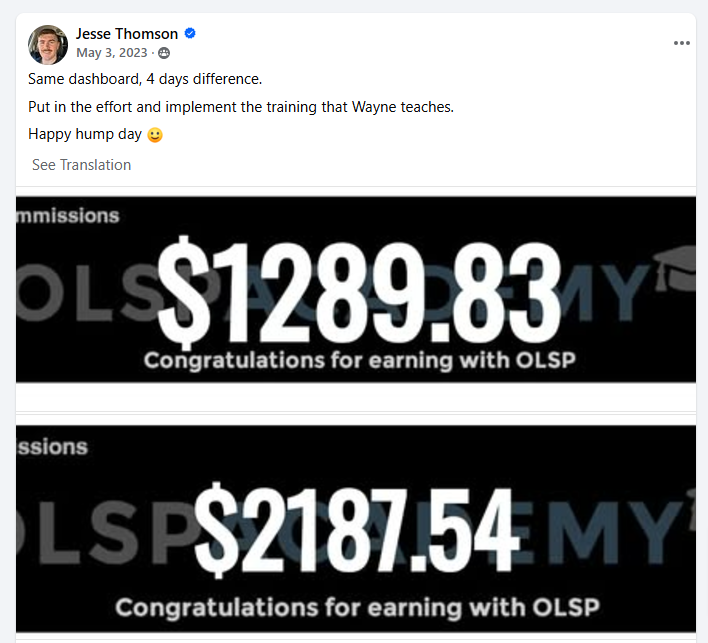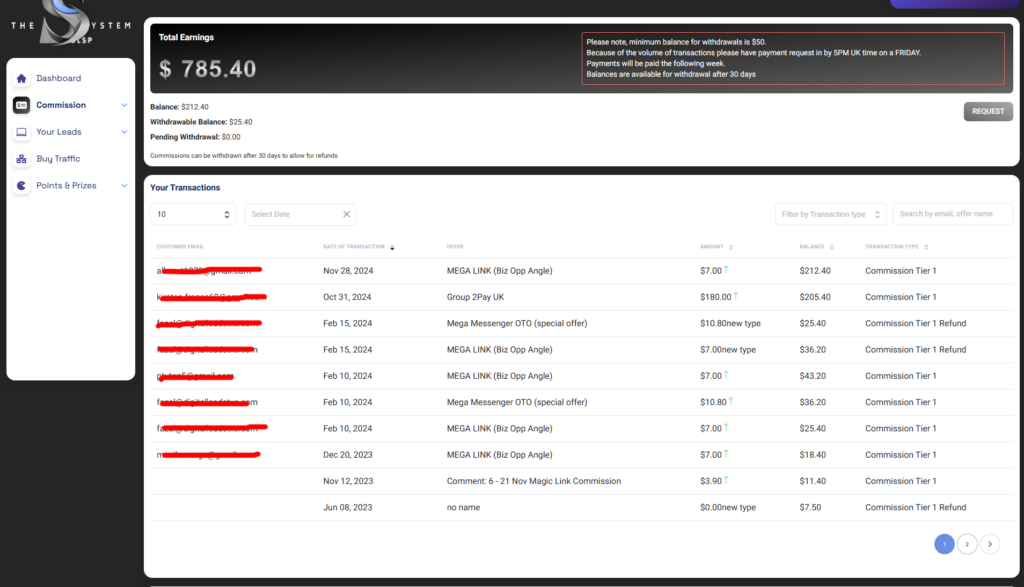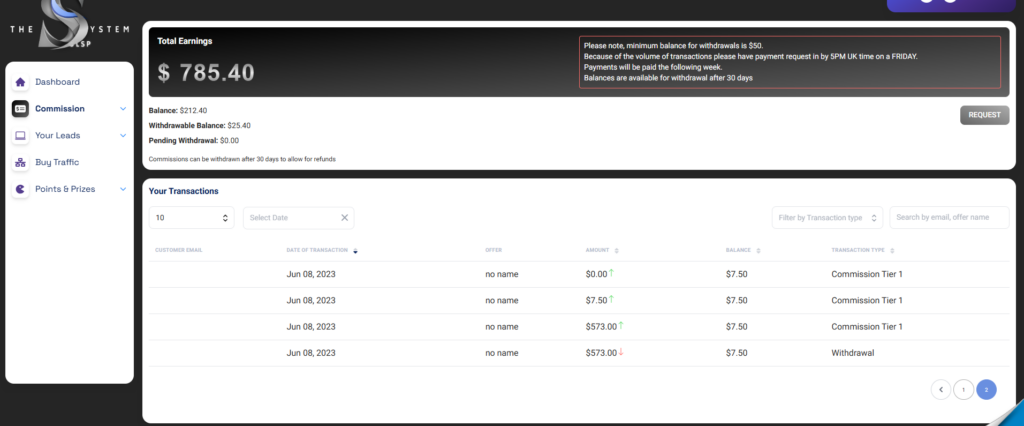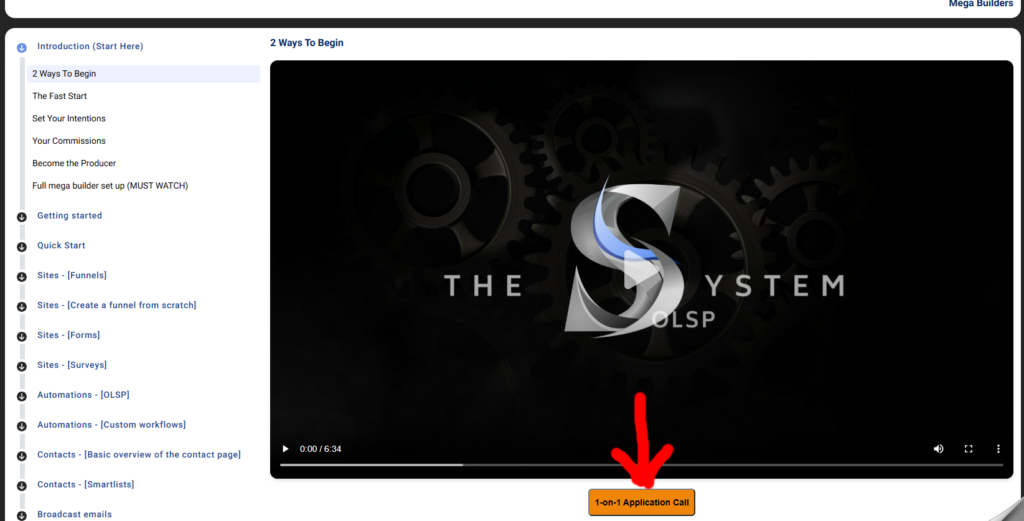Kris Harper
virtual assistant jobs no experience
In 2023, the demand for virtual assistant jobs has surged, creating exciting opportunities for many. Companies are increasingly turning to virtual assistants to help manage their tasks and improve efficiency. This article explores the reasons behind this growth, the essential skills needed to succeed, how to start a career in this field, the benefits of being a virtual assistant, the challenges faced, and future trends that might shape this profession.
Key Takeaways
- Many businesses are hiring virtual assistants to save time and money.
- Skills like communication and organization are very important for virtual assistants.
- Starting as a virtual assistant requires a good online presence and networking.
- Working as a virtual assistant offers flexibility and a better work-life balance.
- The future of virtual assistant jobs will be influenced by technology and global opportunities.
The Growing Demand for Virtual Assistant Jobs
In recent years, the need for virtual assistants has skyrocketed. Companies are realizing the benefits of hiring virtual help, which allows them to focus on their core tasks while saving money.
Why Companies Are Hiring More Virtual Assistants
Many businesses are turning to virtual assistants for several reasons:
- Cost-effectiveness: Hiring a virtual assistant can be cheaper than employing full-time staff.
- Flexibility: Virtual assistants can work on-demand, which is great for businesses with fluctuating workloads.
- Access to a global talent pool: Companies can find skilled assistants from anywhere in the world.
Industries Leading the Charge
Some industries are particularly keen on hiring virtual assistants, including:
- E-commerce: Managing online stores and customer service.
- Real Estate: Handling administrative tasks and client communications.
- Healthcare: Assisting with scheduling and patient follow-ups.
The Role of Technology in This Surge
Technology plays a huge part in the rise of virtual assistant jobs. With tools like video conferencing, project management software, and communication apps, it’s easier than ever to work remotely. The global virtual assistant market share is booming, with the market size valued at approximately USD 3.07 billion in 2023 and expected to reach USD 19.27 billion by 2032. This growth shows just how important virtual assistants are becoming in today’s workforce.
The future looks bright for virtual assistants, as more companies recognize their value and the flexibility they bring to the table.
Essential Skills for Success in Virtual Assistant Roles
In the world of virtual assistants, having the right skills can make all the difference. These skills not only help you stand out but also ensure you can meet your clients’ needs effectively. Here are some essential skills you should focus on:
Communication and Organizational Skills
- Clear and friendly communication is key.
- Being organized helps you manage tasks better.
- Listening to clients’ needs is crucial for success.
Technical Proficiency and Tools
- Familiarity with tools like Google Workspace and Microsoft Office is important.
- Knowing how to use project management software can boost your efficiency.
- Basic knowledge of social media platforms can help in marketing.
Time Management and Flexibility
- Prioritizing tasks helps you meet deadlines.
- Being flexible allows you to adapt to changing client needs.
- Setting a schedule can keep you on track.
Mastering these skills can open doors to many opportunities in the virtual assistant field.
By focusing on these areas, you can enhance your chances of success in this growing job market. Remember, the right skills can help you excel in remote work opportunities!
How to Get Started as a Virtual Assistant
Getting into the world of virtual assistance can be exciting and rewarding! Here’s how you can kick off your journey:
Building a Strong Online Presence
To attract clients, you need to showcase your skills online. Here are some steps to help you:
- Create a professional website that highlights your services.
- Use social media platforms to connect with potential clients.
- Join online communities where you can share your expertise and learn from others.
Networking and Finding Clients
Networking is key in this field. Here are some tips:
- Attend virtual events and webinars to meet people.
- Reach out to friends and family to let them know you’re available for work.
- Use job boards specifically for virtual assistants to find opportunities.
Setting Competitive Rates
Deciding how much to charge can be tricky. Consider these points:
- Research what other virtual assistants are charging.
- Think about your skills and experience when setting your rates.
- Be open to adjusting your prices as you gain more experience.
Starting as a virtual assistant can open many doors for you. With the right approach, you can build a successful career!
Remember, the first steps are crucial. Focus on what services you want to offer, build your skills, and create a strong online presence. Soon, you’ll be on your way to becoming a sought-after virtual assistant!
The Benefits of Working as a Virtual Assistant
Work-Life Balance and Flexibility
One of the best things about being a virtual assistant is the flexibility it offers. You can often set your own hours and work from anywhere. This means you can balance your work with personal life, whether that’s spending time with family or pursuing hobbies.
Opportunities for Skill Development
Working as a virtual assistant allows you to learn and grow. You can pick up new skills like:
- Communication: Talking and writing clearly.
- Tech Skills: Learning new software and tools.
- Time Management: Juggling tasks efficiently.
Financial Advantages and Savings
Being a virtual assistant can also be good for your wallet. You save money on commuting and work clothes. Plus, you can often charge competitive rates for your services. Here’s a quick look at potential earnings:
| Experience Level | Average Hourly Rate |
|---|---|
| Beginner | $15 – $25 |
| Intermediate | $25 – $50 |
| Expert | $50+ |
Working as a virtual assistant can lead to a fulfilling career with many perks. It’s a great way to earn money while enjoying life!
Challenges and Solutions in Virtual Assistant Jobs

Managing Multiple Clients Effectively
Handling several clients can be tricky. Here are some tips to make it easier:
- Prioritize tasks based on deadlines.
- Use project management tools to keep everything organized.
- Set clear boundaries with clients about your availability.
Overcoming Isolation and Staying Motivated
Working from home can feel lonely sometimes. To stay motivated:
- Create a dedicated workspace.
- Schedule regular breaks to recharge.
- Connect with other virtual assistants online for support.
Ensuring Data Security and Privacy
Keeping client information safe is super important. Here’s how to do it:
- Use strong passwords and change them regularly.
- Invest in reliable security software.
- Educate yourself about data protection laws.
Remember, every challenge has a solution! With the right tools and mindset, you can thrive as a virtual assistant.
To tackle the issue of managing time zones, consider using technology-based solutions like collaboration and project management tools. These platforms help you stay connected and organized, making it easier to work with clients from different parts of the world.
By addressing these challenges head-on, you can create a successful and fulfilling career as a virtual assistant!
Future Trends in Virtual Assistant Jobs
As we look ahead, the world of virtual assistant jobs is changing fast. The rise of technology is reshaping how we work, and virtual assistants are at the forefront of this change.
The Impact of AI and Automation
With advancements in artificial intelligence, many tasks that used to take hours can now be done in minutes. According to a report by McKinsey & Company, 45% of administrative tasks are expected to be automated by 2025. This means virtual assistants will need to adapt and focus on more complex tasks that require human touch.
Emerging Niches and Specializations
As the demand for virtual assistants grows, new areas are opening up. Here are some exciting niches:
- Social Media Management: Helping businesses grow their online presence.
- Content Creation: Writing blogs, articles, and more.
- Customer Support: Assisting customers through chat or email.
Globalization and Remote Work Opportunities
The internet has made it possible for virtual assistants to work with clients from all over the world. This means more opportunities and a chance to work with diverse teams. Flexibility is key, and many people are choosing to work from home or anywhere they like.
The future looks bright for virtual assistants, with endless possibilities to explore and grow in their careers!
Conclusion
In 2023, virtual assistant jobs are opening up a world of possibilities for many people. Whether you’re a student looking for a side gig or someone wanting to change careers, this field offers flexibility and a chance to work from anywhere. With technology making it easier to connect, more businesses are looking for help online. So, if you’re thinking about becoming a virtual assistant, now is a great time to dive in! Embrace the change, and who knows where this journey might take you!
Frequently Asked Questions
What does a virtual assistant do?
A virtual assistant helps businesses with tasks like managing emails, scheduling meetings, and doing research, all from a remote location.
Do I need special training to become a virtual assistant?
While you don’t need formal training, having good communication skills and being organized can really help you succeed.
How do I find clients as a virtual assistant?
You can find clients by networking online, using social media, and joining freelance websites where people look for virtual assistants.
What tools do virtual assistants use?
Virtual assistants often use tools like email, calendars, project management software, and communication apps to stay organized and connected.
Can I work as a virtual assistant part-time?
Yes, many virtual assistants work part-time, allowing them to balance their jobs with other responsibilities.
What are the benefits of being a virtual assistant?
Being a virtual assistant offers flexibility in your schedule, the chance to work from home, and opportunities to learn new skills.
OLSP System by Wayne Crowe: OLSP Teambuilder Review – Is it Legit? (My Personal Experience & Story with OLSP)
The OLSP system is a comprehensive affiliate marketing system and it is designed to help individuals build sustainable online businesses. It offers a range of tools, training, and support to guide users through the process, from beginner to advanced.
Key Features and Benefits
- Done-for-you system: Pre-built sales funnels, email sequences, and marketing materials to save time and effort.
- High-ticket products: Access to high-commission products to maximize earnings.
- Two-tier commission structure: Earn from both direct and indirect sales, creating a potential for significant income growth.
- Strong community and support: A supportive community of like-minded individuals and dedicated support team to help you succeed.
- Ethical approach: A focus on building genuine relationships with your audience and providing value, rather than relying on manipulative tactics.
My Personal Struggle with Finding the Perfect Affiliate Marketing Platform
As someone who has always been interested in building a side hustle, I’ve spent countless hours researching different options. Affiliate marketing consistently popped up as a promising avenue, but the sheer volume of information and the often-misleading claims from so-called “gurus” left me feeling overwhelmed and sceptical.
I get it. You’re sceptical, too. We’ve all been burned before by those flashy “guru” promises, the ones that guarantee overnight riches with the push of a button. Believe me, I’ve been there, lost in the maze of online money-making schemes, throwing time and money at systems that never quite lived up to the hype. “Money comes back. Time doesn’t,” as Wayne Crowe wisely points out in the sources. It’s a stark reminder that our time is our most valuable asset, and we can’t afford to squander it on empty promises.
For a long time, I struggled with the technical side of things. Building websites, setting up funnels, figuring out email automation—it all felt like an insurmountable hurdle. But the sources reassured me that success in affiliate marketing doesn’t have to be a tech wizard. The OLSP system, with its done-for-you approach, takes care of the heavy lifting, allowing me to focus on the core principles of marketing and building my business.
One of the biggest frustrations I encountered in my early days of exploring affiliate marketing was the feeling that crucial information was being withheld. Those “guru” courses often felt like they were deliberately leaving out essential pieces of the puzzle, forcing you to buy upsell after upsell to get the “real” secrets.
However my experience is not uncommon because people around the globe have been reporting similar experiences: “All of the affiliate marketing platforms have these certain missing components and these missing parts that aren’t always duplicatable…Not even sharing, the real secret.”
This realization highlighted my need for a comprehensive system, one that lays everything out on the table in front of me and provides me with genuine support every step of the way. But as the saying goes you don’t know what you don’t know and my struggle went on for several years to find that perfect system that is all inclusive.
Facing The Challenges: Time, Money, and Trust
Like many aspiring affiliate marketers, I wasted precious time and money on ineffective methods. The technical aspects felt daunting, the lack of support was discouraging, and the constant pressure to invest in more courses and tools without seeing tangible results was incredibly frustrating.
Today I resonate with Wayne Crowe’s statement: “Money comes back. Time doesn’t.” It highlighted the harsh reality of chasing empty promises and the importance of finding a system that delivers on its claims.
The pervasive “guru” culture also eroded my trust in the industry. It seemed like many were more focused on selling their products than genuinely helping people succeed.
This realization solidified my determination to find a platform that prioritised transparency and genuine support and as I was in the middle of falling for yet another scam, I came across this life training delivered by Wayne Crowe and I could not believe my ears because when he started to talk about concepts like “Helponomics”, “The Magic Link”, “the Mega Link”, his “Guaranteed Buyer Traffic”, the “Done for You Techy Stuff”, “100% Comissions”, “Getting Paid out with only a $50 Threshold”, “Free Traffic & Guaranteed Comissions”, the “2 Tier Affiliate Comission System”, and many more benefits I was completely hooked.
My Personal Journey with the OLSP TeamBuilder Program
As someone who has firsthand experience with the ups and downs of online marketing, I can attest to the power of OLSP TeamBuilder. Initially, I was drawn to quick-fix schemes and shortcuts, which ultimately led to huge disappointments, mental depression with various scam systems and huge financial loss.
However, after discovering OLSP in the spring of 2023, I realized the importance of building a sustainable online business based on genuine value and long-term relationships is the only way of building a real online business. The “Helponomics” philosophy resonated with me, as it emphasized helping others while also achieving personal success.
As someone who has firsthand experience with the ups and downs of online marketing, I can attest to the power of OLSP TeamBuilder. Initially, I was drawn to quick-fix schemes and shortcuts, which ultimately led to significant financial loss and emotional distress. However, after discovering OLSP in the spring of 2023, I realized the importance of building a real sustainable online business based on genuine value and long-term relationships.
One of my earliest successes with OLSP was earning my first commission of $7.50 on June 8, 2023. While it may seem like a small amount, this modest achievement marked a significant turning point in my online journey. It validated my efforts and fueled my motivation to continue learning and growing.
Subsequently, I achieved a significant milestone by earning $573.00 on a single affiliate commission. This success was made possible by the guidance and support of the OLSP community, as well as the effective implementation of the skills and strategies taught in the training sessions. More recently, on October 31, 2024, I earned $180 from a single commission.
While these might seem like modest amounts compared to the significant earnings of some of OLSP’s top earners, they represent substantial progress for me. To ensure my continued success, I’ve committed to focusing solely on OLSP and avoiding distractions like quick-fix schemes. I’ve set a goal of replacing my previous weekly income from other ventures that turned from good money earners in the beginning into bad scams in the end, which was around $1000 and sometimes more. Once I achieve this milestone, I plan to gradually increase my earnings, drawing inspiration from successful OLSP members like Howie, Jesse, Mandy, and Beverly. I’m confident in my ability to achieve these goals.
Key Factors Contributing to My Success:
- Comprehensive Training and Support: OLSP’s structured training programs and dedicated support team provided me with the necessary knowledge and guidance.
- Done-For-You Systems: The platform’s pre-built funnels, email sequences, and marketing materials saved me time and effort, allowing me to focus on building relationships with my audience.
- High-Ticket Products: Access to high-commission products enabled me to generate substantial income from a relatively small number of sales.
- Strong Community: The supportive community of like-minded individuals provided encouragement, motivation, and valuable insights.
By leveraging these resources and the guidance of experienced mentors and other successful students, I was able to overcome my initial challenges and start build my online affiliate business the right way because now it is based on all of these values that were missing from all of my ventures before.
So with all of that in mind, let’s dig deeper into the OLSP System and Wayne Crowe the awesome founder and creator of OLSP, the Mega and the Magic Link.
Who Should Read this Article?
This article is primarily intended for individuals who are interested in building a sustainable online business through affiliate marketing. It’s particularly suitable for those who:
- Are new to affiliate marketing: If you’re just starting out, this article can provide a comprehensive overview of the industry and introduce you to effective strategies.
- Are looking for a proven system: If you’ve tried other affiliate marketing programs without success, OLSP’s structured approach and extensive support can be a valuable resource.
- Want to increase their online income: Whether you’re a full-time entrepreneur or a side-hustler, OLSP can help you generate additional income.
- Are seeking a more ethical approach to online business: If you’re tired of the “get-rich-quick” schemes and want to build a business based on genuine value and long-term relationships, OLSP’s emphasis on “Helponomics” aligns with these principles.
If you’re looking for a reliable, comprehensive, and ethical way to build a successful online business, this article provides valuable insights into the OLSP system and its potential benefits.
Wanna Listen to the IMK Podcast Instead?
Watch episode 002 of the Internet Money Kings (IMK) podcast where we (Kris Harper with my business partner Nick Nova) are talking about the OLSP system by Wayne Crowe. We discuss a recent live webinar featuring Wayne Crowe, the creator of OLSP, and Chris Munch, who together introduce and break down the OLSP affiliate marketing platform. This platform promises to revolutionize the way beginners approach affiliate marketing by combining high commission rates with a robust support system tailored to help users succeed from day one.
The presenters emphasize their innovative strategy called “Helponomics”, which underscores a philosophy of mutual success, ethical practices, and genuine value creation for both affiliates and customers. Through this approach, OLSP positions itself as more than just a marketing platform—it becomes a community focused on long-term growth and collaboration.
The webinar also highlights powerful testimonials from current users, showcasing how OLSP has transformed their journeys in affiliate marketing and we take a deep dive into those. During the live webinar Wayne went deep into all the standout features, such as done-for-you services, an intuitive interface for beginners, and a tiered commission structure designed to reward sustained efforts and success and we break these down to our listeners to get a better grasp on everything that is included.
In this podcast, we’ll thoroughly explore the key components of the OLSP system, unpacking its core features, benefits, offer, bonuses, and prize. We also cover the potential drawbacks. Is OLSP a legitimate opportunity, or does it fall short? By the end of the episode, you’ll have a clear understanding of whether OLSP aligns with your unique background, challenges, and affiliate marketing goals.💡
Who is Wayne Crowe?
Wayne Crowe is the founder and owner of the OLSP system and Wayne’s personal story resonated with me deeply. His journey from a fulfilling career in the Royal Marines to the disappointment of a factory job after a severe ankle injury mirrored the feelings of disillusionment and the desire for something more that I was experiencing. It was inspiring to learn how he navigated the treacherous waters of online marketing, achieving success but ultimately becoming disenchanted with the unethical practices he witnessed.
Wayne’s decision to create the OLSP System was a turning point, not just for him but for countless others seeking a more ethical and sustainable approach to affiliate marketing. His statement, “They were just in it for themselves…They didn’t care about holding people,” encapsulated the driving force behind OLSP: a desire to create a platform where helping others succeed is paramount.
Wayne Crowe’s Journey: From Disillusionment to a Platform Built on “Helponomics”
Wayne Crowe’s story is a compelling narrative of personal transformation and a quest for a more ethical approach to online success. His journey began with a dream of serving his country as a Royal Marine, a path abruptly cut short by a broken ankle. This setback forced him into the monotonous reality of factory work for seven years, a period he describes as a dark time.
Finding Success and Ethical Conflicts
Seeking a way out of the factory, Wayne turned to affiliate marketing, specifically selling solo ads to the very “gurus” who would later inspire his own platform. While this venture brought him financial success, it also exposed him to the darker side of the industry. Wayne witnessed firsthand how many of these self-proclaimed experts prioritised personal gain over genuine support for their followers, leaving him deeply conflicted.
Wayne’s description of these gurus is revealing: “They were just in it for themselves… They didn’t care about holding people”. This realization that the very people he was helping to profit were often exploiting others created a moral dilemma that ultimately led him to question his own role in the system.
A Life-Changing Event and the “Red Pill Moment”
The death of Wayne’s brother from cancer served as a profound turning point in his life. Faced with the fragility of life and the realization that money alone wasn’t enough, he went on a period of deep introspection, questioning his values and his purpose. This soul-searching culminated in what Wayne refers to as his “red pill moment,” drawing a parallel to the iconic scene in the film “The Matrix”.
Wayne’s “red pill moment” represents a conscious decision to see the world as it truly is, to break free from the illusion of a system that often rewards deception and self-interest. It marked the beginning of his quest to find a way to achieve both personal success and make a positive impact on others. His question was simple yet profound: “How do I really help others and succeed myself?”. This desire to find a win-win solution, where everyone benefits, became the driving force behind the creation of the OLSP system.
Deconstructing “Guru” Tactics: Building a System for All
Wayne’s disillusionment with the “guru” world led him to dissect their methods, separating the genuine strategies from the hype and manipulation. He realized that while these gurus often preached a “no tech” approach, they themselves relied heavily on technology and automation to achieve their success. This realization became a cornerstone of the OLSP system, offering a done-for-you approach that handles the technical complexities, making success accessible to everyone, regardless of their technical skills.
Wayne identified three core elements that underpinned the success of these gurus: technology, high-quality products, and the ability to connect with their audience. He then set out to build a system that would empower others to leverage these same principles, but with an added emphasis on ethics and genuine support. This commitment to transparency and creating a system where everyone wins is what Crowe calls “Helponomics”.
Wayne’s journey exemplifies the transformative power of aligning personal success with a mission to help others. His story resonates with those who seek a more ethical and fulfilling path to online success, offering a blueprint for achieving both financial abundance and a sense of purpose.
The Power of a Done-For-You Helponomics System
OLSP distinguishes itself from the crowded affiliate marketing landscape by offering a unique blend of high-ticket product opportunities, a generous and innovative commission structure, and a core philosophy centred around “Helponomics” – the idea that helping others succeed is the key to achieving one’s own success.
“Helponomics”: The Heart of OLSP
“Helponomics”, as coined by Wayne and his team, goes beyond simply offering a generous commission structure. It represents a fundamental shift in mindset, encouraging affiliates to view their audience not as potential transactions but as individuals they can genuinely help and support. By prioritising the needs of their audience, providing valuable content, building trust, and fostering a supportive community, OLSP affiliates can cultivate long-term success that goes beyond mere financial gain.
Wayne repeatedly emphasise the transformative power of “Helponomics”, suggesting that it’s not just a marketing strategy but a philosophy that can lead to greater fulfilment and impact in all areas of life.
“Helponomics” is more than just a catchy phrase within OLSP; it’s a core philosophy that permeates every aspect of the platform. The concept that helping others succeed is the key to personal success is refreshing and genuinely inspiring. It fosters a sense of community and collaboration, creating an environment where members are encouraged to support each other’s growth. As Wayne states: “You can still make money and be a decent human being…It’s a true win win.”
Unleashing the Potential of the “Team Builder” Advantage: A Fully Equipped Toolkit for Success
The “TeamBuilder” membership within OLSP unlocks a unique and potentially lucrative income stream through a two-tier affiliate structure, allowing members to earn not only from their own direct sales but also from the sales generated by those they introduce to the platform. This system creates a powerful leverage effect, enabling members to build a passive income stream that grows exponentially over time.
OLSP TeamBuilder distinguishes itself by offering a complete ecosystem of tools and resources, going beyond simply providing products and commissions. This approach aims to simplify affiliate marketing, making it accessible to a broad range of individuals, regardless of their technical background.
A Constantly Expanding Catalogue of Products
OLSP TeamBuilder boasts a wide and ever-growing range of products, ensuring affiliates always have current and valuable offerings to present to their audience. This includes both new products added monthly and established, proven products that consistently yield results.
This constantly expanding selection allows affiliates to diversify their offerings, potentially increasing their earnings by targeting specific niches or interests.
Done-For-You System, Tailored to Your Growth
OLSP Teambuilder provides a done-for-you system designed with flexibility in mind, catering to both novice and seasoned marketers. This system provides essential tools and resources, simplifying the affiliate marketing process:
Sales Funnels and Emails: Professionally designed sales funnels and effective email sequences are provided, eliminating the need for affiliates to master these skills or hire external help.
TD Pages Website and Landing Page Creator: OLSP Teambuilders includes a user-friendly page builder, enabling affiliates to create professional websites and landing pages without needing design experience. Pre-made templates for various marketing needs, such as squeeze pages, ensure a quick and easy setup.
Automated Email Marketing via Mega Builder: OLSP TeamBuilder’s integrated email marketing system automates email campaigns, freeing up affiliates to focus on other aspects of their business. Pre-written email sequences for all products are included, and emails are sent from the affiliate’s domain, boosting brand credibility.
The Mega Builder CRM: A Customer Relationship Management (CRM) system helps affiliates track leads, monitor their progress through the sales funnel, and manage their interactions.
Training and Support: OLSP Teambuilder offers continuous support and training, including live chat with a dedicated team, access to a private Facebook group for team builders, and regular live training sessions. This comprehensive support structure aims to guide and assist members throughout their affiliate marketing journey.
Mega Messenger: Turning Facebook into a Lead-Generating Powerhouse
Mega Messenger is a key tool within the OLSP system designed to automate Facebook lead generation. This software sends automated messages to potential leads on your behalf, collects their contact details, and integrates with OLSP’s CRM and page builder.Mega Messenger allows affiliates to tap into Facebook’s vast user base, generating leads automatically without requiring continuous manual effort.
By automating lead generation and nurturing on Facebook, Mega Messenger aims to turn this social media platform into a high-ticket commission machine. Mega Messenger is a vital component of the “TOFFEE method”, a strategy for driving organic traffic from Facebook. By providing a comprehensive toolkit and resources, OLSP TeamBuilder seeks to empower its members to build successful affiliate marketing businesses, regardless of their experience level.
This, coupled with its unique commission structure and “Helponomics” philosophy, makes OLSP TeamBuilder a potentially compelling choice for those seeking to break into the world of affiliate marketing. OLSP TeamBuilder’s done-for-you system is a game-changer for beginners like me.
The platform provides pre-built sales pages, funnels, email sequences, and even webinars, eliminating the need for technical expertise, design skills, and copywriting. This allows me to focus on learning the core principles of affiliate marketing and building my business without getting bogged down in the technical details. The availability of high-ticket products, offering the potential for significant commissions, is also a major draw.
Lead Generation: The Engine of Growth
To effectively promote high-ticket products, a robust lead generation strategy via the Mega Builders is essential. OLSP addresses this need by providing done-for-you lead magnets, pre-designed freebies that entice potential customers to join an affiliate’s email list. This is crucial, as building an engaged email list allows affiliates to nurture relationships with their audience over time, build trust, and ultimately convert them into paying customers.
Guaranteed Approval: Removing Barriers to Entry
A common frustration for aspiring affiliate marketers is the difficulty of getting approved to promote products, especially without a proven track record of sales. OLSP eliminates this barrier by offering guaranteed approval for all members to promote their offers. This empowers even complete beginners to get started immediately without having to jump through hoops or prove their worth.
Lifetime Commissions: Building Long-Term Income Streams
Perhaps the most innovative aspect of OLSP’s commission structure is the lifetime commission model. Affiliates earn commissions not only on the initial sale but on all future purchases made by their referred leads. This creates a powerful incentive to focus on building genuine relationships and providing ongoing value to one’s audience, fostering long-term loyalty and recurring income streams. This aligns perfectly with the “Helponomics” philosophy, creating a win-win scenario where both the affiliate and the customer benefit.
The “Apple Cookie” for Life
A sophisticated server-side tracking system that ensures permanent commission attribution, adds another layer of security and peace of mind. The VA pool, granting access to trained virtual assistants, allows me to scale my operations as my business grows.
The TOFFEE Method
Wayne’s exclusive training program on ethical and effective organic traffic generation techniques, specifically targeting Facebook, has been instrumental in my understanding of how to attract targeted traffic without resorting to spammy tactics. The special offer extended to new Team Builders. Access to his done-for-you premium traffic source is a fantastic opportunity to jumpstart results while implementing the organic strategies taught in the Toffee method training.
OLSP doesn’t stop at providing a lucrative commission structure and a done-for-you system. It goes above and beyond with additional benefits designed to accelerate success. Mega Messenger, a powerful software for automating Facebook lead generation and nurturing, streamlines my marketing efforts and frees up my time to focus on other aspects of my business.
The Affiliate Payout Structure of OLSP TeamBuilder
The Two-Tier Affiliate Structure: Leveraging the Power of a Team
The OLSP TeamBuilder two-tier structure operates on a simple yet powerful principle: you earn commissions on two levels. When you introduce someone to OLSP, they become your first-tier affiliate.
Any sales they generate earn you a direct commission (the percentage varies depending on what OLSP product they buy). However, the real magic happens when your first-tier affiliate introduces someone else to the platform. This new member becomes your second-tier affiliate, and their sales also generate commissions for you.
This system creates a ripple effect, as your earnings multiply with each new member added to your team. The more active your first-tier affiliates are in promoting OLSP, the more second-tier affiliates you acquire, and the greater your passive income potential becomes.
200% Second-Tier Commission Structure: A Game-Changer
OLSP TeamBuilder further amplifies the power of the two-tier structure by offering an unheard-of 200% commission on second-tier sales for certain products, including the “MegaLink” product, which serves as an entry point into the system. This means that for every sale your second-tier affiliate generates, you earn twice the commission that they do.
To illustrate this concept, consider the following example:
You introduce Sally to OLSP, and she becomes your first-tier affiliate.
Sally introduces Dan to OLSP, and he becomes your second-tier affiliate.
Dan purchases a “MegaLink” product for, let’s say, $100.
In this scenario:
Sally earns a 100% commission on Dan’s purchase, receiving $100.
You earn a 200% commission on Dan’s purchase, receiving $200.
This example highlights the exponential earning potential of the two-tier structure. As your team expands, and more second-tier affiliates join, your passive income stream can grow rapidly, even if you are not actively making direct sales yourself.
Enhanced Commission Structure: Even More Earning Opportunities
OLSP is further enhancing its commission structure. Starting from 7th December 2024, the commission for “MegaLink” sales will be increased to 200% for both first-tier and second-tier affiliates. This means that both you and Sally would each receive $200 from Dan’s purchase in the example above.
This constant update and increase of affiliate commissions built into the TeamBuilder system demonstrates OLSP’s commitment to rewarding its TeamBuilder members generously and fostering a collaborative environment where everyone has the opportunity to thrive. By constantly seeking ways to improve its commission structure, OLSP solidifies its position as a platform that truly prioritises the success of its TeamBuilder affiliates.
Building a Thriving Community of Action-Takers within OLSP
OLSP TeamBuilder goes beyond providing tools and resources. It fosters a supportive community built on shared values, encouraging a culture of action, collaboration, and mutual assistance. This community aspect is crucial to the platform’s success, as it helps members stay motivated, overcome challenges, and learn from each other’s experiences.
A Community United by Shared Values
Wayne emphasizes the importance of a supportive community within OLSP, where members can connect with like-minded individuals who share a commitment to ethical marketing and genuine helpfulness. This sense of community is fostered through various means, including:
Live Chat and Support: Members can interact directly with a dedicated support team via live chat, receiving prompt assistance and guidance. This real-time support ensures that questions are addressed quickly and effectively.
Private Facebook Group: A dedicated Facebook group provides a space for team builders to connect, share experiences, and support each other. This platform fosters a sense of camaraderie and allows members to learn from each other’s successes and challenges.
Daily Live Training Sessions: Regular live training sessions, like “Points to Profits,” provide ongoing education, mentorship, coaching, motivation, and accountability. These sessions offer valuable insights and strategies for maximizing success within the OLSP system.
Helponomics in Action: Converting Leads Ethically by the principle of “Helponomics,” the core philosophy of OLSP, highlights the powerful synergy between helping others and achieving personal success. This approach emphasizes building genuine relationships with leads, providing value, and fostering trust, rather than resorting to aggressive or manipulative sales tactics.
Here are some examples of how the Helponomics philosophy can be implemented in practice:
Provide Genuine Value: Share helpful content, resources, and insights with your audience, even if they don’t immediately convert into sales. This demonstrates your expertise and willingness to assist, building credibility and trust.
Focus on Building Relationships: Engage with your audience authentically, responding to questions, offering support, and fostering a sense of community. Cultivate a relationship based on trust and mutual benefit.
Avoid Hype and False Promises: Be transparent and realistic in your marketing messages, avoiding exaggerated claims or unrealistic expectations. Focus on the genuine value and benefits of the products and services you promote.
By embracing Helponomics, TeamBuilder affiliates can build a sustainable business based on positive relationships and a genuine desire to help others succeed. This approach fosters long-term loyalty and can lead to more consistent and ethical conversions.
Points & Prizes: OLSP rewards its top-performing members with exciting monthly prizes. These prizes are awarded to members who achieve the highest scores during the month, making it a competitive and rewarding experience. Members can earn points through various actions, including logging into the member area daily and completing daily tasks assigned within the platform.
This system not only adds an engaging gamification element to the platform but also encourages active participation and community engagement. By taking part in these activities, members can discover and explore new features while simultaneously enhancing their earnings potential. The more consistently members participate, the greater their chances of climbing the leaderboard, winning prizes, and unlocking additional revenue opportunities.
The Top TeamBuilder Affiliate Formula: Helponomics + High-Ticket Commissions
Wayne highlights the potent combination of Helponomics and high-ticket commissions as a key driver of success within the OLSP TeamBuilder system. By promoting high-value products with genuine helpfulness and authenticity, TeamBuilder affiliates can maximize their earning potential while staying true to ethical marketing principles.
Here’s how this powerful synergy works in practice:High-Ticket Products Offer Greater Earning Potential: By focusing on high-ticket products, TeamBuilder affiliates can generate significantly higher commissions from each sale, accelerating their progress towards financial goals.
Helponomics Builds Trust and Credibility: Promoting these high-value products with a genuine desire to help others enhances trust and credibility. This approach fosters a positive perception of the TeamBuilder affiliate and the products they recommend, leading to higher conversion rates.
The Combination Creates a Win-Win Scenario: TeamBuilder Affiliates can earn substantial commissions while simultaneously providing valuable solutions and support to their audience, leading to a sense of fulfillment and long-term satisfaction. This approach stands in stark contrast to the “spammy and scammy” tactics employed by some marketers, who prioritize quick profits over genuine helpfulness. The sources argue that embracing Helponomics, combined with the earning potential of high-ticket products, is a more sustainable and ethical path to achieving success in affiliate marketing. By fostering a strong community, embracing the principles of Helponomics, and leveraging the power of high-ticket commissions, OLSP provides a framework for TeamBuilder affiliates to build thriving businesses based on authenticity, helpfulness, and a commitment to ethical marketing.
Interface with Gamification & Real Time Reporting
Real-World Success Stories
To illustrate the tangible benefits of OLSP, let’s explore a few specific examples of how individuals have achieved their goals using the platform:
Case Study 1: Anita, the Newbie Marketer who started with just making $7
- Background: A complete beginner with no prior experience in online marketing.
- Challenge: Limited experience and technical skills.
- Strategy: Leveraged OLSP’s done-for-you system to set up a professional online presence. Utilized the provided training materials to learn essential marketing skills. Actively participated in the community and sought mentorship from experienced members.
- Result: Within six months, generated over $5,000 in passive income, proving that with dedication and the right tools, anyone can succeed in affiliate marketing.
Case Study 2: Victor, the Side Hustler
- Background: A busy professional looking to supplement their income.
- Challenge: Balancing a full-time job with a growing online business.
- Strategy: Utilized OLSP’s time-saving tools and strategies to automate tasks. Focused on high-ticket products to maximize earnings. Actively promoted their affiliate links on social media and through email marketing.
- Result: Achieved a six-figure income within a year, turning their side hustle into a full-time business.
Case Study 3: Mun, the Stay-at-Home Dad
- Background: A parent seeking a flexible way to earn income while balancing family responsibilities.
- Challenge: Limited time and resources to dedicate to a business.
- Strategy: Leveraged OLSP’s community support and mentorship to gain valuable insights. Focused on building a sustainable, long-term business. Created a strong online presence and engaged with their audience through social media.
- Result: Built a profitable online business, generating consistent income while maintaining a healthy work-life balance.
These case studies demonstrate the versatility of OLSP and its potential to help individuals from diverse backgrounds achieve their financial goals. By following the proven strategies and leveraging the resources provided by OLSP, you can unlock your own success story.
Testimonials from OLSP Students
Wayne Crowe emphasizes the effectiveness of OLSP TeamBuilder by showcasing numerous success stories from individuals who have achieved significant results using the system. He then leverages these testimonials to encourage immediate action, highlighting the limited-time bonuses available and shares his message of empowerment, emphasizing the importance of self-belief and continuous learning.
Sharing Inspiring Tales of Transformation
To instill confidence and demonstrate the tangible benefits of OLSP TeamBuilder, Wayne shares several compelling testimonials from a diverse range of students, including:
Mandy, the Retired Bus Driver: Mandy, who initially struggled with even basic computer tasks like copying and pasting, now earns substantial income through OLSP. Her story highlights the system’s beginner-friendly nature and ability to empower individuals with limited technical skills.
Nick, the Music Industry Veteran: Nick, after a frustrating two-year search for a legitimate online income opportunity, found success with OLSP, gaining the skills and financial freedom to travel for eight months out of the year. His experience exemplifies how OLSP can provide a reliable roadmap for those disillusioned with the “fake guru” culture.
Prakash, the Seasoned Entrepreneur: Prakash, who had invested heavily in various online money-making schemes with little to show for it, finally achieved consistent earnings through OLSP. His story resonates with those who have wasted time and money on ineffective programs, offering a sense of hope and validation for OLSP’s approach.
Beverly, the Social Media Influencer: Beverly, after receiving just 45 minutes of training from Wayne, built a massive Instagram following of half a million people without spending any money on advertising. Her success demonstrates the effectiveness of OLSP’s organic traffic strategies.
Jesse, the Passive Income Earner: Jesse, through consistent effort and leveraging OLSP’s unique commission structure, achieved a remarkable $14,000 in earnings within six weeks without actively working. His story showcases the potential for passive income and highlights the power of the system’s two-tier commission structure.
Robert, the Early Adopter: Robert, who joined OLSP in 2018, has achieved consistent success, demonstrating the long-term viability of the platform and its ability to generate lasting results.
Howie, the Ai Hacker: I’ve been in the online marketing space for a while, but I was struggling to scale my income to the income goal I set for myself. OLSP’s two-tier commission structure and high-ticket products as well as Wayne’s personal one on one consultations provided the perfect opportunity to boost my earnings. The mentorship and coaching I received were invaluable.
John, the Newbie: As a complete newbie to affiliate marketing, I was initially overwhelmed. However, with OLSP’s step-by-step guidance and supportive community, I was able to launch my first successful campaign within a few months. The done-for-you system and high-quality training materials made a significant difference.
Ils, the Work from Home Mom with ADHD Issues: As a busy parent, I needed a flexible way to earn income. OLSP’s passive income potential and the ability to work from anywhere were exactly what I was looking for. The community support and resources have been instrumental in my success. OLSP has helped me declutter and control chaos that I experienced on other platforms. OLSP got everything connected for me. Finally I am saving valuable time, sparing my brain to panic and letting me focus on what I need to push further in order to make income generating task a reality.
These are just a few examples of how individuals have benefited from OLSP TeamBuilder. By sharing your own experiences and learning from others, you can maximize your potential and achieve your online business goals.
Kirsten Baum aka Kris Harpers now, My own OLSP TeamBuilder experience: I joined OLSP TeamBuilder in the beginning of 2023 and have made $785.40 including a high ticket commission, but I did not even try to make it work because my main focus at that time was Cliqly which turned out to be a scam.
When I was working on my Cliqly business I shared some effortless posts about my OLSP experience on my personal Facebook page without knowing what I was doing because I did not even follow the OLSP training. Without putting any effort into it I still made a couple of sales here and there. I regret that I made the wrong choice and invested my time and money into Cliqly which worked for me from November 2021 until Cliqly did not pay out my weekly earned commissions anymore. This payout issue happened in the end of August, 2024 and Cliqly is still owing me over $14000 in commissions and they are owing $857,661.61 to members and counting.
You can check out my good friend’s Damo’s payout help page if you are one of the Cliqly victims. He explains on his The Educated Affiliate site how you can submit the payouts you are still owed to that list and he gives instructions that you need to follow in order to have the best chance to claim your unpaid money. Check out his Cliqly payment help site and instructions right here!
Had I focused my energy on OLSP TeamBuilder I would have built a real online business and my Wise account would be shining today because Wayne pays out via Wise which is my favorite payout method. There are other payout methods, too, but Wise is just awesome. Instead I trusted Bobby Jones from Cliqly and reinvested my good earned Cliqly money back into his business to build a fake asset/email list that is now sitting in Cliqly and assembling virtual dust.

This so called Cliqly asset as Bobby Jones calls it is decreasing in value as we speak and I am sure one day he is even taking over my account and stealing my email list from me that I have built up with my real money. I told Wayne about my story and he laughed and said:“Cliqly is not a real list”.
The moment he gave me this realization, I never turned back to Cliqly again and started building a real business with my mentor Wayne and my other success coaches. I upgraded to VIP in the beginning of November 2024 and have gained so much valuable knowledge and skills from my coaches and mentors and of course from Wayne.
Since the 28th of November 2024 I am an official VIP member because I paid my last installment for VIP. Wayne and his team helped me out with a payment plan because Cliqly put me in such a difficult financial situation. This again shows their human and ethical touch and represents the philosophy of OLSP. God bless Wayne Crowe’s “Helponomics” philosophy that is visible in every layer of OLSP.

Wayne truly hates these gurus with a passion and only wants to help his members succeed and everything I told you about him in this review is for real. He is a real guy and even messages people back via Facebook DM personally. Have you ever seen a guru do that? I have not and I have been scammed quite a bit by people like Bobby Jones, Jordon Schultz, and Jamie Lewis, and Ricky Mataka.
When I tried to DM or email these so called gurus via their support desks they do not respond via DM or via support because all they know to do is hide behind their computers with their fake automated webinars and fake screenshots that they steal from students who were scammed by them. These students did not even give their consent to these gurus to use the student’s testimonial, but these unethical gurus do it anyway.
On the other hand Wayne Crowe is the real deal and in contrast to these fake gurus he shows his face on his weekly live webinars where he takes questions and answers respectfully, he chats with students via DM, and his support team is epic.
Wayne supplements these individual stories and testimonials above with a statistic revealing that 75.5% of OLSP members have earned their first commission and beyond, emphasizing the high success rate of the platform. He contrasts this with the significantly lower success rates of other programs, solidifying OLSP’s position as an effective and reliable solution.
Unveiling the True Value of the OLSP TeamBuilder Investment
Wayne takes considerable time to break down the investment cost and highlight the extensive resources provided within the platform, emphasizing its long-term value. He aims to demonstrate that the seemingly high initial investment is justified by the comprehensive and potentially lucrative nature of the system.
A Comprehensive System, Priced for Accessibility
Wayne initially presents a high figure of $28,000, arguing that this would accurately reflect the value of the system based on the development costs and ongoing expenses, such as staff salaries. However, he emphasizes that this price point would be inaccessible to most individuals. He then outlines a series of price reductions, ultimately settling on $1,997 for lifetime access to the platform. This price, he argues, makes OLSP TeamBuilder an incredibly valuable proposition, given the range of resources and earning potential it offers.
Justifying the Investment: A Breakdown of Value
Wayne carefully outlines the multitude of features and benefits included within the TeamBuilder system, emphasizing the value they provide and how they contribute to potential earnings:
Done-For-You System: This comprehensive system, with its pre-designed sales funnels, email sequences, websites, landing pages, and automated marketing tools, saves affiliates significant time and money. They don’t need to invest in expensive software, hire designers or copywriters, or spend countless hours learning complex technical skills. This aspect alone, Crowe argues, justifies a substantial portion of the investment cost.
High-Ticket Products: OLSP TeamBuilder’s focus on high-ticket products offers the potential for significantly higher commissions compared to traditional affiliate programs. Wayne emphasizes that by promoting these higher-value products, affiliates can see a faster return on their investment and accelerate their progress toward their financial goals.
Lifetime Commissions: This unique feature ensures that TeamBuilder affiliates continue to earn commissions on all future purchases made by their referred leads. This creates a passive income stream and long-term earning potential, making the initial investment a one-time expense that can yield ongoing returns.
Community and Support: Wayne stresses the importance of OLSP TeamBuilder’s supportive community and comprehensive support system. This aspect, including live chat, a private Facebook group, and regular live training sessions, ensures that members have the guidance and assistance needed to succeed. This ongoing support is presented as an invaluable resource, worth a significant investment in its own right.
Additional Resources and Bonuses: Wayne outlines a range of additional benefits, including the VA (Virtual Assistant) pool, Mega Messenger software, TOFFEE method training, and access to done-for-you traffic. These resources further enhance the value proposition and provide affiliates with the tools they need to build and scale their businesses.
Bonuses: Amplifying the Value
Wayne incentivizes immediate action by offering several fast action bonuses designed to further enhance the value of the investment:
Mega Builders Domain and Tech Setup: A welcome application call is scheduled to assist new members with buying a domain for students, setting up that domain, connecting it to the system, and configuring their tech stack. This done-for-you service streamlines the onboarding process and eliminates potential technical hurdles.
$1,000 Discount: Wayne offers a limited-time discount of $1,000 for the first 20 individuals who join, emphasizing the importance of taking swift action. This substantial discount makes the investment even more appealing and encourages quick decision-making.
Exclusive Training from Successful OLSP Student Jesse via the training SAS = Super Affiliate Secrets: New TeamBuilder members gain access to step-by-step training from a successful OLSP affiliate who earned $100,000 in 8 months. This insider knowledge provides valuable insights and strategies for replicating success within the system.
Done-For-You Traffic: Wayne extends a special offer, normally reserved for his personal students, providing access to done-for-you premium buyer traffic. This paid traffic source is designed to deliver high-quality leads and jumpstart sales, generating immediate results and demonstrating the effectiveness of the system. He even offers 100 free clicks to those who join during the presentation.
Other Epic Bonuses: The OLSP system goes beyond points and prizes by offering a range of epic bonuses designed to maximize members’ success and earnings potential. These bonuses include exclusive training modules, access to advanced marketing tools and assets that help members enhance their skills and strategies. The system is designed to reward consistent effort and engagement, providing tiered bonuses that increase in value as members reach new milestones. Whether it’s access to premium resources or surprise rewards for exceptional performance, OLSP ensures that members are continuously motivated and equipped to achieve extraordinary results. These epic bonuses add a layer of excitement and tangible value, making the platform a comprehensive ecosystem for growth and success.
Embrace the Opportunity: A Final Call to Action with Fast Action Bonuses
I urge you to seize the opportunity and join OLSP TeamBuilder immediately because these fast-action bonuses are time limited.
Don’t Miss Out on the $1,000 Discount: the $1,000 discount is only available to the first 20 people who join.
Take Advantage of the Done-For-You Services: all the techy stuff is done for you which is huge for beginners who are challenged with setting up funnels, email, and the whole crm platform. All you have to do is fill out a form and voilà your website with all the funnels that you need and everything else you need in order to make money is set up for you on autopilot. All you have to do is follow the trainings and follow instructions.
Unique Welcome Call: the OLSP team will handle the domain and tech setup, simplifying the onboarding process and allowing new members to focus on learning the system.
The value of Jesse’s training: normally this training is inaccessible to Team Builders, but it is such as a powerful resource for replicating proven success strategies which is the reason why this limited bonus is offered.
Unlock the Power of Done-For-You Traffic: this done-for-you traffic offer which is typically only reserved for personal students, is offered as a bonus and a unique opportunity to generate immediate results and accelerate earnings.
User-friendly and tech-friendly interface of the platform: Everything technical is set up and no technical knowledge is required. TeamBuilder members get access to an all in one platform where members can find all the training, the weekly life webinar, the stats, the amount of how many members are getting paid daily, upcoming life events, commissions, leads, points/prizes, the contest, buyer traffic opportunities, bonuses, all the products and platforms/softwares a TeamBuilder is eligible for, the TeamBuilder facebook group, support, and everything else offered to OLSP TeamBuilder members.
Unique Welcome Call: Make sure to book your welcome call promptly to begin your journey toward affiliate marketing success and get personally welcomed by Wayne Crowe.
The Long-Term Vision: Building a Sustainable Business
Wayne positions OLSP TeamBuilder as more than just a quick money-making scheme. He emphasizes the long-term vision of building a sustainable and ethical business.
By providing a comprehensive suite of tools, ongoing support, and a community-driven approach, the OLSP TeamMember program aims to equip its members with the skills and resources needed to achieve lasting success in affiliate marketing.
The initial investment, therefore, is framed as an investment in one’s future and the foundation for a potentially lucrative and fulfilling career.
By meticulously outlining the value proposition, justifying the investment cost, and incentivizing immediate action with attractive bonuses,
Wayne makes a compelling case for OLSP TeamBuilder’s potential as a worthwhile investment for aspiring affiliate marketers.
He emphasizes that the platform’s comprehensive nature, focus on high-ticket commissions, and emphasis on ethical marketing principles create a powerful synergy that can lead to both financial success and personal fulfillment.
Believe in Yourself and Never Stop Learning
A last word of empowerment from Wayne. He emphasizes the importance of self-belief and continuous learning as fundamental pillars of long-term success:
Believe in Your Ability to Succeed: Wayne emphasizes that self-belief is the most crucial factor in achieving success. He encourages individuals to trust in their potential and embrace the challenges ahead.
Embrace a Mindset of Continuous Learning: He stresses that affiliate marketing is an ongoing journey of learning and adaptation. He encourages individuals to remain curious, seek out new knowledge, and refine their skills to stay ahead of the curve.
Find Joy and Fulfillment in the Process: Wayne highlights that success is not solely measured by financial gain. He encourages individuals to find purpose and fulfillment in their work, aligning their actions with their values and striving to make a positive impact.
As you can see by now OLSP is almost a philosophy and it is about the process of getting better every day. It is not just a platform for making money but it is also a vehicle for personal growth and empowerment.
Potential Drawbacks and How to Mitigate Them
While OLSP TeamBuilder offers a promising opportunity, it’s important to acknowledge potential drawbacks and how to address them:
- Initial Investment: The upfront cost of joining OLSP TeamBuilder might be a significant investment for some individuals. To mitigate this, consider the long-term potential earnings and the valuable resources provided.
- Time Commitment: Building a successful online business requires time and effort. While OLSP provides many tools and resources to streamline the process, consistent work is still necessary.
- Market Competition: The affiliate marketing industry is competitive, and standing out can be challenging. To overcome this, focus on building strong relationships with your audience, providing unique value, and constantly adapting to market trends.
By understanding these potential drawbacks and implementing effective strategies, you can maximize your chances of success with OLSP TeamBuilder.
Is OLSP TeamBuilder Worth It? My Final Verdict
Based on the information presented in this review and my personal experience, OLSP TeamBuilder is an exceptional opportunity for individuals looking to build a sustainable online business the right way through affiliate marketing.
Key factors supporting my conclusion:
- Comprehensive System: OLSP offers a comprehensive suite of tools and resources, including done-for-you funnels, email sequences, and training materials.
- High-Ticket Products: Access to high-commission products can significantly boost earning potential.
- Generous Commission Structure: The two-tier commission structure, especially the 200% second-tier commission, provides a powerful incentive to build a team.
- Strong Community and Support: The supportive community and dedicated support team can provide valuable guidance and motivation.
- Strong Monetization Opportunities within OLSP TeamBuilder:
- Leveraging the Two-Tier Commission Structure: Build a team of affiliates and earn commissions on their sales, creating a sustainable passive income stream.
- Promoting High-Ticket Products: Focus on promoting high-value products to maximize earnings per sale.
- New Monetization Opportunities getting added constantly to updated the system and help members increase their earnings
- Ethical Approach: OLSP’s focus on “Helponomics” aligns with ethical business practices and can foster long-term relationships with customers.
- Weekly Live Calls with Wayne: These calls can be monetized through ticket sales, premium memberships, or sponsorships. By offering exclusive insights, Q&A sessions, and networking opportunities, you can attract a dedicated audience willing to pay for access.
- Weekly Mentorship with Coaches: This can be monetized through one-on-one coaching sessions, group coaching programs, or mentorship packages. By providing personalized guidance and support, you can help individuals accelerate their progress and achieve their goals.
- Success Training provided by OLSP students: By sharing their knowledge and experience, students achieve success and generate passive income.
However, it’s important to note that success with OLSP TeamBuilder, or any online business, requires effort, dedication, and consistent action. While the platform provides a solid foundation, it’s up to the individual to leverage the tools and strategies effectively.
Before making a decision, it’s advisable to carefully consider the following:
- Initial Investment: The upfront cost may be significant for some individuals.
- Time Commitment: Building a successful online business requires time and effort.
- Market Saturation: The affiliate marketing industry is competitive, and it’s essential to differentiate yourself and stand out.
Ultimately, the decision of whether OLSP TeamBuilder is worth it depends on your individual circumstances, goals, and willingness to put in the work. If you’re looking for a comprehensive, ethical, and potentially lucrative affiliate marketing opportunity, OLSP TeamBuilder is worth exploring further.
Would you like to know more about specific aspects of OLSP, such as its training programs, community support, or any other aspect of the OLSP system? If so make sure to get on Wayne’s Weekly Live Call where he shares fresh methods that work right now and he will invite you to become a TeamBuilder. Click here to reserve your seat!

Conclusion: A Refreshing and Empowering Approach
Wayne Crowe’s OLSP System has completely changed my perspective on affiliate marketing. It’s a refreshing and empowering platform that addresses the common challenges faced by beginners while upholding ethical principles and fostering a supportive community. The done-for-you system, the lucrative commission structure, and the abundance of additional benefits make OLSP a truly compelling option for anyone seeking to build a sustainable and successful online business.
It’s worth noting that while my experience with OLSP has been overwhelmingly positive, individual results may vary. It’s essential to approach any business venture with realistic expectations and a commitment to consistent effort. However, based on my experience and the numerous testimonials shared by Wayne, I believe that the OLSP System provides an exceptional foundation for achieving success in the world of affiliate marketing and it has been the best investment into myself and my business that I ever made.
OLSP SYSTEM FAQ
What is OLSP and how does it work?
OLSP stands for One Life System Premier. It’s a comprehensive affiliate marketing platform designed to help beginners and experienced marketers alike earn commissions online. The system focuses on promoting high-ticket products, providing done-for-you marketing materials, and emphasizing community support and the principle of “helponomics.”
Here’s a Breakdown:
Done-for-You Products & Tools: OLSP offers ready-to-promote digital products, including high-ticket items that yield substantial commissions. You also get access to essential tools like a website builder, CRM, and Mega Messenger, which automates Facebook marketing.
Lifetime Commissions: Unlike typical affiliate programs, OLSP provides lifetime commissions on every product your referred leads purchase, ensuring recurring income.
Two-Tier Affiliate Structure: You earn commissions not only on your direct sales but also on sales made by people you introduce to the system, creating a powerful passive income stream.
Helponomics Philosophy: OLSP emphasizes a culture of mutual support. The platform encourages members to help each other succeed through training, guidance, and a vibrant community.
Action Taker Focus: OLSP rewards action-oriented individuals with bonuses and incentives, pushing members to implement what they learn and achieve results quickly.
What is Helponomics?
Helponomics is the core philosophy of OLSP. It’s a win-win approach to business based on the principle that helping others succeed leads to your own success.
In practical terms, it means:
Sharing Knowledge & Resources: Actively assisting fellow OLSP members with their marketing efforts, providing tips, and offering support.
Nurturing Your Audience: Building relationships with your leads, understanding their needs, and providing valuable content and solutions.
Ethical Marketing: Focusing on genuine assistance and value creation, rather than using hype or deceptive tactics.
By practicing helponomics, you create a positive and collaborative environment that benefits everyone involved.
What are Team Builders and why are they beneficial?
Team Builders are OLSP members who invest in a higher level of access within the platform. This investment unlocks a range of exclusive benefits, including:
Higher Commission Rates: Team Builders earn 200% commissions on both their first and second-tier sales of the MegaLink product, significantly boosting earning potential.
Access to VA Pool: Leverage pre-trained virtual assistants to scale your business and free up your time.
Second-Tier Commissions on All Products: Earn recurring income from sales generated by your entire team across all OLSP product offerings.
Priority Support: Receive faster and more personalized assistance from the OLSP support team.
Exclusive Training & Bonuses: Access advanced training materials and participate in exclusive bonus programs designed for rapid growth.
The Team Builder program empowers members to accelerate their progress and create a thriving online business.
What kind of support can I expect from OLSP?
OLSP offers comprehensive support to help you succeed:
Live Training & Webinars: Regular live training sessions covering various aspects of affiliate marketing, from traffic generation to sales strategies.
Active Community Forum: Connect with fellow members, ask questions, share experiences, and receive peer-to-peer support.
Dedicated Support Team: Access a team of experts ready to assist with technical issues, product information, and general guidance.
Step-by-Step Training Materials: Detailed guides and resources covering every aspect of the OLSP system and effective affiliate marketing practices.
Done-for-You Marketing Materials: Leverage pre-designed landing pages, email sequences, and social media content to simplify your marketing efforts.
OLSP’s commitment to support ensures you have the tools and guidance necessary to achieve your affiliate marketing goals.
How do I make my first commission with OLSP?
OLSP offers a unique guarantee: earn your first commission within 24 hours. Here’s how they help you achieve this:
Simple Commission System: Start by promoting a specific product with an easy-to-understand commission structure, allowing you to earn quickly.
Step-by-Step Live Training: Attend a live training session specifically designed to guide you through the process of making your first commission.
Done-for-You Marketing Materials: Utilize pre-built landing pages and promotional resources to get started immediately.
Traffic Guidance: Receive instructions on how to drive traffic to your affiliate offers using free or paid methods.
Community Support: Leverage the experience and knowledge of the OLSP community for tips and assistance.
This focused approach ensures you experience early success and build momentum in your affiliate marketing journey.
What is Mega Messenger and how does it help me?
Mega Messenger is a powerful software tool included with the OLSP system. It automates your Facebook marketing efforts, turning your profile into a lead-generating machine.
Here’s how it works:
Automated Messaging: Pre-set message sequences are sent automatically to your Facebook contacts, engaging prospects and promoting your offers.
Lead Segmentation: Organize leads based on their interactions and interests, allowing you to tailor your marketing approach.
CRM Integration: Seamlessly integrates with the OLSP CRM system, providing a centralized view of your lead activity.
High-Ticket Conversion Focus: The system is designed to guide leads toward high-ticket offers, maximizing your earning potential.
Simplified Facebook Marketing: Eliminates the need for manual outreach and repetitive tasks, streamlining your Facebook marketing.
Mega Messenger provides a significant advantage in generating leads and converting them into high-paying customers.
What are the benefits of promoting high-ticket products?
High-ticket products are premium-priced items that offer substantial commissions. Here’s why focusing on high-ticket products within OLSP is beneficial:
Higher Earning Potential: Even a few sales can generate significant income compared to promoting low-priced products.
Faster Business Growth: The increased revenue stream allows you to reinvest in your business and scale your operations more rapidly.
Attractive to Quality Leads: High-ticket products often attract more serious buyers who are committed to investing in solutions.
Enhanced Credibility: Promoting premium products positions you as an expert and builds trust with your audience.
Simplified Sales Process: Often, fewer sales are required to reach your income goals, reducing the pressure of high-volume transactions.
By leveraging the high-ticket products offered within OLSP, you can achieve significant financial success with fewer sales.
How much does it cost to join OLSP TeamBuilder and what are the payment options?
The cost to join OLSP as a Team Builder is $1,997, but for a limited time you can get access for $997 which is a $1000 discount. There are several payment options available:
One-Time Payment: Pay the full amount of $997 upfront (the $1000 discount is automatically deducted for you) for immediate access to all benefits.
Split Pay: Divide the cost into three monthly installments of $397, making it more affordable to get started.
Both payment options provide access to the same features, bonuses, and support. Choose the plan that best suits your budget and get started on your journey to affiliate marketing success with OLSP TeamBuilder.
Your Next Steps: Leveraging OLSP for Success
1. Join the OLSP TeamBuilder Community:
- Sign up: Take the first step and enroll in the OLSP TeamBuilder program via Wayne’s webinar here.
- Attend Training Sessions: Participate in live training sessions and webinars to gain valuable insights and strategies.
- Connect with Other Members: Network with other members, share experiences, and learn from their successes.
2. Implement the OLSP TeamBuilder System:
- Utilize the Done-For-You Tools: Leverage the pre-built funnels, email sequences, and marketing materials to streamline your efforts.
- Master the Two-Tier Commission Structure: Build a team of affiliates to maximize your earnings.
- Focus on Providing Value: Prioritize helping your audience and building trust.
3. Continuously Learn and Adapt:
- Stay Updated on OLSP Trends: Keep up with the latest developments inside the OLSP TeamBuilder platform.
- Experiment and Iterate: Test different strategies and refine your approach based on results.
- Seek Mentorship and Coaching: Learn from experienced marketers and seek guidance when needed.
By following these steps and leveraging the resources provided by OLSP TeamBuilder, you can position yourself for success in the world of affiliate marketing. Remember, consistency, persistence, and a willingness to learn are key to achieving your goals.
If you’re looking for a genuine opportunity to build a sustainable and consistent online income that flows into your bank account every week, I highly recommend considering OLSP TeamBuilder and this live webinar will get you in!
If you have any questions about the OLSP system or OLSP TeamBuilder, please email me at theinternetmoneyking at gmail, contact me via my IMK Facebook page right here, or contact me via my Youtube channel. I can get you set up quickly because I am in VIP (which is one lever higher than TeamBuilder) and Wayne is my coach and I can ask him everything I want so you get your questions answered. If you need help to start earning online look no further. Message me and I can get you organized in one session!
Disclaimer: Please note that this analysis is based solely on my own experience as a TeamBuilder and based on my positive experience and success I recently upgraded to VIP where I am able to enjoy even more advantages that the OLSP system has in store. I will be writing another review about the OLSP VIP program once I can share my success story as an OLSP Vip member. Any claims regarding earnings or the effectiveness of OLSP’s methods should be independently verified.
Best Pinterest Side Hustles: How to Make Money on Pinterest in 2024 (Cheatsheet Included)

What are the best Pinterest Side Hustles? This blog post will reveal the very best, but if you ask me and if I had to start all over again I would hustle to raise some money and then reinvest in myself and into my long term business. I would start doing it the right way with a long term goal in mind!
Did you know that building a business the right way has everything to do with joining a community of like-minded entrepreneurs because you will learn actionable skills and strategies to:
- Boost your productivity: Master time management techniques and streamline your workflow.
- Build strong relationships: Network with other entrepreneurs and build a supportive community.
- Achieve your professional goals: Set and achieve ambitious goals with the help of expert guidance.
- Achieve Financial Independence: Take control of your finances and build a sustainable income stream.
Don’t let your potential go untapped. Start your journey to financial independence today.
With that said let’s dive into the best Pinterest Side Hustles in 2024.
With millions of users worldwide, Pinterest has transformed from a simple image-sharing platform into a thriving hub for creative side hustles. In 2024, entrepreneurs are harnessing its potential to generate income and build their brands like never before.
From crafting eye-catching pins to diving into affiliate marketing, the opportunities are endless. Whether they’re seasoned marketers or just starting out, individuals can turn their passions into profit. With the right strategies, Pinterest offers versatile avenues to tap into niche markets and reach engaged audiences eager for inspiration and products.
Discover the top side hustles that can help you make the most of this dynamic platform this year, and start your journey toward financial flexibility and creative fulfillment.
Key Takeaways
- Pinterest is a powerful platform for side hustles: Leverage its visual nature and engaged audience to generate income.
- Diverse Monetization Opportunities: Explore various avenues like affiliate marketing, selling digital products, and offering Pinterest management services.
- Content is King: Create high-quality, visually appealing, and keyword-optimized pins to attract and engage your audience.
- Leverage Pinterest’s Tools: Utilize features like analytics, rich pins, and video pins to enhance your strategy.
- Build Relationships: Network with other Pinners, collaborate on projects, and join group boards.
- Stay Updated: Keep up with Pinterest’s algorithm changes and industry trends to stay ahead of the curve.
- Consistency is Key: Post regularly and engage with your audience to maintain a strong presence.
- Measure Your Success: Track your performance using Pinterest Analytics and adjust your strategy accordingly.
By following these key takeaways, you can effectively harness the power of Pinterest to build a successful side hustle.
Who Should Read This Article?
This article is for anyone looking to:
- Start or grow a side hustle: Whether you’re a seasoned entrepreneur or just starting, Pinterest offers a wealth of opportunities to generate income.
- Leverage the power of visual marketing: If you’re passionate about visual content and want to tap into the potential of Pinterest, this guide will provide you with the tools and strategies you need.
- Monetize your creativity: If you’re a creative individual with a talent for design, writing, or crafting, Pinterest can be a platform to showcase your work and earn money.
- Market your business: If you own a small business, Pinterest can be a valuable tool to increase brand visibility, drive traffic to your website, and boost sales.
No matter your background or experience level, there’s something for everyone in the world of Pinterest side hustles.
Leveraging Pinterest for Side Hustle Success: A Data-Driven Approach
Pinterest has evolved from a simple image-sharing platform to a powerful tool for building a thriving side hustle. With over 465 million monthly active users in 2024, it offers a vast audience for your products, services, and ideas.
Key Statistics to Know:
- Engaged Users: Pinterest users spend an average of 1 hour and 45 minutes per month on the platform.
- Strong Purchase Intent: 97% of searches on Pinterest are non-branded, indicating high intent to purchase.
- Diverse Demographics: While women make up a significant portion of the user base, Pinterest is increasingly attracting a diverse audience, including men and younger generations.
From Side Hustle to Sustainable Online Business
I started my journey on Pinterest as a side hustler, sharing my passion for home decor, fashion, my persian cats, writing, coffee, and cooking. Little did I know that these simple hobbies would evolve into a thriving online business. Here you can actually find my old blog where I drove traffic to from Pinterest. This is an example of my cat content that I ranked via Pinterest 🙂
As I delved deeper into the platform, I realized the potential to monetize my content. I experimented with affiliate marketing, promoting products that aligned with my passions. While I achieved some initial success, I soon realized the limitations of relying solely on a single platform.
I yearned for a more sustainable and scalable business model. This led me to invest in my education and seek mentorship. I joined a mentorship and coaching platform with a weird name, where I learned the power of building an affiliate marketing ecosystem. By leveraging the strategies and techniques taught by my mentor and coach, I was able to transform my side hustle into a full-time online business.
Today, I’m proud to have built a business that generates passive income and provides me with the freedom to live life on my terms. I’ve learned that the key to long-term success lies in continuous learning, strategic planning, and a relentless pursuit of excellence.
Are you ready to take your online business to the next level?
Join me on this exciting journey by attending this Free LIVE TRAINING: The ONLY way to go from 0 to 6 figures per year Using 1 simple skill.
Here’s What You’ll Discover in This Exclusive Training:
- Affiliate Marketing’s Best-Kept Secret: Discover the proven method I’ve used for 15 years to build a substantial home income—crucial for every affiliate marketer.
- Effortless Earnings: Learn how my student made $10k in a week without effort, thanks to this powerful strategy.
- Simplified Success: Find out why this method is easier than ever and essential for new affiliate marketers.
Don’t miss this opportunity to transform your online business!
Offering Pinterest Account Management Services
Setting Up Visually Appealing Profiles
Creating a standout Pinterest profile is crucial for attracting clients. Start by selecting a high-quality profile picture that reflects the brand’s identity, whether it’s a logo or a professional photo. Ensure the username is consistent across all social media platforms for easy recognition. Craft a compelling bio that clearly states the services offered and includes relevant keywords to enhance searchability. Utilize branded colors and cohesive design elements in the profile’s cover image to establish a professional look. Organize boards strategically, categorizing them by niche or target audience to make navigation intuitive. Include keywords in board titles and descriptions to improve discoverability. Highlight key achievements or testimonials in the about section to build credibility. Regularly update the profile to reflect any changes in services or branding, keeping it fresh and relevant. By focusing on these elements, Pinterest account managers can create visually appealing profiles that not only attract followers but also convert them into clients.
Creating and Scheduling Pins for Engagement
Effective pin creation is essential for driving engagement on Pinterest. Start by designing eye-catching graphics using tools like Canva or Adobe Spark, ensuring each pin aligns with the brand’s aesthetic. Incorporate clear, concise text overlays to convey the pin’s message quickly. Use high-quality images that resonate with the target audience, providing examples of successful pin designs to inspire clients. Optimize pin descriptions with relevant keywords to enhance visibility in search results. Leverage rich pins to add more context and increase interaction rates. Schedule pins using tools like Tailwind or Buffer, targeting peak engagement times based on audience insights. Maintain a consistent posting schedule to keep the audience engaged and the content fresh. Monitor pin performance through analytics, adjusting strategies based on what’s working. By systematically creating and scheduling engaging pins, Pinterest account managers can help clients maximize their reach and drive sustained engagement.
Affiliate Marketing on Pinterest
Affiliate marketing on Pinterest offers a lucrative opportunity for creators to earn commissions by promoting products they love. By strategically selecting and showcasing the right products, users can maximize their income potential.
Selecting High-Converting Affiliate Products
Choosing the right affiliate products is crucial for success on Pinterest. Start by researching trending items within your niche, such as eco-friendly homewares or fitness gear. Analyze product reviews and ratings to ensure quality and reliability. Focus on products with compelling commission rates, typically ranging from 5% to 30%. Prioritize items that solve specific problems or meet the needs of your target audience. Additionally, consider seasonal trends and evergreen products to maintain consistent revenue. Partnering with reputable affiliate programs like Amazon Associates or ShareASale can provide a diverse range of high-converting products to promote.
Designing Effective Affiliate Pins
Creating eye-catching affiliate pins is essential to drive clicks and conversions. Begin by using high-resolution images that clearly showcase the product, ensuring they stand out in users’ feeds. Incorporate vibrant colors and readable fonts to enhance visual appeal and convey key information quickly. Add compelling call-to-actions (CTAs) like “Shop Now” or “Learn More” to encourage engagement. Utilize tools like Canva to design professional-looking pins that align with your brand aesthetic. Additionally, include clear and concise descriptions with relevant keywords to improve searchability. Testing different pin formats, such as carousel pins or video pins, can help identify what resonates best with your audience and boost overall performance.
Selling Digital Products Through Pinterest
Pinterest offers a unique platform for selling digital products by connecting creators with a vast audience eager for creative resources.
Creating Digital Downloads That Appeal to Pinterest Users
Designing digital downloads that resonate with Pinterest users involves understanding their preferences and needs. Start by identifying popular niches like wedding planning, home decor, or personal finance. Create high-quality products such as printable planners, stylish templates, or informative e-books that provide clear value. Ensure your designs are visually appealing, using vibrant colors and clean layouts that stand out in the Pinterest feed. Incorporate relevant keywords in your product titles and descriptions to enhance discoverability. Additionally, offer bundles or exclusive content to entice potential buyers. By focusing on usability and aesthetic appeal, creators can develop digital downloads that not only attract clicks but also drive conversions. Regularly update your offerings based on trends and user feedback to maintain relevance and appeal.
Promoting Digital Products with Targeted Pins
Effectively promoting digital products on Pinterest requires strategic pin creation and targeting. Start by crafting eye-catching images that highlight the benefits and features of your products. Use clear, concise text overlays to convey key information and include strong call-to-actions like “Download Now” or “Get Your Template.” Optimize your pins with relevant keywords in the titles and descriptions to improve searchability. Leverage Pinterest’s advertising tools to target specific demographics and interests, ensuring your pins reach the most interested audience. Schedule your pins for peak engagement times using tools like Tailwind to maximize visibility. Additionally, collaborate with influencers in your niche to expand your reach and build credibility. Track the performance of your pins through Pinterest Analytics to identify what works best and refine your strategy accordingly. By combining visually appealing designs with targeted promotion techniques, sellers can effectively boost their digital product sales on Pinterest.
Running Pinterest Ad Campaigns
Running effective Pinterest ad campaigns can elevate your side hustle by reaching a broader audience and driving targeted traffic. Here’s how to navigate Pinterest’s advertising landscape and maximize your campaign performance.
Understanding Pinterest Advertising Options
Pinterest offers a variety of advertising options tailored to different business goals. Promoted Pins are the backbone of Pinterest advertising, seamlessly blending with organic content to enhance visibility. Video Ads engage users with dynamic content, perfect for storytelling and showcasing products in action. Shopping Ads allow businesses to display products directly from their catalogs, simplifying the path from discovery to purchase. Additionally, Carousel Ads enable multiple images within a single ad, ideal for highlighting a range of products or features. App Install Ads are designed to drive downloads, making them a great choice for mobile-focused businesses. Each ad type caters to specific objectives, whether it’s increasing brand awareness, driving website traffic, or boosting sales. By understanding these options, entrepreneurs can select the most effective formats to align with their side hustle goals and audience preferences.
Optimizing Ads for Maximum ROI
Maximizing ROI on Pinterest requires strategic optimization of your ad campaigns. Start by targeting the right audience using Pinterest’s robust demographic and interest-based options to ensure your ads reach potential customers. Craft compelling visuals by utilizing high-quality images and clear, attractive designs that capture attention and convey your brand message effectively. Incorporate strong calls-to-action (CTAs) to guide users towards desired actions, such as “Shop Now” or “Learn More.” Utilize Pinterest Analytics to monitor ad performance, allowing you to identify what’s working and where adjustments are needed. A/B test different ad creatives and messaging to determine the most effective combinations for engagement and conversions. Set a realistic budget and bid strategically, focusing on high-performing keywords and placements to get the best value for your investment. Finally, leverage seasonal trends and timely promotions to make your ads more relevant and urgent. By implementing these optimization strategies, side hustlers can enhance their Pinterest ad effectiveness and achieve a higher return on investment.
Developing and Selling Pinterest Templates
Creating and selling Pinterest templates is a lucrative side hustle for 2024. It allows designers to leverage their creativity while providing valuable resources to other Pinterest users.
Designing Customizable Pin Templates
Designing customizable pin templates starts with understanding trending aesthetics on Pinterest. Research popular styles like minimalist designs, vibrant color palettes, and typography-focused layouts. Use tools like Canva or Adobe Illustrator to create versatile templates that users can easily personalize. Incorporate elements such as editable text boxes, adjustable colors, and interchangeable images to enhance flexibility. Focus on creating templates for various niches, including fashion, recipes, and home decor, to attract a broader audience. Ensure each template is high-resolution and optimized for Pinterest’s preferred dimensions, typically 1000 x 1500 pixels. Test your designs by sharing them on your own Pinterest boards to gather feedback and make necessary adjustments. Offering a range of styles and formats, such as vertical pins, carousel templates, and infographic layouts, can cater to different content creators’ needs. Additionally, provide clear instructions or video tutorials to help users customize the templates effortlessly. By prioritizing quality and usability, designers can create appealing templates that stand out in the competitive Pinterest marketplace.
Marketing Templates to Content Creators
Marketing templates to content creators begins with identifying your target audience. Focus on bloggers, influencers, and small business owners who actively use Pinterest to drive traffic. Utilize Pinterest itself to showcase your templates by creating eye-catching pins that demonstrate their versatility and ease of customization. Collaborate with popular Pinterest influencers to review and promote your templates, leveraging their reach to attract more customers. Implement SEO strategies by using relevant keywords in your product descriptions and pin titles to improve visibility in search results. Offer limited-time discounts or bundle deals to incentivize purchases and encourage word-of-mouth referrals. Engage with potential customers through Pinterest groups and forums, providing value by sharing design tips and showcasing how your templates can enhance their Pinterest presence. Utilize email marketing by building a subscriber list and sending regular updates about new templates, exclusive offers, and design inspiration. Additionally, invest in Pinterest Ads to target specific demographics and increase your templates’ exposure. By combining these marketing strategies, sellers can effectively reach and attract content creators, driving sales and growing their template business on Pinterest.
Blogging and Content Monetization via Pinterest
Driving Traffic from Pinterest to Your Blog
Leveraging Pinterest to boost blog traffic involves creating eye-catching pins that link directly to your blog posts. Start by designing high-resolution images using tools like Canva, ensuring they reflect your blog’s theme. Incorporate relevant keywords in your pin descriptions to enhance searchability. For example, if you run a food blog, use keywords like “easy recipes” or “healthy meals.” Organize your pins into themed boards to attract targeted audiences. Additionally, utilize Pinterest’s analytics to identify which pins drive the most traffic and replicate their success. Consistently pinning at optimal times increases visibility, while engaging with your audience through comments and repins fosters a loyal following. By implementing these strategies, bloggers can effectively channel Pinterest users to their websites, enhancing overall site traffic and readership.
Monetizing Blog Content with Pinterest Strategies
Monetizing blog content through Pinterest involves several strategic approaches. First, integrate affiliate marketing by promoting products relevant to your blog niche. For instance, a fashion blog can showcase clothing items with affiliate links in the pin descriptions. Second, utilize sponsored pins by collaborating with brands that align with your content. Brands pay to have their products featured, providing a revenue stream for your blog. Third, sell digital products like e-books or online courses directly through Pinterest by creating dedicated pins that highlight their benefits. Additionally, leverage Pinterest’s advertising options to increase the reach of your monetized content. Optimize your blog posts for Pinterest by using rich pins, which display extra information like pricing and availability, making them more attractive to potential buyers. By combining these monetization tactics, bloggers can turn their Pinterest presence into a profitable income source.
Offering Pinterest SEO Consulting
Pin Descriptions for Search
- Research Relevant Keywords
Start by identifying keywords that resonate with your target audience. Use tools like Pinterest’s search bar or Google Keyword Planner to find popular terms related to your niche. Incorporate these keywords naturally into your pin descriptions to enhance visibility. - Craft Compelling Headlines
Create attention-grabbing headlines that include primary keywords. Headlines should be clear and enticing, encouraging users to click on your pins. For example, instead of “Delicious Recipes,” use “10 Delicious Vegan Recipes for Beginners.” - Provide Clear and Concise Descriptions
Write descriptions that clearly explain what the pin is about. Keep sentences short and to the point, ensuring that essential information is easily digestible. Highlight the benefits or unique aspects of the content you’re sharing. - Include Relevant Hashtags
Add 2-5 hashtags that are relevant to your pin’s content. Hashtags help categorize your pins and make them discoverable to users searching for specific topics. Avoid overloading descriptions with too many hashtags. - Use a Call-to-Action (CTA)
Encourage engagement by including a CTA in your descriptions. Phrases like “Click to learn more,” “Save this pin for later,” or “Shop now” guide users on what to do next, increasing the likelihood of interaction.
Optimizing
- Monitor Pin Performance Metrics
Regularly check key metrics such as impressions, saves, and clicks. Understanding which pins perform best helps identify what resonates with your audience and informs future content strategies. - Identify Top-Performing Content
Spot trends by analyzing which types of pins receive the most engagement. Whether it’s infographics, tutorials, or product showcases, focus on creating more of the content that your audience loves. - Evaluate Audience Demographics
Use Pinterest Analytics to gain insights into your audience’s demographics, including age, gender, and location. Tailor your content to better match the preferences and interests of your primary audience segments. - Assess Traffic Sources
Determine where your traffic is coming from, whether it’s organic search, social media, or other channels. This information helps optimize your promotional efforts and allocate resources effectively. - Adjust SEO Strategies Based on Data
Use the data collected to refine your SEO tactics. If certain keywords drive more traffic, prioritize them in your pin descriptions and boards. Continuously testing and tweaking your approach ensures sustained growth and improved performance.
Creating and Selling Printable Products on Pinterest
Designing Attractive Printables
Creating eye-catching printables starts with understanding your audience. Research popular trends on Pinterest to identify what’s in demand, such as planners, wall art, or educational worksheets. Use tools like Canva or Adobe Illustrator to design high-quality, visually appealing products. Focus on clean layouts, harmonious color schemes, and readable fonts to ensure your printables stand out. Incorporate unique elements that reflect your brand’s personality, making your products easily recognizable. Test different designs by sharing them on Pinterest and gathering feedback to refine your offerings. Additionally, ensure your printables are easy to customize, allowing customers to personalize them to their needs. By prioritizing design quality and user experience, you can create printables that attract and retain customers on Pinterest.
Leveraging Pinterest for Increased Sales
Maximize your sales on Pinterest by optimizing your product pins for visibility and engagement. Start by using high-resolution images that showcase your printables in real-life settings, making them more relatable and appealing. Incorporate relevant keywords in your pin descriptions and titles to enhance searchability and reach your target audience. Utilize Pinterest’s Rich Pins feature to provide additional information, such as pricing and availability, directly on your pins. Schedule your pins for optimal times using tools like Tailwind to ensure they reach the most viewers. Engage with your audience by responding to comments and encouraging repins, fostering a community around your products. Collaborate with influencers in your niche to expand your reach and gain credibility. Additionally, run targeted Pinterest ads to promote your best-selling printables and drive traffic to your online store. By strategically leveraging Pinterest’s features, you can boost your sales and grow your printable business in 2024.
Best Amazon and Pinterest Side Hustles
Selling Products Through Amazon FBA
Leveraging Amazon FBA (Fulfillment by Amazon) can streamline the process of selling products online. It allows sellers to store products in Amazon’s warehouses, with Amazon handling shipping, customer service, and returns.
Sourcing and Branding Your Products
Finding the right products is crucial for success with Amazon FBA. Start by researching market trends and identifying niches with high demand and low competition. Use tools like Jungle Scout or Helium 10 to analyze sales data and evaluate potential products. Once you’ve selected your products, focus on building a strong brand. Create a memorable brand name and design professional packaging that stands out. Investing in high-quality images and compelling product descriptions can also enhance your brand’s appeal. Additionally, consider sourcing products from reliable suppliers on platforms like Alibaba to ensure quality and consistency. Building strong relationships with suppliers can lead to better pricing and exclusive product offerings. Effective branding not only attracts customers but also fosters loyalty, setting your products apart in a crowded marketplace.
Managing Inventory and Fulfillment
Efficient inventory management is essential to maintain steady sales and avoid stockouts or excess inventory. Use inventory management software like InventoryLab or RestockPro to track stock levels and forecast demand accurately. Regularly monitor your inventory to ensure you have enough stock to meet customer demand without overordering. Amazon FBA handles the fulfillment process, but it’s your responsibility to keep your inventory well-stocked in their warehouses. Plan your inventory replenishments based on sales velocity and seasonal trends to optimize storage costs and reduce delays. Additionally, implement strategies like bundling products or offering limited-time promotions to manage inventory effectively. Proper inventory management not only ensures timely order fulfillment but also enhances customer satisfaction, leading to positive reviews and repeat business.
Participating in Amazon Affiliate Marketing
Diving into Amazon Affiliate Marketing can be a lucrative side hustle with the right approach. Here’s how to get started and maximize your earnings.
Setting Up Your Amazon Associates Account
Starting with Amazon Affiliate Marketing begins by setting up your Amazon Associates account. First, visit the Amazon Associates website and click on “Join Now for Free.” Next, fill in your personal information, including your website or social media profiles where you plan to promote products. Then, describe your content strategy, explaining how you intend to drive traffic and generate sales. After submitting your application, Amazon will review it, which usually takes a few days. Once approved, you’ll gain access to a dashboard where you can create affiliate links and track your performance. Make sure to read Amazon’s operating agreements to stay compliant and maximize your affiliate potential. Additionally, verify your account by providing necessary tax information to start earning commissions. By following these steps, you’ll be well on your way to building a successful Amazon Associates presence.
Creating Content to Promote Affiliate Products
Creating compelling content is essential for promoting Amazon affiliate products effectively. Start by identifying your niche and selecting products that resonate with your audience’s interests and needs. For instance, a tech blog might focus on the latest gadgets, while a home décor site could showcase stylish furniture. Next, integrate affiliate links naturally within your content, such as in product reviews, how-to guides, or comparison articles. High-quality images and honest, detailed reviews can significantly boost your credibility and conversion rates. Additionally, optimize your content for SEO by using relevant keywords to attract organic traffic from search engines. Sharing your posts on social media platforms and engaging with your audience can further increase visibility and clicks on your affiliate links. Experiment with different content formats, like videos or infographics, to keep your audience engaged. Regularly update your content to reflect the latest products and trends, ensuring your recommendations remain relevant and trustworthy. By consistently producing valuable and engaging content, you can drive more traffic and increase your Amazon affiliate earnings.
Utilizing Amazon Handmade for Artisan Goods
Artisans can harness the power of Amazon Handmade to showcase their unique, handcrafted products to a vast audience. This platform provides specialized tools tailored for creators to thrive in the competitive marketplace.
Listing Handmade Products on Amazon
Start by applying to Amazon Handmade through the seller platform. Ensure your products qualify as handcrafted, handmade, or customized to meet Amazon’s criteria. Once approved, create detailed and appealing listings. Use high-resolution images that highlight the craftsmanship and unique features of your items. Craft clear, descriptive titles infused with relevant keywords to improve search visibility. Write comprehensive product descriptions that explain the materials used, the creation process, and what sets your products apart. Set competitive pricing by researching similar items and factoring in your costs and desired profit margins. Organize your products into appropriate categories and utilize specific tags to reach your target audience effectively. Maintain accurate inventory levels to avoid stockouts and ensure timely fulfillment. Additionally, leverage Amazon’s tools for inventory management and pricing strategies to optimize your listings continually. By following these steps, artisans can effectively present their handmade goods to millions of potential buyers on Amazon.
Marketing Your Artisan Creations
Effective marketing is essential to stand out on Amazon Handmade. Begin by optimizing your product listings with SEO-friendly keywords to enhance visibility in search results. Utilize Amazon’s advertising options, such as Sponsored Products, to reach a broader audience and increase your product’s exposure. Engage with customers by responding promptly to reviews and providing excellent customer service, which can lead to positive word-of-mouth and repeat business. Leverage social media platforms like Pinterest to drive traffic to your Amazon listings by sharing high-quality images and engaging content related to your creations. Collaborate with influencers or bloggers in the artisan niche to showcase your products to a wider audience. Additionally, offer limited-time promotions or discounts to attract new customers and incentivize purchases. Regularly update your product offerings and stay attuned to market trends to keep your catalog fresh and appealing. By implementing these marketing strategies, artisans can boost their visibility and drive sales on Amazon Handmade.
Leveraging Pinterest for Affiliate Marketing
Pinterest offers a powerful platform for affiliate marketers to reach a highly engaged audience. By utilizing its unique features, marketers can effectively drive traffic and boost sales.
Choosing Profitable Niches on Pinterest
-
Trend Analysis: He or she should explore Pinterest’s trending section to identify popular topics like home decor, wellness, or tech gadgets. Monitoring seasonal trends ensures relevance and higher engagement.
-
Keyword Research: Utilizing tools like Pinterest Trends or Google Keyword Planner helps uncover high-traffic keywords related to affiliate products. Focusing on long-tail keywords can attract a more targeted audience.
-
Audience Insights: Understanding the target audience’s interests and pain points ensures the selected niche aligns with their needs. Analyzing demographics and engagement metrics can refine niche selection for better results.
-
Competitor Analysis: Reviewing successful competitors in potential niches provides insights into effective strategies. Identifying gaps in their approach allows for differentiation and unique value propositions.
Creating Profitable Pins
-
Eye-Catching Visuals: Creating high-quality, vibrant images grabs attention and encourages clicks. Tools like Canva or Adobe Spark make designing visually appealing pins easy and efficient.
-
Clear Call-to-Actions: Incorporating direct CTAs, such as “Shop Now” or “Learn More”, guides users towards affiliate links. Clear instructions increase the likelihood of user interaction and conversions.
-
Optimized Descriptions: Writing concise, keyword-rich descriptions improves pin visibility in search results. Including relevant hashtags and informative text attracts the right audience and boosts engagement.
-
Consistent Branding: Maintaining a consistent style and color scheme across pins builds brand recognition. Consistent branding fosters trust and makes the content more memorable to viewers.
Offering Pinterest Management Services
Offering Pinterest management services can be a lucrative side hustle for those skilled in social media marketing. By helping businesses enhance their Pinterest presence, individuals can create a steady income stream while leveraging their creativity and strategic thinking.
Building a Portfolio of Pinterest Campaigns
Building a strong portfolio is essential for showcasing expertise in Pinterest management. Start by creating sample boards and pins that highlight different styles and industries. Include a variety of content types, such as product pins, infographic pins, and video pins, to demonstrate versatility. Use real or mock data to illustrate the effectiveness of each campaign, showcasing metrics like increased engagement or follower growth. Additionally, document case studies from any initial clients, detailing the strategies implemented and the results achieved. Incorporate testimonials to add credibility and trustworthiness. Utilize tools like Canva for designing visually appealing pins and Pinterest Analytics to track performance. Regularly update the portfolio to reflect the latest trends and successful campaigns, ensuring it remains relevant and impressive to potential clients. A well-rounded portfolio not only highlights skills but also provides tangible proof of the ability to drive results on Pinterest.
Acquiring and Retaining Clients
Acquiring and retaining clients is crucial for sustaining a Pinterest management side hustle. Start by networking within relevant online communities and leveraging platforms like LinkedIn to connect with potential clients. Showcase your portfolio on a professional website and use SEO strategies to attract traffic. Offer free initial consultations or discounted services to entice new clients and demonstrate value. Utilize social proof by requesting reviews and testimonials from satisfied clients, which can enhance credibility. To retain clients, maintain clear and consistent communication, setting realistic expectations and providing regular updates on campaign performance. Implement a personalized approach by understanding each client’s unique goals and tailoring strategies accordingly. Use project management tools to stay organized and ensure timely delivery of services. Additionally, continuously educate yourself on the latest Pinterest trends and algorithm changes to provide up-to-date strategies. Offering exceptional customer service and demonstrating a genuine commitment to clients’ success will foster long-term relationships and encourage repeat business.
Creating and Selling Digital Products via Pinterest
Developing Digital Goods for Your Audience
Identifying your audience’s needs is crucial when developing digital goods. Start by researching popular trends and pain points within your niche. Common digital products include e-books, printables, templates, and online courses. For instance, graphic designers might create customizable templates, while fitness enthusiasts could offer workout plans. Utilizing tools like Canva or Adobe Creative Suite can streamline the creation process, ensuring professional-quality products. Ensuring your digital goods are unique and high-quality sets them apart in the marketplace. Additionally, consider offering bundles or exclusive content to add value. Conducting surveys or engaging with your audience on social media can provide insights into what products they desire most. By focusing on the specific needs and preferences of your audience, you can create digital products that resonate and drive sales.
Promoting Digital Products with Pinterest Strategies
Effective promotion on Pinterest starts with creating eye-catching pins that stand out in users’ feeds. Use high-resolution images and clear, concise text overlays to convey the value of your digital products. Optimizing your pins with relevant keywords enhances visibility through Pinterest’s search functionality. Implementing Pinterest SEO involves researching popular keywords and incorporating them into your pin descriptions and titles. Scheduling pins consistently using tools like Tailwind ensures your products remain visible over time. Additionally, leveraging Pinterest Ads can target specific demographics, increasing your reach. Engaging with the Pinterest community by repinning related content and collaborating with influencers can further boost your product’s exposure. Incorporate strong calls-to-action in your pins to guide users to your sales pages. Tracking analytics helps refine your strategies, allowing you to focus on tactics that drive the most traffic and conversions. By combining these Pinterest strategies, you can effectively promote your digital products and grow your side hustle.
Combining Amazon and Pinterest Strategies for Maximum Profit
Maximizing profits involves seamlessly blending Amazon selling techniques with Pinterest marketing strategies. This integration leverages the strengths of both platforms to drive traffic and boost sales.
Integrating Product Listings with Pinterest Campaigns
Create visually captivating pins for each Amazon product, using high-quality images and clear descriptions. Optimize pin titles and descriptions with relevant keywords to enhance Pinterest SEO, making products easily discoverable. Link pins directly to Amazon listings to streamline the purchasing process and increase conversion rates. Organize pins into themed boards that resonate with your target audience’s interests, fostering better engagement. Additionally, utilize Pinterest’s Rich Pins to display real-time pricing and availability, building trust and credibility with potential buyers.
Tracking and Optimizing Performance Across Platforms
Monitor key metrics on both Amazon and Pinterest to assess the effectiveness of your integrated strategies. Use Amazon Seller Central’s analytics to track sales performance and identify top-selling products. Simultaneously, leverage Pinterest Analytics to understand pin engagement, traffic sources, and audience demographics. Determine which pins drive the most traffic and conversions, then replicate their success with similar content. Adjust product listings based on customer feedback and sales data to maintain competitiveness. Regularly test different pin designs, keywords, and posting schedules to optimize visibility and engagement. By continuously analyzing performance data, refine your strategies to maximize profitability across both platforms.
Your Ultimate Pinterest Side Hustle Cheat Sheet
Getting Started:
- Choose a Niche: Select a niche that aligns with your interests and expertise.
- Create a Pinterest Account: Set up a business account for optimal features.
- Optimize Your Profile: Use a clear profile picture, a compelling bio, and a relevant username.
Content Creation:
- Create Eye-Catching Pins: Use high-quality images, strong visuals, and clear calls-to-action.
- Write Engaging Descriptions: Use relevant keywords, strong calls-to-action, and concise language.
- Utilize Rich Pins: Add extra information to your pins, such as pricing and availability.
- Leverage Video Pins: Create short, informative videos to capture attention.
Building Your Audience:
- Follow Relevant Boards: Connect with other Pinners in your niche.
- Engage with Your Audience: Respond to comments and messages.
- Collaborate with Other Pinners: Partner with other influencers to cross-promote each other’s content.
- Utilize Pinterest Analytics: Track your performance and identify areas for improvement.
Monetization Strategies:
- Affiliate Marketing: Promote products and services through affiliate links.
- Selling Digital Products: Create and sell digital products like e-books, printables, and online courses.
- Offering Pinterest Management Services: Help businesses optimize their Pinterest presence.
- Running Pinterest Ads: Target a specific audience and drive traffic to your website or products.
Insider Tips for Pinterest Side Hustle Success
By following these tips, you can take your Pinterest side hustle to the next level and achieve your goals.
- Quality Over Quantity: Focus on creating high-quality, visually appealing pins that provide value to your audience.
- Consistency is Key: Maintain a consistent posting schedule to keep your audience engaged and boost your visibility.
- Leverage Pinterest Analytics: Use Pinterest Analytics to track your performance and identify areas for improvement.
- Engage with Your Audience: Respond to comments, messages, and questions to build a strong community.
- Stay Updated on Trends: Keep up with the latest trends and algorithm changes to optimize your strategy.
- Collaborate with Other Pinners: Partnering with other influencers can help you reach a wider audience and increase your brand’s visibility.
- Use Rich Pins: Rich Pins provide additional information about your content, such as pricing, availability, and product details.
- Experiment with Different Pin Formats: Try using different pin formats, such as video pins and carousel pins, to keep your audience engaged.
- Optimize Your Profile: Create a visually appealing profile with a clear brand identity and a strong bio.
- Utilize Pinterest Ads: Consider using Pinterest Ads to target a specific audience and boost your visibility.
- Optimize Your Profile: Use a clear profile picture, a compelling bio, and relevant keywords.
- Create High-Quality Pins: Design visually appealing pins with engaging descriptions and strong calls-to-action.
- Leverage Pinterest’s Features: Utilize rich pins, video pins, and group boards to increase visibility.
- Build Relationships: Network with other Pinners, collaborate on projects, and join group boards.
- Measure Your Success: Track your performance using Pinterest Analytics and adjust your strategy accordingly.
Remember: Pinterest is a powerful platform for building a successful side hustle. By following these tips and consistently creating valuable content, you can achieve your goals.
More Tools & Resources
For further exploration and to stay updated on the latest Pinterest trends and strategies, consider these valuable resources:
- Pinterest Business Help Center: This official resource provides in-depth information on best practices, tips, and troubleshooting advice.
- Scheduling: Plan and schedule pins in advance, ensuring a consistent presence.
- Tailwind Tribes: Participate in niche communities to share and promote content.
- Analytics: Gain valuable insights into pin performance to refine our strategy.Tailwind: A Pinterest Powerhouse: A powerful social media scheduling tool specifically designed for Pinterest, helping you automate your content strategy.
Tailwind is an indispensable tool for streamlining our Pinterest strategy. Its key benefits include:
- Canva: A user-friendly design tool that allows you to create stunning visuals, including Pinterest graphics, without any design expertise.
- Pinterest’s Built-in Tools
Pinterest offers a suite of powerful tools to enhance our marketing efforts:
- Pinterest Academy: Learn best practices and stay updated on the latest trends.
- Pinterest Analytics: Track key metrics like impressions, clicks, and saves.
- Pinterest Ads: Reach a wider audience and drive targeted traffic.
By utilizing and combining these tools and services, we can optimize our Pinterest presence, increase engagement, and drive tangible results for our business.
Recommended Books:
- Pinterest Power: Market Your Business, Sell Your Product, and Build Your Brand on the World’s Hottest Social Network by Jason G. Miles: A comprehensive guide to leveraging Pinterest for business growth.
- The Ultimate Guide to Pinterest for Business by Karen Leland: A practical resource for businesses of all sizes to harness the power of Pinterest.
- Pinterest Marketing 2024: A Comprehensive Guide by Nathan Smith: A detailed guide to mastering Pinterest marketing strategies for the modern age.
By combining the information in this article with the resources and recommended books, you can embark on a successful Pinterest journey and turn your side hustle into a thriving business.
Conclusion
Pinterest offers countless opportunities for those looking to earn extra income in 2024. Whether you’re a creative designer or a savvy marketer there’s a side hustle that fits your skills and interests. Embracing these opportunities can lead to both financial growth and personal satisfaction. Start exploring today and see how Pinterest can help you achieve your side hustle dreams. The journey is exciting and full of potential so take the first step and make the most of what Pinterest has to offer.
Exploring side hustles on Amazon and Pinterest opens up a world of possibilities. Whether selling unique products or leveraging affiliate marketing, there’s something for everyone. With dedication and the right strategies it’s possible to turn passions into profits.
Balancing both platforms can amplify earnings and provide diverse income streams. Staying consistent and continuously learning will keep the momentum going. Embracing these opportunities can lead to financial growth and personal fulfillment.
Start today and take the first step towards building a successful side hustle that fits your lifestyle.
Frequently Asked Questions
How can entrepreneurs use Pinterest to generate income in 2024?
Entrepreneurs can leverage Pinterest by creating engaging pins, exploring affiliate marketing, and selling digital products. By tapping into niche markets and connecting with enthusiastic audiences, both experienced marketers and newcomers can turn their passions into profit. Utilizing tools like Canva for design and Tailwind for scheduling can enhance pin effectiveness, while strategic promotion and SEO optimization help increase visibility and sales.
What are the top side hustles available on Pinterest?
Top side hustles on Pinterest include affiliate marketing, selling digital products, offering Pinterest account management services, developing and selling Pinterest templates, and monetizing blogs through Pinterest traffic. These opportunities allow users to achieve financial flexibility and creative satisfaction by connecting with a vast audience and utilizing Pinterest’s powerful features to drive engagement and sales.
How can I effectively manage a Pinterest account for clients?
Effectively managing a Pinterest account involves setting up visually appealing profiles with high-quality images, crafting compelling bios, and organizing boards strategically. Focus on creating and scheduling engaging pins using tools like Canva and Tailwind. Additionally, optimize pin descriptions with relevant keywords and monitor performance using Pinterest Analytics to enhance visibility and client engagement.
What is affiliate marketing on Pinterest and how does it work?
Affiliate marketing on Pinterest involves promoting products you love and earning commissions on sales generated through your pins. To succeed, select high-converting products by researching trending items in your niche. Design attractive affiliate pins with high-resolution images, vibrant colors, and clear calls-to-action. Incorporate relevant keywords to improve searchability and continually test different pin formats to boost clicks and conversions.
How can I sell digital products on Pinterest?
Selling digital products on Pinterest requires creating high-quality, visually appealing items like printable planners and e-books that resonate with the platform’s audience. Optimize your product pins with relevant keywords and high-resolution images. Promote your products through eye-catching pins, targeted advertising, and influencer collaborations. Understanding popular niches and using strategic marketing can help you reach a larger audience and increase sales.
What are the best practices for running Pinterest ad campaigns?
To run effective Pinterest ad campaigns, choose the right ad format such as Promoted Pins or Video Ads based on your goals. Optimize your ads by targeting the appropriate audience, crafting compelling visuals, and including strong calls-to-action. Use Pinterest Analytics to monitor performance and adjust your strategies for better ROI. Strategic optimization ensures your ads reach a broader audience and drive targeted traffic effectively.
How can I create and sell Pinterest templates successfully?
Creating and selling Pinterest templates involves designing customizable pin templates using tools like Canva or Adobe Illustrator. Focus on high-resolution designs optimized for Pinterest’s dimensions and offer a variety of styles to cater to different niches. Market your templates by promoting them on Pinterest, collaborating with influencers, implementing SEO tactics, and engaging with potential customers through groups and email marketing to grow your business.
How can bloggers monetize their content through Pinterest?
Bloggers can monetize their content by driving traffic from Pinterest to their blogs using eye-catching pins that link directly to posts. Design high-resolution images, incorporate relevant keywords, and organize pins into themed boards to attract targeted audiences. Monetize through affiliate marketing, sponsored pins, and selling digital products. Additionally, leverage Pinterest’s advertising options to enhance reach and turn your Pinterest presence into a profitable income source.
What is Pinterest SEO and why is it important?
Pinterest SEO involves optimizing pin descriptions with relevant keywords, crafting compelling headlines, and using clear descriptions to enhance visibility. It also includes using relevant hashtags and calls-to-action to encourage engagement. Effective Pinterest SEO improves your pins’ searchability, drives more traffic to your content, and ensures sustained growth and improved performance on the platform by aligning with users’ search intent.
How can I create and sell printable products on Pinterest?
To create and sell printable products on Pinterest, design attractive printables that match audience preferences using tools like Canva or Adobe Illustrator. Optimize your product pins with high-resolution images, relevant keywords, and utilize Pinterest’s Rich Pins feature for better visibility. Promote your printables by engaging with your audience, collaborating with influencers, and running targeted ads. Prioritize design quality and strategic marketing to effectively grow your printable business on Pinterest.
What tools are recommended for designing and scheduling pins on Pinterest?
For designing pins, tools like Canva and Adobe Illustrator are highly recommended due to their user-friendly interfaces and extensive design options. For scheduling pins, Tailwind is a popular choice as it allows you to plan and automate your pinning strategy effectively. These tools help ensure your pins are visually appealing, well-timed, and optimized for maximum engagement and reach on Pinterest.
How can I enhance my Pinterest profile to attract more clients?
Enhance your Pinterest profile by selecting a high-quality profile picture, crafting a compelling bio that clearly describes your services, and organizing your boards strategically to showcase your expertise. Use consistent branding elements and ensure your profile is visually appealing. Additionally, regularly update your boards with fresh, relevant content and engage with your audience to build trust and attract more clients.
What strategies can increase the visibility of my Pinterest pins?
To increase the visibility of your Pinterest pins, use high-resolution images, vibrant colors, and clear calls-to-action. Incorporate relevant keywords in your pin descriptions and titles to improve searchability. Organize your pins into themed boards, utilize Pinterest’s Rich Pins feature, and engage with your audience through comments and collaborations. Additionally, test different pin formats and leverage targeted advertising to boost your pins’ reach and engagement.
Can Pinterest be used for blogging and how?
Yes, Pinterest can be a powerful tool for blogging. By creating eye-catching pins that link directly to your blog posts, you can drive significant traffic to your website. Design high-resolution images, use relevant keywords, and organize your pins into themed boards to attract targeted audiences. Additionally, monetize your blog through affiliate marketing, sponsored pins, and selling digital products, while using Pinterest’s advertising options to enhance your reach and profitability.
What are the benefits of offering Pinterest SEO consulting?
Offering Pinterest SEO consulting allows you to help clients optimize their pin descriptions, headlines, and overall profile for better visibility. Benefits include improved searchability, increased traffic, and enhanced engagement on Pinterest. By researching relevant keywords, crafting compelling content, and analyzing performance metrics, you can help clients achieve sustained growth and better performance on the platform, making their Pinterest presence more effective and profitable.
How do I choose the right affiliate products for Pinterest?
Choosing the right affiliate products for Pinterest involves researching trending items within your niche and selecting products that offer high conversion rates. Prioritize quality, reliability, and attractive commission rates to ensure your audience trusts your recommendations. Look for products that resonate with your followers and align with your content. High-quality, visually appealing products are more likely to perform well on Pinterest, driving clicks and increasing your affiliate income.
What are the best side hustles on Amazon?
The best side hustles on Amazon include selling products through Amazon FBA, engaging in Amazon Affiliate Marketing, and listing unique items on Amazon Handmade. Amazon FBA allows you to store products in Amazon’s warehouses while they handle shipping and customer service. Affiliate Marketing involves promoting Amazon products and earning commissions. Amazon Handmade is ideal for artisans to showcase and sell their handcrafted items. These options cater to various skills and interests, providing multiple avenues to earn extra income effectively.
How does Amazon FBA work?
Amazon FBA (Fulfillment by Amazon) simplifies online selling by allowing you to store your products in Amazon’s warehouses. Amazon manages storage, packing, shipping, customer service, and returns. To start, you send your inventory to Amazon, create product listings, and set your pricing. FBA handles the logistics, enabling you to focus on sourcing, branding, and marketing your products. This service helps streamline your operations and can enhance your product’s visibility and sales on the platform.
What tools can help with Amazon product research?
Tools like Jungle Scout and Helium 10 are essential for Amazon product research. Jungle Scout helps you analyze market trends, track sales data, and identify profitable products. Helium 10 offers comprehensive features including keyword research, competitor analysis, and inventory management. These tools enable you to make informed decisions about which products to sell, ensuring you choose items with high demand and low competition, ultimately increasing your chances of success on Amazon.
How can I succeed with Amazon Affiliate Marketing?
To succeed with Amazon Affiliate Marketing, start by signing up for the Amazon Associates program. Develop a content strategy that includes product reviews, how-to guides, and compelling articles that naturally incorporate affiliate links. Optimize your content for SEO to increase visibility, engage with your audience on social media, and experiment with different formats like videos and infographics. Consistently create valuable content that addresses your audience’s needs, driving traffic and conversions through well-placed affiliate links.
What is Amazon Handmade?
Amazon Handmade is a platform for artisans to sell their unique, handcrafted products. To get started, apply to join Amazon Handmade and create appealing product listings with high-quality images. Optimize your titles and descriptions with relevant keywords to improve search visibility. Focus on competitive pricing and effective inventory management to maintain steady sales. Additionally, leverage SEO-friendly keywords, utilize Amazon’s advertising options, and engage with customers to receive positive reviews and boost your handmade business.
How can Pinterest be used for affiliate marketing?
Pinterest is a powerful tool for affiliate marketing due to its highly engaged audience. To use Pinterest for affiliate marketing, choose profitable niches by analyzing trends and conducting keyword research with tools like Pinterest Trends. Create eye-catching visuals using Canva or Adobe Spark, incorporate clear call-to-actions, and write optimized descriptions to improve pin visibility. Consistently brand your pins to build recognition and trust, and leverage Pinterest Ads to target specific demographics, driving traffic to your affiliate links effectively.
What digital products can I sell on Pinterest?
You can sell various digital products on Pinterest, such as e-books, printables, templates, and online courses. Identify your audience’s needs and create high-quality, professional products using tools like Canva. Unique offerings and strong audience engagement are key to successful digital product sales. Promote your digital goods with eye-catching pins, optimize them for Pinterest SEO, and use Pinterest Ads to reach your target market. Consistently schedule pins and engage with your community to increase product exposure and drive sales.
How can I combine Amazon and Pinterest for maximum profit?
Combining Amazon and Pinterest involves integrating Amazon selling techniques with Pinterest marketing strategies. Create visually captivating pins for your Amazon products and optimize them for Pinterest SEO. Link your pins directly to Amazon listings to enhance conversion rates. Track performance metrics using Amazon Seller Central and Pinterest Analytics to refine your strategies. Continuously analyze data to adjust your approaches, improving visibility and engagement on both platforms. This integration maximizes your profitability by leveraging the strengths of each platform effectively.
What is the importance of branding in selling on Amazon?
Branding is crucial in selling on Amazon as it helps attract and retain customers. Strong branding differentiates your products from competitors, builds trust, and creates a memorable identity. Effective branding includes consistent logos, packaging, and high-quality product listings with optimized titles and descriptions. Utilizing tools like Jungle Scout or Helium 10 for market research ensures your branding aligns with customer preferences. Good branding can lead to increased customer loyalty, positive reviews, and higher sales, making it a vital component of your Amazon selling strategy.
How do I manage inventory effectively for Amazon sales?
Effective inventory management for Amazon sales involves using inventory management software and strategies to maintain optimal stock levels. Tools like Helium 10 can help track inventory, forecast demand, and prevent stockouts or overstocking. Regularly monitor your sales data to adjust your inventory accordingly. Implementing a reorder schedule and setting up alerts for low stock ensures you can meet customer demand without interruptions. Efficient inventory management helps maintain steady sales, reduces storage costs, and enhances customer satisfaction by ensuring products are always available.
Where to Go From Here & Your Next Action Steps
Based on your chosen side hustle, here are some next steps:
If you’re offering Pinterest Management Services:
- Build Your Portfolio: Showcase your skills by creating sample boards and analyzing their performance.
- Network with Potential Clients: Connect with businesses on LinkedIn and other platforms.
- Offer Free Consultations: Provide value and build trust with potential clients.
If you’re Selling Digital Products:
- Identify Your Niche: Determine what kind of digital products you can create and sell.
- Create High-Quality Products: Design visually appealing and functional products.
- Promote Your Products: Use Pinterest to showcase your products and drive traffic to your sales page.
If you’re an Affiliate Marketer:
- Find Affiliate Programs: Research and join affiliate programs that align with your niche.
- Create Engaging Content: Write blog posts, create videos, or share images to promote affiliate products.
- Track Your Performance: Use affiliate marketing tools to monitor your earnings and optimize your strategy.
Regardless of your chosen path, remember to:
- Stay Consistent: Post regularly and engage with your audience.
- Learn and Adapt: Stay updated on Pinterest’s algorithm and industry trends.
- Experiment and Iterate: Test different strategies and refine your approach.
- Measure Your Success: Use analytics to track your progress and identify areas for improvement.
By taking these steps and consistently creating value for your audience, you can turn your Pinterest side hustle into a thriving business.
Ready to Elevate Your Pinterest Side Hustle Experience Towards Real Financial Independence?
Whether it’s implementing a new time management technique, optimizing your workspace, or improving your communication skills, small changes can lead to significant improvements.
Want to dive deeper into the world of real online entrepreneurship? Explore a community of like minded people where you’ll learn actionable strategies to boost your productivity, build strong relationships, and achieve your professional goals by building skill sets. If you want to achieve success and build your first online business the right way this coaching and mentorship program with a funny name might just be what you have been looking for all the way.
It was true in my case because I did not want to depend on living from side hustle to side hustle and spend all that time with nothing that was truly mine at the end. I compared all my options, got scammed several times during the process (but that is yet for another story) and finally found what I have been looking for during all this struggle because I was technically challenged and needed a done for me system with all the technical challenges already resolved for me.
I was really lucky to find what I have been dreaming about and that is a platform with all the tech stuff integrated and set up. The best part? The buyer traffic is given to me, the support, mentorship, and community is amazing, and the payouts reliable and quick.
Join a community of like-minded entrepreneurs where you’ll learn actionable strategies to:
- Boost your productivity: Master time management techniques and streamline your workflow.
- Build strong relationships: Network with other entrepreneurs and build a supportive community.
- Achieve your professional goals: Set and achieve ambitious goals with the help of expert guidance.
- Achieve Financial Independence: Take control of your finances and build a sustainable income stream.
Don’t let your potential go untapped. Start your journey to financial independence today. You can learn all about it here on this Free Live Training!
Top 10 Parenting Blogs That Accept Guest Posts for Aspiring Writers
If you’re an aspiring writer looking to share your parenting insights, guest posting on established parenting blogs can be a great way to get your voice heard. Many popular parenting blogs welcome contributions from new writers, providing a platform for sharing experiences and ideas. Below, we’ve compiled a list of the top 10 parenting blogs that accept guest posts, making it easier for you to connect with a wider audience and enhance your writing portfolio.
Key Takeaways
- Guest posting helps you reach a larger audience and build your writing portfolio.
- Engaging with other bloggers can lead to collaborations and new opportunities.
- Many parenting blogs cover a variety of topics, so find one that matches your interests.
- Sharing personal stories can make your writing more relatable and impactful.
- Networking with other writers and bloggers is essential for growth in the parenting niche.
1. The Bump
The Bump is a fantastic resource for parents at every stage of their journey! This blog covers a wide range of topics that are super helpful for new and experienced parents alike. Here’s a quick look at what you can find:
Topics Covered
- Baby Names: Discover thousands of options with their free baby name generators.
- Pregnancy Guidance: Get week-by-week advice to help you through your pregnancy.
- Baby & Toddler Care: Find tips and tricks for caring for your little ones.
- Getting Pregnant: Helpful advice for those trying to conceive.
- Product Reviews: Read reviews on various baby products to make informed choices.
"Parenting can be overwhelming, but The Bump makes it easier with expert advice and a supportive community."
Whether you’re looking for baby name inspiration or need guidance on pregnancy, The Bump has got you covered!
2. Baby Center
Baby Center is a fantastic parenting website where you can find tons of free guides and tutorials on everything from baby sleep habits to health and safety. It’s a treasure trove of information for new parents!
Why should you follow the Baby Center blog? Well, it’s packed with helpful advice, stories, and tips about pregnancy and raising kids. Plus, it has a vibrant community where you can connect with other moms and dads who are on similar journeys.
Topics Covered
Here are some of the main topics you can explore on the Baby Center blog:
- Getting Pregnant
- Pregnancy
- Baby Names
- Baby Care
- Toddler Tips
- Child Development
- Health & Family Products
Community Engagement
One of the best parts about Baby Center is its community. You can:
- Share your experiences and ask questions.
- Join discussions on parenting challenges.
- Find support from other parents who understand what you’re going through.
“Connecting with other parents can make your journey easier and more enjoyable.”
Whether you’re looking for advice on newborn must haves or just want to share your parenting stories, Baby Center is a great place to start!
3. What to Expect
What to Expect is a well-known parenting blog that many parents trust. It covers a wide range of topics that are super helpful for anyone expecting a baby or already raising kids. This blog is packed with valuable information!
Why Follow the What to Expect Blog?
Whether you’re just starting your parenting journey or you’re already a pro, this blog has something for everyone. Founded by Heidi Murkoff, a best-selling author, it offers practical tips and advice that can make parenting a little easier.
Topics Covered
Here are some of the main topics you can find on the What to Expect blog:
- Getting Pregnant
- Pregnancy
- First Year
- Toddler Care
- Family Life
- Baby Products
Benefits of Guest Posting
If you’re an aspiring writer, you might be interested in guest posting on this blog. When you submit a guest post, you will be fully credited as the author with an author box, bio, and do-follow link at the end of the article. This is a great way to share your insights and connect with other parents!
"Sharing your parenting experiences can help others feel less alone in their journey."
By following What to Expect, you can gain insights that will help you navigate the ups and downs of parenting with confidence!
4. Mama Natural
Mama Natural is a fantastic resource for parents looking for natural ways to navigate pregnancy and parenting. With over 2 million visitors each month, it’s the world’s most popular natural pregnancy and parenting website. If you want to learn about healthy pregnancy tips and expert parenting advice, this blog is a must-read!
The blog is run by Genevieve Howland, a childbirth educator and breastfeeding advocate. She’s also the bestselling author of The Mama Natural Week-by-Week Guide to Pregnancy and Childbirth, which is full of weekly advice and tips for a healthy pregnancy.
What Topics Are Covered?
Mama Natural covers a wide range of topics, including:
- Postpartum care
- Health & beauty advice
- Parenting tips
- Recipes & nutrition
- Gift guides
You can also check out their YouTube channel, which has over 580K subscribers, for even more parenting advice!
"Mama Natural is all about embracing the beauty of natural parenting. You’ll find a supportive community and plenty of resources to help you along the way!"
Whether you’re expecting a baby or already a parent, Mama Natural is a great place to find the information you need to thrive in your parenting journey!
5. Scary Mommy
Scary Mommy is a fantastic parenting blog that offers valuable advice for all types of moms, whether you’re married, single, working, or staying at home. Founded in 2008 by Jill Smokler, this blog has become a beloved community for mothers everywhere.
Why Follow Scary Mommy?
Scary Mommy is a great place for moms to find support and connect with others. With thousands of articles, guides, and personal stories, it covers everything from parenting tips to the ups and downs of motherhood. If you’re a mom, this blog is definitely worth your time!
Topics Covered
Scary Mommy dives into a wide range of topics, including:
- Parenting advice
- Family life
- Relationships
- Fashion and beauty
- Entertainment
"Finding a community of moms who understand your journey can make all the difference."
Whether you’re looking for practical tips or just a good laugh, Scary Mommy has something for every mom!
6. WebMD Family
If you want trustworthy information about parenting, baby care, and family advice, look no further than WebMD Family. This blog is a fantastic resource for parents seeking expert guidance. The family section is packed with easy-to-understand articles that cover everything from pregnancy to raising kids.
Why Follow WebMD Family?
The main reason to check out WebMD Family is that all their content is created by medical professionals. This means you’re getting reliable and in-depth information. They focus on family wellness and health, making it a go-to for parents.
Topics Covered
WebMD Family covers a wide range of topics, including:
- Pregnancy
- Newborn & Baby Care
- Parenting Tips
- Children’s Health
- Healthy Pets
Expert Insights
WebMD Family also shares valuable insights on how well-being is impacted by parenting today. They even discuss 7 ways employers can support parents, which is a great read for working moms and dads.
"Navigating parenthood can be challenging, but with the right resources, you can feel more confident in your journey!"
In summary, WebMD Family is a must-follow for any parent looking for credible advice and support. Whether you’re expecting a baby or managing a busy household, this blog has something for everyone!
7. Parenting Science
Parenting Science is a fantastic blog that focuses on evidence-based parenting. If you’re looking for reliable information about raising kids, this is the place to go! You’ll find a wealth of resources that cover everything from baby sleep patterns to child development.
Why Follow Parenting Science?
- It’s a trusted source for accurate parenting information.
- The blog offers free tutorials and answers to common parenting questions.
- It covers a wide range of topics, making it suitable for parents of all ages.
Topics Covered
Here are some major categories you can explore on Parenting Science:
- Babies
- Prekindergarten
- Growing up
- Learning
- Sleep
- Well-being
- Parenting
"Finding evidence-based parenting information can be tough, but Parenting Science makes it easier!"
With its focus on scientific research, Parenting Science is a must-visit for any parent looking to make informed decisions about their child’s upbringing. Whether you’re a new parent or have older kids, this blog has something valuable for everyone!
8. Pregnant Chicken
If you’re expecting a baby and need some friendly advice, Pregnant Chicken is the perfect blog for you! Founded by Amy Morrison in 2010, this blog is all about pregnancy and new parenthood, sprinkled with a good dose of humor. The main goal of Pregnant Chicken is to help you feel ready and excited about having a baby.
Why Follow Pregnant Chicken?
- It offers a fun and relatable perspective on pregnancy.
- You’ll find tons of helpful tips and resources for new parents.
- The blog covers everything from getting pregnant to postpartum care.
Topics Covered on Pregnant Chicken:
Here are some major topics you can explore:
- Getting Pregnant
- Being Pregnant
- Labor and Delivery
- Postpartum
- New Baby
- Parenthood
- Resources for Parenting
"Pregnant Chicken is a must-read for anyone who recently got pregnant and is looking for the best advice!"
With its light-hearted tone and valuable insights, Pregnant Chicken is a fantastic resource for anyone navigating the exciting journey of parenthood. Whether you’re looking for tips or just a good laugh, this blog has got you covered!
9. Hey Sigmund

If you want to really understand your kids’ behavior, Hey Sigmund is the blog for you! This site dives into psychology topics related to parenting, anxiety, and more. It’s a fantastic resource for anyone looking to boost their parenting skills.
Why Follow Hey Sigmund?
Hey Sigmund is a must-read if you’re curious about your child’s mind and emotions. Karen Young, a psychologist, shares her expertise to help parents like you. When you read her articles, you’re getting practical advice from someone who truly understands children’s behavior.
Topics Covered on Hey Sigmund
Hey Sigmund covers a variety of important topics, including:
- Parenting Tips
- Child Development
- Emotions and Behavior
- Mental Health
- Family Relationships
- Adolescence and Teens
- Education and Learning
“These parenting blogs offer thought-provoking articles and useful hands-on tips.”
Whether you’re a new parent or have been at it for a while, Hey Sigmund can help you navigate the ups and downs of parenting with confidence!
10. A Fine Parent
A Fine Parent is a fantastic blog that offers a wealth of resources for parents looking to improve their parenting skills. This blog is all about empowering parents with practical advice and insights. You’ll find articles on various topics, including child development, discipline strategies, and self-care for parents.
Why It’s Great for Parenting Ideas 💡
A Fine Parent stands out because it focuses on creating a positive parenting experience. Here are some reasons why it’s a must-follow:
- Diverse Topics: From parenting tips to personal stories, there’s something for everyone.
- Community Support: Join a community of like-minded parents who share their experiences and advice.
- Expert Insights: Articles are often backed by research and expert opinions, ensuring you get reliable information.
"Parenting is a journey, and A Fine Parent is here to help you navigate it with confidence!"
Whether you’re a new parent or have years of experience, A Fine Parent provides valuable insights that can help you grow as a parent. It’s a great place to find inspiration and connect with others on the same journey. If you’re looking to enhance your parenting skills, this blog is definitely worth checking out!
Wrapping It Up
In conclusion, diving into the world of parenting blogs can be a fun and rewarding experience for both writers and readers. By sharing your thoughts and stories, you not only connect with other parents but also find your voice in the vast online community. Remember, each blog on our list offers a unique perspective and welcomes guest posts, making it easier for you to contribute your ideas. So, whether you’re looking to share your journey or learn from others, these blogs are a great place to start. Happy writing, and enjoy the adventure of parenting!
Frequently Asked Questions
What are some popular parenting blogs that accept guest posts?
Some well-known parenting blogs that welcome guest posts include The Bump, Baby Center, and Scary Mommy.
How can I submit a guest post to a parenting blog?
To submit a guest post, check the blog’s submission guidelines, usually found on their website, and follow their instructions carefully.
What topics are typically accepted for guest posts on parenting blogs?
Common topics include parenting tips, personal stories, child development, and health advice.
Do parenting blogs pay for guest posts?
Some parenting blogs offer payment for guest posts, while others may only provide exposure or a backlink to your site.
How can guest posting benefit my writing career?
Guest posting can help you build your portfolio, gain exposure to new audiences, and establish connections within the parenting community.
Can I include links to my own blog in my guest post?
Most blogs allow you to include a link to your own site, but it’s best to check their specific guidelines for guest posting.
Unlocking Opportunities: Explore Work From Home Jobs with Equipment Provided
In today’s world, many people are eager to find jobs that allow them to work from home, especially those where the company provides the necessary equipment. This article will explore various opportunities available in the remote work landscape, focusing on jobs that come with equipment supplied by the employer. Whether you’re a student, a stay-at-home parent, or someone looking for a career change, there are many options to consider!
Key Takeaways
- Many companies offer remote jobs with all the necessary equipment provided.
- Working from home allows for a flexible schedule that can fit your lifestyle.
- You don’t need a lot of experience to apply for these jobs; many are entry-level.
- Setting up a dedicated workspace at home can help you stay productive.
- Always be cautious of job scams and stick to trusted job boards.
Discover the Best Work From Home Jobs with Equipment Provided
Finding a job that lets you work from home and provides the necessary equipment can be a game changer! Many companies are now offering remote positions that come with all the tools you need to succeed. Here’s a closer look at what you can expect.
Top Companies Offering Equipment
- Amazon: Known for its customer service roles, Amazon often provides laptops and headsets.
- Lumen: Offers flexible work options and supplies equipment for various positions.
- Simera: Connects professionals with remote jobs and provides necessary tools for success.
How to Apply for These Jobs
- Research Companies: Look for companies that specifically mention providing equipment.
- Tailor Your Resume: Highlight your skills that match the job description.
- Prepare for Interviews: Be ready to discuss your experience and how you can contribute.
Benefits of Company-Provided Equipment
- Cost Savings: You won’t have to spend your own money on tech.
- Less Stress: Having the right tools means you can focus on your work.
- Support: Companies often provide training on how to use the equipment effectively.
Working from home with the right tools can make your job much easier and more enjoyable!
By exploring these opportunities, you can find a work-from-home job that fits your lifestyle and provides the equipment you need to thrive.
Why Choose Work From Home Jobs with Equipment Provided
Working from home has become a popular choice for many, especially when companies provide the necessary equipment. Here’s why you should consider these jobs:
Convenience and Cost Savings
One of the biggest perks of work from home jobs is the convenience they offer. You can save money on commuting and work from the comfort of your home. Here are some benefits:
- No Commute: Say goodbye to traffic and long drives.
- Cost-Effective: Save on gas, parking, and work attire.
- Flexible Hours: Set your own schedule to fit your lifestyle.
Enhanced Productivity
When you have the right tools, your productivity can soar. Working from home allows you to create an environment that suits you best. Here’s how:
- Personalized Workspace: Design your office to maximize comfort and efficiency.
- Fewer Distractions: Enjoy a quieter environment compared to a busy office.
- Access to Equipment: Companies often provide the latest technology, making your job easier.
Support and Training Included
Many companies that offer work from home jobs also provide training and support. This can be a game-changer for your career:
- Onboarding Programs: Get up to speed quickly with structured training.
- Technical Support: Help is just a call away if you encounter issues.
- Career Development: Many companies invest in your growth, offering courses and resources.
"Choosing a work from home job with provided equipment can lead to a more balanced and fulfilling work life!"
In summary, work from home jobs with equipment provided not only save you money but also enhance your productivity and offer valuable support. If you’re looking for a flexible job that fits your lifestyle, this could be the perfect opportunity for you!
Top Industries Offering Work From Home Jobs with Equipment
In today’s world, remote work is booming, and many industries are embracing this trend. Here are some of the top sectors where you can find exciting remote opportunities:
Tech and IT Roles
The tech industry is a leader in remote work. Companies are looking for skilled individuals in areas like software development, cybersecurity, and data analysis. Tech jobs often offer the best flexibility and pay. Here are some roles you might find:
- Software Developer
- Data Scientist
- IT Support Specialist
| Role | Average Salary |
|---|---|
| Software Developer | $110,000 |
| Data Analyst | $85,000 |
| Cybersecurity Specialist | $100,000 |
Customer Service Positions
Many businesses are shifting their customer service operations online. This means there are plenty of remote jobs available in this field. You can work as:
- Customer Support Representative
- Technical Support Agent
- Live Chat Support Specialist
Creative and Content Jobs
The marketing and sales sectors are also embracing remote work. With the rise of digital marketing, companies need professionals who can help them reach their audience. Some roles include:
- Digital Marketing Specialist
- Sales Representative
- Social Media Manager
Remote work in marketing and sales not only offers flexibility but also the chance to be part of a dynamic and evolving industry. Embrace the change and explore the possibilities!
How to Land a Work From Home Job with Equipment Provided

Finding a work-from-home job that provides equipment can be a game changer! Here’s how to get started:
Building a Strong Resume
- Highlight relevant skills: Make sure to showcase any experience that relates to the job you want.
- Use clear and simple language to describe your past roles.
- Tailor your resume for each job application to match the job description.
Acing the Virtual Interview
- Prepare by researching the company and understanding their values.
- Practice common interview questions and your responses.
- Dress professionally, even if it’s a video call, to make a good impression.
Networking for Remote Opportunities
- Join online groups related to your field on platforms like LinkedIn.
- Attend virtual job fairs to meet potential employers.
- Reach out to friends or former colleagues to ask about job openings.
"In today’s job market, many companies are offering non-phone work from home equipment provided jobs. This means you can work comfortably from home without the hassle of using your own gear!"
By following these steps, you can increase your chances of landing a great remote job that comes with the equipment you need to succeed!
Maximizing Your Work From Home Experience
Setting Up Your Home Office
Creating a comfortable workspace is key to being productive. Here are some tips to get started:
- Choose a quiet area: Find a spot in your home where you can work without distractions.
- Keep it organized: A tidy space helps you stay focused and reduces stress.
- Personalize your space: Add items that inspire you, like photos or plants.
Balancing Work and Personal Life
Finding the right balance is essential. Here are some strategies:
- Set clear boundaries: Define your work hours and stick to them to avoid burnout.
- Take breaks: Regular breaks can help recharge your mind and keep you focused.
- Stay connected: Schedule time to chat with friends or family to maintain social connections.
Staying Connected with Your Team
Communication is vital when working remotely. Here are some tips:
- Use video calls to have face-to-face meetings.
- Keep in touch through chat apps for quick updates.
- Share your progress regularly to stay on the same page.
A well-organized workspace can significantly enhance your productivity and overall work experience. Remember to take care of your mental health by setting boundaries and taking breaks.
Avoiding Scams in the Work From Home Job Market
When diving into the world of remote jobs, it’s super important to stay alert and avoid scams. Here’s how you can protect yourself and find real opportunities.
Recognizing Red Flags
Be on the lookout for these warning signs that a job might be a scam:
- Unrealistic Pay: If a job offers high pay for little work, it’s likely too good to be true.
- Upfront Fees: Legitimate jobs won’t ask you to pay to apply or start working.
- Vague Job Descriptions: If the job details are unclear or overly general, proceed with caution.
Trusted Job Boards and Companies
To find legitimate job opportunities, stick to well-known platforms. Here’s a quick list of reliable job boards:
- FlexJobs: Focuses on high-quality remote jobs across various industries.
- We Work Remotely: A popular site with a high fill rate for remote positions.
- Remote.co: Offers a variety of flexible jobs, from customer service to teaching.
- Indeed: Use the "remote" filter to find numerous job listings.
- Wellfound: Connects job seekers with startups, providing upfront salary info.
Remember, patience and consistency are key! Keep applying and stay positive. The right job is out there waiting for you!
Wrapping Up Your Work From Home Journey
In summary, finding easy work-from-home jobs is totally doable! With so many options available, you can easily discover a job that matches your schedule and interests. Whether you want to be a virtual assistant, tutor, or writer, there’s something for everyone. Just keep a positive mindset and stay alert for the right opportunity. Balancing work and school can be tough, but with good planning and time management, you can make it happen. So go ahead, take that first step, and start your exciting journey into the world of remote work!
Frequently Asked Questions
What kinds of work-from-home jobs can I find?
You can discover many options like online tutoring, freelance writing, virtual assistant roles, and data entry jobs.
Do I need special skills to work from home?
While some jobs may require specific skills, many entry-level positions only ask for basic computer skills and good communication.
How can I find real work-from-home jobs?
Check trusted websites like FlexJobs or We Work Remotely, and always research the company before applying.
Can I work part-time while studying?
Yes, many students manage part-time jobs and studies by organizing their time effectively.
What should I do if I feel overwhelmed with work and school?
Make a schedule to prioritize tasks, take breaks, and don’t hesitate to ask for help if needed.
What are the benefits of working from home?
Working from home offers more flexibility, saves time on commuting, and helps you develop valuable skills.
Tips and Tricks for Working from Home for the First Time

Working from home has become a common practice for many people. While it offers flexibility and comfort, it can also be challenging to stay focused and productive. This article provides essential tips and tricks for working from home effectively, covering everything from setting up your workspace to managing your time and maintaining a healthy work-life balance.
Key Takeaways
- Set up a dedicated workspace to reduce distractions.
- Stick to a regular schedule to create a sense of routine.
- Use tools to manage your time and tasks efficiently.
- Stay connected with your team to foster collaboration.
- Prioritize your mental and physical well-being.
Who Should Read this Article?
This article is for anyone who:
- Works from home: Whether you’re a freelancer, a remote employee, or a digital nomad, these tips will help you stay productive and happy.
- Struggles with focus: If you find it difficult to concentrate at home, this article will provide strategies to help you stay on track.
- Seeks a better work-life balance: If you’re feeling overwhelmed by work, these tips will help you create a healthier balance between your professional and personal life.
- Wants to improve their remote work skills: This article offers practical advice on time management, communication, and productivity.
My Personal Remote Work Journey
As a seasoned remote worker, I’ve learned firsthand the importance of effective strategies to stay productive and maintain a healthy work-life balance. I’ve faced my share of challenges, from overcoming distractions to managing my time efficiently.
One of the most impactful techniques I’ve adopted is the Pomodoro Technique. By breaking down my workday into focused 25-minute intervals, I’ve been able to significantly boost my productivity and prevent burnout.
I’ve also found that creating a dedicated workspace has been a game-changer. By designating a specific area for work, I’m able to mentally transition between work and personal time. Additionally, investing in ergonomic furniture has helped me maintain good posture and reduce physical discomfort.
To stay connected with my team, I rely heavily on tools like Slack and Zoom. These platforms have made it easy to collaborate, share ideas, and build strong relationships with my colleagues.
To combat stress and anxiety, I’ve incorporated mindfulness and meditation into my daily routine. These practices have helped me stay calm, focused, and resilient. I’ve also found that regular exercise and a healthy diet contribute significantly to my overall well-being.
Remember, the key to successful remote work is finding what works best for you. Experiment with different strategies, and don’t be afraid to adapt your approach as needed.
Now, let’s dive deeper into creating a productive and inspiring home workspace.
Based on my personal experience, I highly recommend choosing a quiet, well-lit space where you can focus without interruptions. Investing in an ergonomic chair and desk is essential for long-term comfort and productivity.
Don’t forget to personalize your workspace with elements that inspire you, such as plants, artwork, or motivational quotes. A clutter-free environment can also significantly boost your mood and productivity.
By creating a dedicated workspace, you can mentally separate work from personal life, leading to improved focus and work-life balance.
Creating Your Ideal Home Workspace
Creating a great workspace at home can really boost your productivity! Here are some tips to help you set it up:
Choosing the Perfect Spot
- Find a quiet area: Look for a place in your home where you can work without distractions. Avoid places like your bed or couch, as they can make you feel sleepy.
- Comfort is key: Make sure your workspace is cozy and has good lighting. A comfortable chair and desk can make a big difference in your productivity.
- Keep it organized: Use storage solutions to keep your workspace tidy. A clean area helps reduce stress and distractions.
Investing in Ergonomic Furniture
- Good furniture matters: Invest in a comfortable chair and desk to support your posture.
- Stay healthy: Ergonomic furniture can help reduce strain and keep you focused.
- Long hours made easier: A good setup allows you to work longer without discomfort.
Personalizing Your Workspace
- Add personal touches: Include photos, plants, or artwork that inspire you. A space you love can boost your mood and productivity.
- Use motivational decor: Hang up quotes or images that inspire you. Surrounding yourself with positive messages can keep your spirits high throughout the day.
- Make it enjoyable: A workspace that feels good can help you stay focused and motivated.
A well-set workspace can make a big difference in how you feel and work each day. By following these tips, you can create a workspace that helps you stay focused and productive while working from home!
Must-Have Items for Remote Workers: A Checklist for Productivity at Home
A well-designed workspace is essential for productivity and comfort. Here are some tips to create an ideal home office:
Choosing the Right Spot:
- Quiet Zone: Find a quiet area in your home, away from distractions.
- Natural Light: Position your desk near a window to maximize natural light.
- Ergonomic Setup: Invest in a comfortable chair and desk to reduce strain.
Personalizing Your Space:
- Inspirational Decor: Add elements that motivate you, such as plants, artwork, or motivational quotes.
- Recommendation: Succulent plants, inspirational posters, or family photos.
- Organizational Tools: Use storage solutions to keep your workspace tidy and clutter-free.
- Recommendation: Desk organizers, file cabinets, or drawer dividers.
- Tech Essentials: Ensure you have reliable internet, a good computer, and necessary software.
Essential Tools and Tips:
- Ergonomic Chair: Invest in a comfortable chair with adjustable height and lumbar support.
- Recommendation: [Link to a recommended ergonomic chair on Amazon]
- Standing Desk Converter: Alternate between sitting and standing to improve posture and reduce fatigue.
- Recommendation: [Link to a recommended standing desk converter on Amazon]
- Dual Monitors: Increase your screen real estate and improve multitasking efficiency.
- Recommendation: [Link to recommended dual monitors on Amazon]
- Noise-Canceling Headphones: Minimize distractions and create a focused work environment.
- Recommendation: [Link to recommended noise-canceling headphones on Amazon]
- Good Lighting: Use a combination of natural and artificial light to reduce eye strain.
- Recommendation: [Link to recommended desk lamps on Amazon]
- Desk Organizer: Keep your workspace clutter-free and organized.
- Recommendation: [Link to recommended desk organizers on Amazon]
- Digital Calendar: Schedule your day effectively and manage your time efficiently.
- Recommendation: Google Calendar, Outlook Calendar
- Time Management Apps: Use apps like Todoist, Trello, or Asana to prioritize tasks and track progress.
- Note-Taking App: Jot down ideas, meeting notes, and important information.
- Recommendation: Evernote, Notion, OneNote
Mastering Time Management at Home
Managing your time well is super important when working from home. Here are some tips to help you stay on track:
Setting a Consistent Schedule
Establishing a regular work schedule is key to staying productive. Stick to specific hours each day to create a routine that helps you focus. This consistency can make it easier to switch between work and personal time.
Using Time-Tracking Tools
Time-tracking apps can be your best friend! They help you see where your time goes and identify areas for improvement. Here are a few popular options:
- Toggl: Simple and user-friendly.
- RescueTime: Automatically tracks your activities.
- Clockify: Great for teams and project tracking.
Prioritizing Tasks Effectively
Start each day by listing your top tasks. Focus on what’s most important first. You can use the Eisenhower Matrix to help decide what to tackle based on urgency and importance. This way, you’ll stay on track and avoid feeling overwhelmed.
Remember, managing your time well is essential for enjoying both work and personal life. With the right strategies, you can thrive in your remote work environment!
Staying Connected with Your Team
In a remote work setup, staying connected with your team is super important. It helps everyone feel included and motivated. Here are some tips to keep those connections strong:
Utilizing Communication Platforms
- Use messaging apps like Slack or Microsoft Teams for quick chats.
- Participate in team meetings regularly via Zoom or Google Meet.
- Share updates on your work to keep everyone in the loop.
Scheduling Regular Check-Ins
- Schedule regular check-ins with your team. This can be a quick daily chat or a longer weekly meeting. It’s a great way to share updates and keep everyone on the same page. Plus, it helps prevent feelings of isolation.
Engaging in Virtual Team Building
- Don’t forget to have some fun! Organize virtual team-building activities like online games or happy hours. Celebrating birthdays or milestones together can really boost team spirit. Here’s a quick list of ideas:
- Online trivia games
- Virtual coffee breaks
- Group challenges (like a fitness challenge)
Remember: Building relationships with your coworkers can make remote work much more enjoyable. It’s all about creating a supportive environment where everyone feels valued.
By following these tips, you can ensure that your team stays connected and engaged, even from a distance!
Maintaining Work-Life Balance
Finding the right balance between work and personal life is crucial. Here are some strategies to help you stay on track:
Setting Clear Boundaries
- Define your work hours: Stick to a schedule to avoid working late into the night or on weekends.
- Create a physical separation: If possible, have a dedicated workspace to help you mentally switch between work and home.
- Communicate your availability: Let your employer know when you are and aren’t available. This helps prevent work from spilling into your personal time.
Creating a Daily Routine
- Start your day with a plan: Write down your tasks for the day or week. This keeps you organized and helps you see what needs to be done.
- Prioritize tasks: Identify what’s most important and tackle those tasks first. This way, you won’t feel overwhelmed.
- End your day with a review: Take a few minutes to reflect on what you accomplished and what needs to be done tomorrow.
Taking Care of Mental Health
- Take regular breaks: Step away from your desk to recharge. A short walk or a few minutes of stretching can do wonders.
- Stay connected with friends and family: Make time for social activities, even if it’s just a quick call or video chat.
- Practice mindfulness: Spend a few minutes each day meditating or doing breathing exercises to reduce stress.
Finding a balance between work and personal life is key to enjoying remote work. By implementing these strategies, you can foster a productive work environment conducive to your well-being.
Boost Your Productivity with High-End Technology
In today’s world, using technology can really help you work better from home. Here are some tips to make the most of it:
Choosing the Right Tools
- Pick the best apps: Use tools like Trello or Asana to keep track of your tasks.
- Stay connected: Use communication platforms like Slack or Zoom to chat with your team.
- Time management: Consider using digital calendars to organize your schedule.
Automating Routine Tasks
- Save time: Use automation tools like Zapier to connect different apps and reduce repetitive work.
- Set reminders: Use your calendar to remind you of important deadlines and meetings.
- Group tasks: Try to do similar tasks together to work more efficiently.
Tracking Your Progress
- Review regularly: Check your progress to see what’s working and what isn’t.
- Use charts: Consider using simple charts or apps to track your tasks and deadlines.
- Celebrate wins: Don’t forget to recognize your achievements, no matter how small!
Embracing technology can significantly boost your productivity and help you stay connected with your team. By using the right tools, you can create a more efficient and enjoyable remote work experience!
Supercharge Your Remote Work with Powerful Tools and Techniques
Mastering Time Management:
- Pomodoro Technique: Work in focused 25-minute intervals, followed by a 5-minute break. Use apps like Focus Keeper or Be Focused to track your time.
- Eisenhower Matrix: Prioritize tasks based on urgency and importance. Tools like Todoist or Microsoft To Do can help you visualize and manage your tasks.
- Time Blocking: Allocate specific time blocks for different tasks. Use digital calendars like Google Calendar or Outlook to schedule your day.
Leveraging Communication Tools:
- Slack: Ideal for real-time communication, file sharing, and team collaboration.
- Microsoft Teams: A comprehensive platform for team chats, video conferencing, and file sharing.
- Zoom: A popular video conferencing tool for meetings, webinars, and online classes.
Creating a Focused Workspace:
- Noise-Canceling Headphones: Block out distractions and create a serene work environment.
- Background Noise Apps: Generate ambient sounds like rain, ocean waves, or white noise to mask background noise and improve focus.
- Ergonomic Setup: Invest in a comfortable chair, desk, and monitor to reduce physical strain and increase productivity.
By incorporating these tools and techniques into your remote work routine, you can significantly boost your productivity, reduce stress, and enhance your overall work-life balance.
Prioritizing Mental and Physical Health
Working from home can be a bit tricky, but taking care of your mental and physical health is super important! Here are some tips to help you stay balanced and happy:
Incorporating Physical Activity
- Get moving! Even a little exercise can boost your mood. Here are some easy ways to stay active:
- Take short walks during breaks.
- Try a quick workout video online.
- Stretch your body every hour.
Eating Nutritious Meals
Eating well is key to feeling good. When you fuel your body with the right foods, you feel more energetic. Here’s a simple list of healthy foods to include:
- Fruits and vegetables
- Whole grains like brown rice and oats
- Lean proteins such as chicken and fish
- Healthy snacks like nuts and yogurt
Managing Stress and Burnout
- Mindfulness and Meditation: Practice mindfulness techniques like deep breathing and meditation to reduce stress and anxiety.
- Physical Activity: Engage in regular exercise, such as yoga, walking, or running, to boost your mood and energy levels.
- Healthy Lifestyle: Prioritize a balanced diet, adequate sleep, and hydration to support your overall well-being.
Seeking Support When Needed
Sometimes, we all need a little help. If you’re feeling down or anxious, don’t hesitate to reach out for support. Here’s how:
- Talk to a friend or family member about how you feel.
- Consider professional help if you need it. Many companies offer mental health resources.
- Join online communities for support and connection.
Remember, taking care of your body and mind is just as important as getting your work done. Make it a priority!
Seeking Professional Help
- Therapy and Counseling: Consider seeking professional help if you’re struggling with mental health issues. Therapists can provide guidance and tools to manage stress and anxiety.
- Employee Assistance Programs (EAPs): Many employers offer EAPs, which provide confidential counseling and support services.
Setting Boundaries
- Dedicated Workspace: Create a designated workspace to mentally separate work and personal time.
- Regular Breaks: Take short breaks throughout the day to rest and recharge.
- Digital Detox: Disconnect from work devices during off-hours to avoid burnout.
By prioritizing your mental health, you can enhance your overall well-being and maintain a sustainable remote work lifestyle.
Overcoming Common Remote Work Challenges
Working from home can be a fantastic opportunity, but it also comes with its own set of challenges. Here’s how to tackle them with a positive mindset!
Dealing with Distractions
Distractions can pop up everywhere when you’re at home. Here are some tips to help you stay focused:
- Set specific work hours and stick to them.
- Create a dedicated workspace in your home.
- Use tools like calendars to plan your day.
Staying Motivated and Focused
It’s easy to lose motivation when working remotely. Here are some strategies to keep your spirits up:
- Create a daily to-do list to keep track of tasks.
- Use apps to block distracting websites during work hours.
- Reward yourself after completing tasks to stay motivated.
Handling Technical Issues
Technical problems can be frustrating, but they can often be fixed with a little preparation. Here’s a quick checklist:
- Ensure your internet connection is stable.
- Keep your software updated.
- Have a backup plan, like a mobile hotspot, in case of outages.
Remember, overcoming challenges in remote work is all about finding what works best for you. With the right mindset and tools, you can thrive in a remote environment!
Insider Tips and Tricks for Working from Home for the First Time
Here are some insider tips and hacks to elevate your remote work experience:
Productivity Hacks
- Time Blocking: Allocate specific time blocks for different tasks. Use tools like Google Calendar or Outlook to visualize your schedule.
- Pomodoro Technique: Work in focused 25-minute intervals, followed by a 5-minute break. This technique can help you stay focused and avoid burnout.
- Mindful Breaks: During breaks, engage in activities that truly relax you, like meditation, yoga, or a short walk.
- Batching Tasks: Group similar tasks together and tackle them in one go. This can improve efficiency and reduce mental fatigue.
Workspace Optimization
- Ergonomic Setup: Invest in a good chair, desk, and monitor to minimize physical discomfort.
- Declutter Your Space: A clean workspace can boost productivity and reduce stress.
- Natural Light: Position your workspace near a window to maximize natural light, which can improve mood and focus.
- Ambient Noise: Use white noise machines or apps to mask distracting sounds and create a calming work environment.
Communication Strategies
- Overcommunicate: Be clear and concise in your communication. Use tools like Slack or Microsoft Teams to stay connected with your team.
- Virtual Coffee Breaks: Schedule informal chats with colleagues to maintain social connections and strengthen team bonds.
- Active Listening: Pay full attention during virtual meetings. Use nonverbal cues like nodding and eye contact to show engagement.
- Time Zone Management: Be mindful of different time zones and plan your meetings accordingly. Use tools like Calendly to schedule meetings that work for everyone.
Mental Health and Well-being
- Regular Exercise: Incorporate physical activity into your daily routine to reduce stress and boost energy levels.
- Healthy Diet: Eat nutritious meals to fuel your body and mind.
- Mindfulness and Meditation: Practice mindfulness techniques to reduce anxiety and improve focus.
- Set Boundaries: Establish clear boundaries between work and personal time. Avoid checking work emails after hours.
By implementing these tips and hacks, you can create a more productive, enjoyable, and sustainable remote work experience.
More Information & Resources
For further insights and inspiration, consider exploring these resources:
Online Resources:
- Remote Work Blogs: Keep up-to-date with the latest trends and best practices by following remote work blogs and newsletters.
- Productivity Apps: Utilize tools like Trello, Asana, or Notion to organize tasks, track progress, and collaborate with your team.
- Online Courses: Enhance your remote work skills by taking online courses on platforms like Coursera, Udemy, or LinkedIn Learning.
Recommended Books:
- “Remote Work Revolution” by Tsedal Neeley: This book provides a comprehensive overview of remote work, including its challenges and opportunities.
- “Deep Work” by Cal Newport: Learn how to focus deeply on important tasks and minimize distractions.
- “The 7 Habits of Highly Effective People” by Stephen Covey: This classic book offers timeless principles for personal and professional success, which can be applied to remote work.
- “Atomic Habits” by James Clear: Discover practical strategies for building good habits and breaking bad ones, essential for maintaining productivity and well-being.
By combining these tips, resources, and books, you can optimize your remote work experience and achieve greater success.
Your Ultimate Remote Work Checklist
Setting Up Your Workspace:
- Dedicated Workspace: Choose a quiet, well-lit space.
- Ergonomic Setup: Invest in a comfortable chair and desk.
- Organizational Tools: Use storage solutions to keep your workspace tidy.
- Inspirational Decor: Add plants, artwork, or motivational quotes.
Time Management and Productivity:
- Time Blocking: Allocate specific time blocks for tasks.
- Pomodoro Technique: Work in focused 25-minute intervals.
- Prioritize Tasks: Use techniques like the Eisenhower Matrix or prioritize tasks based on urgency and importance.
- Time Management Apps: Utilize tools like Todoist, Trello, or Asana.
Effective Communication:
- Communication Tools: Use Slack, Microsoft Teams, or Zoom for effective communication.
- Regular Check-ins: Schedule regular meetings with your team.
- Active Listening: Pay full attention during virtual meetings.
- Clear Communication: Be clear and concise in your messages.
Mental Health and Well-being:
- Mindfulness and Meditation: Practice mindfulness to reduce stress.
- Regular Exercise: Incorporate physical activity into your routine.
- Healthy Diet: Eat nutritious food to fuel your body and mind.
- Set Boundaries: Establish clear work-life boundaries.
Additional Tips:
- Take Breaks: Short breaks can boost productivity.
- Stay Hydrated: Drink plenty of water throughout the day.
- Celebrate Achievements: Reward yourself for completing tasks.
- Continuous Learning: Stay updated on industry trends and skills.
- Noise Reduction: Use noise-canceling headphones or background noise apps to create a focused work environment.
By following these tips and customizing them to your specific needs, you can create a fulfilling and productive remote work experience.
Wrapping It Up
Working from home can be a bit tricky, but with the right tips, you can really shine! Remember to set up a cozy workspace, manage your time well, and keep in touch with your teammates. By doing these things, you’ll not only get more done but also enjoy your remote work life a lot more. So, take these ideas and make your work-from-home experience fun and productive. You’ve got this!
Frequently Asked Questions
What is the best way to set up a home workspace?
To create a good workspace, choose a quiet area with good lighting. Use a comfortable chair and desk, and keep your space organized.
How can I stay productive while working from home?
Make a daily schedule and stick to it. Take regular breaks and limit distractions like social media.
What tools can help with time management?
Digital calendars and to-do lists are useful for keeping track of tasks and deadlines.
How can I handle distractions at home?
Set boundaries with family or roommates, and try to work during quieter times.
What should I do if I experience technical issues?
Check your internet connection and restart your devices. If problems continue, contact tech support.
How can I maintain a good work-life balance?
Set clear work hours and take breaks. Make sure to spend time on personal activities and relax after work.
Your Next Action Step
Start Small, Start Now:
- Identify one area where you’d like to improve your remote work experience, whether it’s time management, workspace setup, or communication.
- Set a specific goal: Break down your goal into smaller, actionable steps.
- Implement one change: Start with a single change, such as using a time-tracking app or taking a short walk during your lunch break.
- Track your progress: Monitor your progress and adjust your approach as needed.
Where to Go From Here:
Continue exploring the world of remote work. Stay curious, experiment with new strategies, and adapt to changing circumstances. By consistently learning and growing, you can unlock your full potential as a remote worker.
Remember, the key to successful remote work is finding what works best for you.
Don’t be afraid to experiment and customize your approach.
Ready to Elevate Your Remote Work Experience Towards Real Financial Independence?
Whether it’s implementing a new time management technique, optimizing your workspace, or improving your communication skills, small changes can lead to significant improvements.
Want to dive deeper into the world of remote work and online entrepreneurship? Explore a community of like minded people where you’ll learn actionable strategies to boost your productivity, build strong relationships, and achieve your professional goals by building skill sets taught by real mentors who want to help you achieve success and build your first online business the right way.
Don’t let your potential go untapped. Start your journey to financial independence today.
What is a Way to Stay Accountable to Reaching Your Financial Goals? Mastering the Art of Reaching Financial Goals (Full Guide with Strategies)

What Strategies Can Help Me Stay Accountable to My Financial Goals? If I had a second chance, I’d hustle to raise capital and stay accountable to my financial goals.
Here is my personal action plan to stay accountable to my financial goals of 2024 and beyond:
-
Set Clear and Specific Goals:
- SMART Goals: Ensure my goals are Specific, Measurable, Achievable, Relevant, and Time-bound.
- Visualize Success: Create a vision board or use other visualization techniques to keep my goals top of mind.
-
Create a Detailed Financial Plan:
- Budgeting: Develop a realistic budget that aligns with my financial goals.
- Track Progress: Use budgeting apps or spreadsheets to monitor income, expenses, and savings.
- Regular Reviews: Schedule regular reviews of my financial plan to make adjustments as needed.
-
Find an Accountability Partner:
- Share Goals: Discuss financial goals with a trusted friend, family member, or mentor.
- Regular Check-ins: Schedule regular check-ins to discuss your progress and challenges.
- Mutual Support: Offer and receive support to stay motivated.
-
Celebrate Milestones:
- Reward Yourself: Celebrate your achievements, no matter how small.
- Positive Reinforcement: Use positive reinforcement to stay motivated.
-
Educate Myself with a Mentorship Program to Build my Online Business the Right Way:
- Attend Instructional Trainings: Educate myself and learn about how to build my online business.
- Attend Workshops and Webinars: Learn from experts and network with like-minded individuals.
- Seek Professional Advice & Support: Consult with a mentor and advisor for personalized guidance.
Ready to supercharge your financial journey? If so you need to follow the same plan I outlined above because if you do it will work for you, too. All of what I outlined above and more is included in the mentorship program that I am following with daily action steps, goals, and personalized help. I am doing it with a partner program that has paved the way for me and that will help me every step of the way accelerating my progress toward my financial goals. Whether I am saving for a dream vacation, paying off my debt, or investing my weekly earnings into my stock portfolio, this online business building platform provides the tools and knowledge I need to achieve financial success.
Will you accept the 24-Hour Challenge? How would you like to earn your first commission in the next 24 hours, even if you have zero experience just like I had when I got started with it? Taking this challenge is a great step towards staying accountable to your financial goals. Click here to create your FREE account to take on the challenge and thank me later 🙂
Reaching financial goals is a journey that requires careful planning and commitment. This article explores various strategies that can help you navigate your financial path, from setting clear objectives to managing your budget effectively. Whether you’re saving for a new car, planning for retirement, or looking to pay off debt, these tips will guide you toward financial success.
Key Takeaways
- Setting specific financial goals helps you focus your spending and saving.
- Creating a budget is essential for keeping track of your money.
- Finding extra ways to earn money can help you reach your financial goals faster.
- Investing wisely is important to grow your wealth over time.
- Managing debt smartly is crucial for maintaining financial health.
Who Should Read This?
This article is designed for anyone who wants to take control of their finances and achieve their financial goals. Whether you’re a young adult just starting out, a mid-career professional looking to secure your future, a retiree seeking financial stability, or a side hustler balancing a full-time job with a side gig, the principles outlined here can benefit you.
If you’re looking to:
- Save more money: This article will provide practical tips on budgeting, saving, and investing.
- Pay off debt: You’ll find strategies to tackle debt and achieve financial freedom.
- Build wealth: Learn how to invest wisely and grow your wealth over time.
- Plan for retirement: Get insights into retirement planning and ensure a comfortable future.
Then this article is for you.
My Personal Journey to Staying Accountable & Reaching My Financial Goals
I used to be just like you, trapped in a cycle of financial stress. My 9-to-5 job barely covered my bills, and I felt like I was constantly treading water. I knew I needed to make a change, but I didn’t know where to start.
That’s when I discovered the power of online entrepreneurship. I started with small steps, learning new skills, and building my online business. It wasn’t easy, but with persistence and dedication, I was able to achieve my financial goals.
One of the key strategies that helped me stay accountable was setting SMART goals. I broke down my larger financial goals into smaller, achievable steps. This made it easier to track my progress and stay motivated. I also found an accountability partner who helped me stay on track and celebrate my successes.
Another important factor was continuous learning. I invested time in educating myself about personal finance, business strategies, and digital marketing. I attended online courses, webinars, and workshops to expand my knowledge and skills.
By combining these strategies with a strong work ethic, I was able to build a successful online business. I’m now living my dream, traveling the world, and helping others achieve financial freedom.
Now you know a bit more about me personally, let’s get into the nitty-gritty of financial goal setting and achieving them.
I’ll share with you the exact strategies I used to turn my life around. You’ll learn how to set clear and achievable goals, create a solid financial plan, and stay motivated throughout your journey.
Together, we’ll explore the power of compound interest, the importance of diversification, and the benefits of investing in yourself. By the end of this article, you’ll have a clear roadmap to financial success.
Setting Clear Financial Goals
Setting clear financial goals is like having a map for your money journey. It helps you know where you want to go! Whether you’re dreaming of a new car, a cozy home, or a fun vacation, having clear goals makes it easier to plan.
Understanding Your Financial Priorities
Start by thinking about what matters most to you. Here are some questions to consider:
- What do I truly value?
- How can my money help me achieve these values?
- Are my goals realistic and achievable?
Creating Short-Term and Long-Term Goals
Break your goals into two categories:
- Short-term goals (under 1 year): Saving for a new phone or a weekend trip.
- Long-term goals (over 1 year): Buying a house or saving for retirement.
Tracking Your Progress and Adjusting Plans
Keep an eye on your progress! Use a simple chart or app to track your savings and spending. If things change, don’t hesitate to adjust your goals. Remember, it’s all about making your money work for you!
Regularly reviewing your goals can lead to better financial health and happiness. By setting clear financial goals, you’re on your way to achieving them. Remember, it’s all about money management 1-2-3: achieving financial goals!
Building a Realistic Budget

Creating a budget is super important for managing your money. A good budget helps you track your spending and ensures you can meet your financial goals. One popular method is the 50/20/30 strategy:
- 50% for fixed expenses (like rent and bills)
- 20% for savings and debt repayment
- 30% for flexible spending (like entertainment and dining out)
Creating a Zero-Based Budget
A zero-based budget means every dollar you earn is assigned a job. Here’s how to do it:
- List your income: Write down all the money you make each month.
- Track your expenses: Note down everything you spend, from rent to snacks.
- Assign every dollar: Make sure your income minus your expenses equals zero. This way, you know where every dollar is going!
Utilizing Budgeting Apps
Using apps can make budgeting easier. Here are some popular ones:
- Mint: Great for tracking spending and setting goals.
- You Need a Budget (YNAB): Helps you plan for future expenses.
- EveryDollar: Simple and user-friendly for beginners.
Adjusting Your Budget for Life Changes
Life happens! Here’s how to adjust your budget:
- Revisit your goals: If your priorities change, update your budget.
- Track new expenses: If you get a new job or move, add those costs.
- Be flexible: Don’t be afraid to change your budget as needed.
Remember, budgeting is a journey, not a destination. Keep adjusting and improving your plan as you go!
Maximizing Your Income Streams
Finding ways to earn extra cash can be exciting! Here are some popular side hustles you might consider:
Exploring Side Hustles and Gigs
- Freelancing: Use your skills in writing, graphic design, or programming.
- Ride-sharing: Drive for services like Uber or Lyft.
- Selling crafts: Platforms like Etsy are great for selling handmade items.
Remember, the key is to find something you enjoy!
Investing in Passive Income Opportunities
Passive income is money you earn without actively working for it. Here are some ideas:
- Real Estate: Buy rental properties to earn monthly rent.
- Dividend Stocks: Investing in dividend-paying stocks is a time-tested method for generating a steady income stream.
- Online Courses: Create and sell courses on platforms like Udemy.
By exploring these options, you can diversify your income sources and build wealth over time.
Leveraging Your Skills for Extra Income
You might already have skills that can help you earn more! Consider:
- Tutoring: Help students in subjects you excel at.
- Consulting: Offer your expertise to businesses.
- Blogging or Vlogging: Share your knowledge and monetize through ads or sponsorships.
Finding ways to maximize your income can lead to financial freedom!
By taking these steps, you can unlock new opportunities and work towards your financial goals. Remember, every little bit helps!
Smart Debt Management Strategies
Managing debt can feel like a heavy weight on your shoulders, but with the right strategies, you can lighten that load and move towards financial freedom. Here are some smart ways to tackle your debt:
Understanding Different Types of Debt
- Secured Debt: This is backed by collateral, like a house or car. If you don’t pay, the lender can take the asset.
- Unsecured Debt: This includes credit cards and personal loans. There’s no collateral, but the interest rates can be higher.
- Student Loans: These can be federal or private, and they often have different repayment options.
Strategies for Paying Off Debt
- Snowball Method: Focus on paying off your smallest debt first. Once it’s gone, move to the next one. This builds momentum!
- Avalanche Method: Pay off debts with the highest interest rates first. This saves you money in the long run.
- Debt Consolidation: Combine multiple debts into one loan with a lower interest rate. This simplifies payments.
Using Balance Transfer Credit Cards Wisely
- 0% Introductory APR: Look for cards that offer a 0% interest rate for a set period. This can help you pay down your balance faster without accruing interest.
- Transfer Fees: Be aware of any fees associated with transferring your balance. Make sure the savings outweigh the costs.
- Pay on Time: Always make your payments on time to avoid penalties and keep your credit score healthy.
Remember: Managing debt is a journey, not a sprint. Stay focused, and celebrate small victories along the way!
Investing Wisely for the Future
Investing is a key part of achieving financial independence. It’s not just about putting your money somewhere; it’s about making it grow! Here’s how to get started:
Building a Diversified Portfolio
Don’t put all your eggs in one basket! Diversifying means spreading your money across different types of investments. Here’s why it’s important:
- Reduces risk: If one investment doesn’t do well, others might.
- Balances returns: Different investments perform well at different times.
- Increases opportunities: You can take advantage of various market conditions.
| Investment Type | Risk Level | Potential Return |
|---|---|---|
| Stocks | High | High |
| Bonds | Low | Moderate |
| Real Estate | Medium | High |
Exploring Different Investment Options
There are many ways to invest your money. Here are some popular options:
- Stocks: Buying shares in companies.
- Bonds: Lending money to governments or companies for interest.
- Mutual Funds: Pooled investments that offer diversification.
- Index Funds: Low-cost funds that track market indices.
- Cryptocurrency: Digital currencies that can be volatile but rewarding.
By understanding these options, you can find the right fit for your financial goals. Remember, investing wisely is about making informed choices and being patient!
Understanding Risk and Reward
Every investment comes with risks. Here’s a simple way to think about it:
- High Risk, High Reward: Stocks can go up a lot, but they can also drop.
- Low Risk, Low Reward: Bonds are safer but usually earn less.
- Balanced Approach: Mix both to find what works for you.
Investing is a journey, not a race. Take your time to learn and grow your wealth!
Overcoming Challenges in Reaching Financial Goals
Staying Motivated
Staying motivated on your financial journey can be tough, but it’s super important! Here are some tips to keep your spirits high:
- Set specific and measurable goals to help you stay focused.
- Break down big goals into smaller, manageable tasks to avoid feeling overwhelmed.
- Celebrate small wins along the way to boost your confidence.
- Surround yourself with supportive friends or family who can encourage you.
- Regularly review your goals to make sure they still matter to you.
- Seek inspiration from success stories of others who have achieved similar goals.
- Remember, setbacks are just learning opportunities; adjust your approach and keep going!
Dealing with Unexpected Expenses
Unexpected expenses can really throw a wrench in your plans. To handle them better, start by building an emergency fund. Here’s how:
- Save a little from each paycheck into a separate account for emergencies.
- Review and adjust your budget to fit in any new expenses.
- Prioritize your spending based on what’s most important.
- Consider getting insurance to help cover unexpected costs, like medical bills or car repairs.
Being prepared can help you stay on track with your financial goals!
Seeking Professional Financial Advice
Sometimes, it’s best to get help from a pro. A financial advisor can offer personalized advice to help you reach your goals. They can:
- Analyze your current financial situation.
- Identify gaps or risks in your plan.
- Suggest ways to save, invest, and manage debt effectively.
- Help you create a budget that works for you.
By taking these steps, you can navigate financial challenges and stay on the path to success!
Aligning Financial Goals with Personal Values
When it comes to managing your money, it’s super important to make sure your financial goals match what you truly care about. This is all about aligning your goals with your personal values. Here’s how you can do it:
Assessing Current Financial Situation
Start by taking a good look at where you stand financially. Ask yourself:
- What do I really value in life?
- How does my current spending reflect those values?
- Are there areas where I can cut back to focus on what matters most?
By understanding your financial situation, you can make better choices that align with your values.
Budgeting and Tracking Expenses
Creating a budget that reflects your values is key. Here are some tips:
- Create a value-based budget: This means your spending should support what you care about most. For example, if family is important, allocate more funds for family activities.
- Track your expenses regularly to see if they align with your values. If not, adjust your budget accordingly.
- Use budgeting apps to help you stay on track and make adjustments easily.
Creating a Financial Roadmap
Once you know your values and have a budget, it’s time to create a roadmap:
- Set specific financial goals that reflect your values, like saving for a family vacation or a new home.
- Break these goals into short-term and long-term objectives.
- Regularly review and adjust your goals to ensure they still align with your values.
Remember, aligning your financial goals with your personal values can lead to greater satisfaction and motivation in achieving them.
By following these steps, you can ensure that your financial journey is not just about numbers, but about living a life that truly reflects who you are and what you care about.
Staying Financially Accountable as a Side Hustler
Balancing a full-time job with a side hustle can make it difficult to stay focused on financial goals. Here’s a strategy to keep you on track:
Set Clear and Measurable Goals:
- Define Your Why: Clearly articulate your reasons for side hustling. Is it to pay off debt, save for a vacation, or build an emergency fund?
- Set SMART Goals: Break down your larger financial goals into smaller, achievable steps. Use the SMART framework: Specific, Measurable, Achievable, Relevant, and Time-bound.
- Track Your Progress: Use a dedicated notebook or app to track your income, expenses, and progress towards your goals. Regular monitoring can keep you motivated.
Find an Accountability Partner:
- Connect with Fellow Side Hustlers: Join online communities or local groups to connect with people who share your goals.
- Regular Check-ins: Schedule regular check-ins with your accountability partner to discuss your progress, challenges, and successes.
- Celebrate Milestones: Reward yourself for achieving your goals, no matter how small. This positive reinforcement can keep you motivated.
By implementing these strategies, you can maintain focus, stay motivated, and achieve your financial goals as a side hustler.
Insider Tips to Stay Accountable to Your Financial Goals
Here are some insider tips to help you stay accountable to your financial goals:
1. The Power of Public Accountability
- Share Your Goals: Announce your financial goals to friends, family, or online communities. This public commitment can motivate you to stay on track.
- Join Online Forums: Participate in online forums and communities where you can discuss your financial journey with like-minded individuals.
2. Gamify Your Finances
- Financial Challenges: Set up fun challenges, like a “no-spend challenge” or a “save $100 a month” challenge.
- Reward Yourself: Celebrate your achievements with small rewards to stay motivated.
3. Use Technology to Your Advantage
- Financial Apps: Use budgeting apps to track your spending and income.
- Automated Savings: Set up automatic transfers to your savings account to make saving effortless.
4. Visualize Your Success
- Vision Board: Create a visual representation of your financial goals.
- Affirmations: Use positive affirmations to reinforce your commitment to your goals.
5. Seek Professional Advice
- Financial Advisor: Consult with a financial advisor to get personalized advice.
- Online Courses: Take online courses to learn about investing, budgeting, and other financial topics.
Remember, staying accountable is a journey, not a destination. By implementing these strategies, you can stay motivated, focused, and ultimately achieve your financial goals.
Information and Resources to Empower Your Financial Journey
To further your financial knowledge and stay inspired, consider these resources:
Books:
- “The Richest Man in Babylon” by George S. Clason: Timeless wisdom on wealth and financial principles.
- “Think and Grow Rich” by Napoleon Hill: A classic guide to success and wealth creation.
- “I Will Teach You To Be Rich” by Ramit Sethi: Practical advice on personal finance and investing.
- “The Simple Path to Wealth” by J.L. Collins: A straightforward approach to investing.
Online Resources:
- Investopedia: A comprehensive financial education website.
- Khan Academy: Offers free courses on personal finance, investing, and more.
- NerdWallet: Provides practical advice on budgeting, saving, and investing.
Remember, your financial journey is unique. What works for one person may not work for another. Experiment with different strategies and find what resonates with you. Stay committed, stay focused, and most importantly, believe in yourself.
By taking action and making informed decisions, you can achieve your financial goals and live the life you deserve.
Wrapping It Up: Your Path to Financial Success
In conclusion, reaching your financial goals is totally doable! By setting clear goals, sticking to a budget, and finding ways to earn extra cash, you can make your dreams a reality. Remember, it’s all about taking small steps and staying focused. Don’t forget to celebrate your wins along the way, no matter how small they may seem. With a positive mindset and a little patience, you’ll be well on your way to financial freedom. So, grab your financial map and start your journey today!
Frequently Asked Questions
What are financial goals?
Financial goals are specific targets you set for your money, like saving for a car or paying off debt.
What is a Way to Stay Accountable to Reaching Your Financial Goals?
One effective way to stay accountable to your financial goals is to set SMART financial goals. SMART stands for:
- Specific: Clearly define your goal. Instead of “Save more money,” aim for “Save $1,000 by the end of the year.”
- Measurable: Set quantifiable targets.
- Achievable: Ensure your goals are realistic and attainable.
- Relevant: Align your goals with your overall financial objectives.
- Time-bound: Set specific deadlines to create a sense of urgency.
By setting SMART financial goals, you’ll have a clear roadmap to follow. You can track your progress, celebrate milestones, and stay motivated as you work towards your financial dreams.
How do I start setting financial goals?
Begin by thinking about what you want to achieve with your money. Write down your goals and make them clear.
Why is budgeting important?
Budgeting helps you see where your money goes and ensures you can save for your goals.
What are side hustles?
Side hustles are extra ways to earn money outside of your regular job, like freelancing or selling crafts.
How can I manage my debt?
You can manage debt by prioritizing which debts to pay off first and creating a plan to tackle them.
Why should I invest my money?
Investing helps your money grow over time, which can help you reach your financial goals faster.
Your Next Action Step
Now that you’ve gained valuable insights into financial accountability, it’s time to take action. Start by setting one clear, achievable financial goal. Whether it’s saving for a dream vacation, paying off debt, or building a thriving online business, a well-defined goal will guide your efforts.
Next, create a personalized financial plan that outlines your goals, budget, and investment strategies. Consider using a financial planning tool or consulting with a financial advisor to help you create a comprehensive plan.
Finally, commit to taking consistent action. Small steps, taken consistently, can lead to significant results. Remember, your financial future is in your hands.
Want to take your financial journey to the next level and learn how to build a profitable online business the right way! Join an online business community and receive personalized mentorship to help you achieve your goals where you are guided step by step through the process of creating and scaling your own online business, so you can achieve financial independence.
So, what are you waiting for? Start your journey to financial freedom today!
Ready to supercharge your financial journey? If so you need to follow the same plan I outlined on the top of the article (just scroll back up to refresh your memory again) because if you do it will work for you, too. All of what I outlined above and more is included in the mentorship program that I am following with daily action steps, goals, and personalized help. I am doing it with a partner program that has paved the way for me and that will help me every step of the way accelerating my progress toward my financial goals. Whether I am saving for a dream vacation, paying off my debt, or investing my weekly earnings into my stock portfolio, this online business building platform provides the tools and knowledge I need to achieve financial success.
Will you accept the 24-Hour Challenge? How would you like to earn your first commission in the next 24 hours, even if you have zero experience just like I had when I got started with it? Taking this challenge is a great step towards staying accountable to your financial goals. Click here to create your FREE account to take on the challenge and thank me later 🙂
Parenting Job with Writing Skills: A Guide to Earning Money from Home with a Parenting Blog
What kind of parenting job with writing skills is available for parents online? If I had to start all over again as a parent today I would hustle to raise some money quickly with my writing skills and a quick side hustle. I would then invest that money back into myself and start learning how to build my own online business the right way!
How about you?
Today I want to help you with just that aspect so that you can use your writing skills to earn some quick cash and then be able to reinvest and scale from there so that you can turn your writing skills into your own online business and become financially independent.
Before we dive in I want to ask you the following question to set you up for success from the get go!
Did you know that making money online has everything to do with that ONE Single Most Profitable Niche? If you knew, congrats! Make sure to familiarize yourself with that ONE MEGA NICHE that you will need to become financially FREE! This is a Free Gift that you should be downloading right now so you can set up yourself with the right mindset and once you are ready and earned some side hustle money that you can reinvest in yourself, you are already one step closer to financial sustainablilty!
So go ahead and…
“Download The 21 Days To Profit Blueprint 100% FREE… and Discover The Single Most Profitable Niche Market Selection Technique!”…Learn how to go from a couple of $100 in Side Hustle Money to Generating Over $15 Million with this crazy little niche”…Don’t settle for small side hustle money when you can learn how to build your business the right way and become financially independent!
Let’s dive into your new side hustle. Parenting is a rewarding yet demanding job, and many parents are looking for ways to earn money while sharing their experiences.
Starting a parenting blog can be a great way to document your journey, connect with other parents, and even make some extra cash. This guide will explore the steps to create a successful parenting blog, monetize it, and balance your writing with your parenting responsibilities.
Key Takeaways
- Starting a parenting blog helps you share your unique experiences and connect with others.
- Social media is a powerful tool to promote your blog and reach a larger audience.
- Monetization options include affiliate marketing, sponsored posts, and ad revenue.
- Time management is crucial for balancing blogging and parenting duties.
- Networking with other bloggers and joining parenting communities can enhance your writing journey.
Who Should Read This?
This guide is for parents who:
- Are passionate about parenting: If you love sharing your experiences and insights with others, this is for you.
- Want to earn extra income: Blogging can be a great way to supplement your income while working from home.
- Have a knack for writing: If you enjoy writing and have a way with words, you can create engaging content that resonates with your audience.
- Are looking to connect with other parents: Building a community around your blog can provide support and friendship.
Whether you’re a seasoned blogger or just starting out, this guide will help you turn your parenting journey into a profitable online venture.
My Personal Parenting Blog Story
I remember those early days of parenthood, the sleepless nights, the endless diaper changes, and the overwhelming feeling of being lost in the parenting maze. I often wished I had someone to guide me, to share their experiences, and to offer practical advice.
Little did I know that my journey through parenthood would lead me to a fulfilling online career. By sharing my experiences, connecting with other parents, and monetizing my passion, I’ve been able to build a successful parenting blog.
This post will guide you through the essential steps to create a successful parenting blog, from choosing a niche to monetizing your content.
Let’s dive in!
Starting Your Parenting Blog Journey
Starting a parenting blog can be an exciting adventure! It’s a chance to share your experiences and connect with other parents. Here are some key steps to help you get started:
Choosing the Right Platform for Your Blog
When it comes to blogging, picking the right platform is crucial. Here are some popular options:
- WordPress: Great for customization and flexibility.
- Blogger: User-friendly and perfect for beginners.
- Wix: Offers beautiful templates and easy drag-and-drop features.
Choose a platform that fits your needs and skills!
Crafting Engaging Content That Resonates
Creating content that speaks to your audience is essential. Here are some tips:
- Identify your passions: Think about what aspects of parenting you love most, like breastfeeding, positive discipline, or child development.
- Share personal stories: Authentic experiences can help others relate to you.
- Use visuals: Pictures and videos can make your posts more engaging.
Building a Community Around Your Blog
Connecting with your readers is key to building a loyal community. Here’s how:
- Engage with comments: Respond to your readers to make them feel valued.
- Join social media groups: Share your blog and connect with other parents.
- Host giveaways: This can attract new readers and keep your current audience excited.
“Starting a blog is not just about writing; it’s about creating a space where parents can share, learn, and grow together.”
Monetizing Your Parenting Blog
Turning your parenting blog into a source of income can be both exciting and rewarding. Here are some ways to get started:
Exploring Affiliate Marketing Opportunities
Affiliate marketing is a fantastic way to earn money by promoting products you love. You can earn a commission for every sale made through your unique link. Choose products that resonate with your audience to maximize your earnings. Here’s how to get started:
- Sign up for affiliate programs related to parenting.
- Create engaging content that naturally incorporates your affiliate links.
- Track your performance to see what works best.
Leveraging Sponsored Posts and Collaborations
Collaborating with brands can be a great way to earn money while sharing products you believe in. Sponsored posts allow you to write about a brand in exchange for payment. Here are some tips:
- Reach out to brands that align with your blog’s values.
- Create a media kit showcasing your blog’s reach and audience.
- Be transparent with your audience about sponsored content.
Utilizing Ad Revenue to Boost Income
Once your blog gains traction, consider adding ads to your site. This can provide a steady stream of income. Here’s a quick overview of how to get started:
- Sign up for ad networks like Google AdSense.
- Place ads strategically on your blog to maximize visibility.
- Monitor your ad performance and adjust as needed.
“Monetizing your blog is not just about making money; it’s about sharing valuable resources with other parents.”
By exploring these options, you can turn your passion for parenting into a profitable venture while helping others along the way!
Balancing Blogging and Parenting
Time Management Tips for Busy Parents
Managing your time is super important when you’re juggling blogging and parenting. Here are some tips to help you stay organized:
- Create a Daily Schedule: Plan your day the night before to include both work and family time.
- Set Priorities: Focus on what’s most important each day, whether it’s a writing deadline or a family event.
- Use a Timer: Try the Pomodoro technique—work for 25 minutes, then take a 5-minute break to recharge.
Creating a Productive Home Workspace
Having a dedicated space for writing can help you focus better. Here are some ideas:
- Choose a Quiet Area: Find a spot in your home where you can work without interruptions.
- Good Lighting: Make sure your workspace has plenty of light to keep you energized.
- Comfortable Furniture: Invest in a good chair and desk to make your writing time more enjoyable.
Setting Realistic Goals and Expectations
It’s important to set achievable goals for your blogging journey. Here’s how:
- Be Flexible: Understand that some days will be busier than others.
- Adapt your schedule: Write when you can, whether it’s during nap time or late at night.
- Celebrate Small Wins: Keep a journal of your achievements, no matter how small.
Balancing blogging and parenting is a journey. Remember, you’re not alone! Connecting with others can provide the support you need to thrive in both roles.
In this digital age, finding ways to balance your parenting responsibilities with your blogging goals can be challenging but rewarding. By managing your time wisely and creating a supportive environment, you can enjoy both worlds!
Connecting with the Parenting Community
Building connections with other parents can be a game changer in your blogging journey. Finding a supportive community can make all the difference. Here are some ways to connect:
Joining Online Parenting Groups and Forums
- Look for groups that match your interests or parenting style.
- Engage with other parents by sharing experiences and asking questions.
- Participate in discussions to build friendships and find support.
Attending Parenting Workshops and Events
- Learn together: Workshops can provide valuable information and a chance to meet other parents.
- Network: Use these opportunities to build relationships with others who understand your journey.
- Support each other: Connecting with parents facing similar challenges can be comforting.
Building a support network is vital for your well-being. It allows you to share responsibilities and lighten your load.
Networking with Other Parenting Bloggers
- Collaborate on projects or guest posts to expand your reach.
- Share tips and resources that can help each other grow.
- Attend blogging conferences to meet like-minded individuals and learn from experts.
Expanding Your Reach Through Social Media

Social media is a powerful tool for bloggers, especially for those sharing their parenting journeys. By using platforms like Instagram and Facebook, you can connect with a larger audience and share your experiences. Here are some effective strategies to help you expand your reach:
Utilizing Instagram and Facebook for Promotion
- Share your blog posts: Don’t hesitate to post your blog content on social media. You can share the same post multiple times, just tweak the message for each platform.
- Use hashtags: Hashtags can help your posts reach more people. Try using popular parenting hashtags to attract a wider audience.
- Engage with your followers: Respond to comments and messages to build a community around your blog.
Engaging with Your Audience Through Stories
- Share daily moments: Use stories to give a glimpse into your daily life as a parent. This makes your content relatable and engaging.
- Ask questions: Use polls or questions in your stories to interact with your audience and get their opinions.
- Highlight your blog posts: Create story highlights for your blog posts so new visitors can easily find your content.
Collaborating with Influencers and Brands
- Reach out to influencers: Collaborate with other parenting bloggers or influencers to cross-promote each other’s content.
- Partner with brands: Look for brands that align with your values and see if they’d be interested in a partnership.
- Guest posts: Write guest posts for other blogs or invite others to write for yours. This can help you tap into their audience.
“Social media is not just about sharing; it’s about connecting with others who share your journey.”
By following these tips, you can effectively use social media to grow your blog and connect with other parents. Remember, the more you share, the more you can inspire others on their parenting journeys!
Exploring Freelance Writing Opportunities
Freelance writing can be a fantastic way to earn money while sharing your parenting journey. If you have a way with words, this flexible career allows you to work on your schedule and can be quite lucrative as you build your portfolio. Many parents are looking for engaging content tailored to their needs.
Pitching to Parenting Magazines and Websites
To get started, consider reaching out to parenting magazines and websites. Here are some tips:
- Research publications that align with your interests.
- Craft a compelling pitch that highlights your unique perspective.
- Include writing samples that showcase your style.
Building a Portfolio of Published Work
Creating a strong portfolio is essential for attracting clients. Here’s how to build yours:
- Start a blog to showcase your writing.
- Guest post on other parenting blogs to gain exposure.
- Collect testimonials from editors or clients to enhance your credibility.
Networking with Other Freelance Writers
Connecting with fellow writers can open doors to new opportunities. Here are some ways to network:
- Join online writing groups on social media.
- Attend local writing workshops or events.
- Participate in forums where you can share tips and find leads.
“Finding freelance work that fits your schedule is all about being proactive and flexible. Keep exploring and connecting, and you’ll find the right opportunities for you!”
By following these steps, you can navigate the world of freelance writing and find success while balancing your parenting responsibilities. Remember, the journey may be challenging, but the rewards are worth it!
Embracing the Challenges and Celebrating Successes
Overcoming Writer’s Block and Staying Motivated
Writing can be tough, especially when you’re juggling parenting duties. Every parent knows that parenting is a 24-hour responsibility. Here are some tips to help you push through:
- Take breaks: Step away for a moment to clear your mind.
- Set small goals: Focus on writing just a few sentences at a time.
- Change your environment: Sometimes a new setting can spark creativity.
Tracking Your Blog’s Growth and Achievements
Keeping track of your progress is essential. Here’s how you can do it:
- Use analytics tools: Monitor your blog traffic and engagement.
- Celebrate milestones: Whether it’s your first 100 views or a successful post, take a moment to appreciate your hard work.
- Keep a journal: Write down your achievements to remind yourself of how far you’ve come.
Celebrating Milestones with Your Audience
Sharing your successes with your readers can create a stronger bond. Here are some ideas:
- Host a giveaway: Celebrate a milestone by giving back to your audience.
- Share a special post: Write about your journey and what you’ve learned.
- Engage on social media: Use platforms like Instagram or Facebook to share your achievements and thank your followers.
“Every small win counts! Celebrate them to keep your motivation high.”
Embracing the ups and downs of blogging can be a rewarding experience. Remember, you’re not alone in this journey!
Insider Tips for Aspiring Parent Bloggers
As a seasoned parent blogger, I’ve learned a few insider tips that can help you elevate your blog. Here are a few:
- Niche Down: Don’t try to be everything to everyone. Focus on a specific niche within parenting, such as toddler development, natural parenting, or homeschooling.
- Leverage Social Media: Use platforms like Instagram and Pinterest to visually showcase your content. Engage with your audience through comments, likes, and shares.
- Build Relationships with Other Bloggers: Networking with other bloggers can lead to collaborations, guest posts, and valuable insights.
- Prioritize Quality Over Quantity: Consistently publish high-quality content, even if it means posting less frequently.
- Use Analytics to Your Advantage: Track your website’s traffic and engagement to identify what’s working and what’s not.
- Be Patient and Persistent: Building a successful blog takes time. Don’t get discouraged if you don’t see immediate results.
Additional Tips:
- Consistency is Key: Set a regular posting schedule and stick to it.
- Engage with Your Audience: Respond to comments, messages, and emails promptly.
- Use High-Quality Images: Visuals can significantly enhance your blog posts.
- Optimize Your Blog for Mobile: Ensure your blog is mobile-friendly to reach a wider audience.
- Consider Email Marketing: Build an email list to nurture relationships with your subscribers.
- Learn Basic SEO: Improve your blog’s visibility in search engine results.
- Don’t Be Afraid to Experiment: Try new things and see what works best for your audience.
Remember, the key to success is to be authentic, consistent, and passionate about your content. By following these tips, you can turn your parenting blog into a thriving online business.
Additional Resources
Online Resources:
- Blogging Platforms: WordPress.org, Blogger, Wix
- SEO Tools: Google Search Console, Yoast SEO, SEMrush
- Social Media Platforms: Instagram, Pinterest, Facebook, TikTok
- Affiliate Marketing Programs: Amazon Associates, ClickBank, ShareASale
- Online Courses: Coursera, Udemy, Skillshare
Recommended Books:
- Building a StoryBrand: By Donald Miller
- This book teaches you how to craft a compelling brand story that resonates with your audience.
- Platform: Get Noticed in a Noisy World: By Michael Hyatt
- This book helps you build a strong online presence and attract a loyal following.
- The 4-Hour Workweek: By Tim Ferriss
- While not specifically about parenting blogging, this book offers valuable insights into productivity and time management.
Remember, building a successful parenting blog takes time and effort. By following these tips and staying consistent, you can create a thriving online community and generate a sustainable income.
Wrapping Up Your Parenting Blog Journey
In the end, starting a parenting blog can be a fun and rewarding way to earn money while sharing your experiences. You can connect with other parents and build a community that supports each other. Remember, it’s all about finding what works for you and your family. Whether you choose to write, create videos, or share tips, there are many ways to make your voice heard. Don’t forget to celebrate your small wins along the way! With a little patience and creativity, you can turn your passion for parenting into something special that not only helps your family but also inspires others.
Frequently Asked Questions
What topics do parenting blogs usually cover?
Parenting blogs can cover a wide range of subjects like pregnancy, tips for raising toddlers, and advice for dealing with teenagers.
Can I meet other parents through these blogs?
Absolutely! Many parenting blogs have communities where you can connect and share experiences with other parents.
Are there exclusive offers for blog subscribers?
Yes! Some blogs offer special deals or discounts for their subscribers.
How can I start my own parenting blog?
To start a parenting blog, pick a topic you love, choose a blogging platform, and begin writing about your experiences.
What are some ways to earn money from a parenting blog?
You can earn money through ads, sponsored posts, and affiliate marketing by promoting products related to parenting.
How can I balance blogging with parenting?
Set a schedule that works for you, prioritize your tasks, and don’t hesitate to ask for help when needed.
Your Next Action Step
Ready to turn your parenting journey into a profitable online venture? Start by choosing a niche, setting up your blog, and creating high-quality content. Don’t be afraid to experiment with different formats, such as video blogs or podcasts.
Remember, consistency is key. Set a realistic posting schedule and stick to it. As you gain traction, explore monetization opportunities like affiliate marketing, sponsored content, and digital product sales.
Need more guidance? Check out these resources:
- Blogging 101
- Blogging for Parents
Still have questions? Feel free to leave a comment below, and I’ll do my best to answer.
Let’s turn your parenting passion into a profitable reality.
Take the first step today!
Did you know that making money online has everything to do with that ONE Single Most Profitable Niche? If you knew, congrats! Make sure to familiarize yourself with that ONE MEGA NICHE that you will need to become financially FREE! This is a Free Gift that you should be downloading right now so you can set up yourself with the right mindset and once you are ready and earned some side hustle money that you can reinvest in yourself, you are already one step closer to financial sustainablilty!
So go ahead and…
“Download The 21 Days To Profit Blueprint 100% FREE… and Discover The Single Most Profitable Niche Market Selection Technique!”…Learn how to go from a couple of $100 in Side Hustle Money to Generating Over $15 Million with this crazy little niche”…Don’t settle for small side hustle money when you can learn how to build your business the right way and become financially independent!
Wise Spending Habits: A Guide to Mastering Financial Freedom for Side Hustlers
In today’s fast-paced world, mastering wise spending habits is essential for achieving financial freedom. This guide will walk you through the basics of managing your money wisely, creating a budget that suits your lifestyle, maximizing your income, managing debt smartly, and embracing a frugal lifestyle. By understanding these key concepts, you can take control of your finances and work towards a more secure future.
Key Takeaways
- Wise spending habits help you save money and reduce debt.
- Creating a budget is the first step to managing your finances effectively.
- Exploring side hustles can increase your income and accelerate debt repayment.
- Understanding different types of debt is crucial for smart management.
- Investing wisely can grow your wealth over time.
Understanding the Basics of Wise Spending Habits
What Are Wise Spending Habits?
Wise spending habits are all about making smart choices with your money. They help you keep track of your expenses and ensure you’re not spending more than you earn. By understanding where your money goes, you can make better financial decisions.
The Benefits of Smart Spending
Smart spending can lead to many positive outcomes:
- Increased savings: You’ll have more money left over for emergencies or fun activities.
- Less stress: Knowing you’re in control of your finances can ease your mind.
- Achieving goals: Whether it’s a vacation or a new gadget, wise spending helps you reach your dreams.
Common Pitfalls to Avoid
When trying to develop wise spending habits, watch out for these common mistakes:
- Impulse buying: Avoid making purchases on a whim. Take time to think it over.
- Ignoring your budget: Stick to your budget to prevent overspending.
- Not tracking expenses: Keep a record of what you spend to identify areas where you can cut back.
Remember, mastering wise spending habits is a journey. Start small, stay consistent, and watch your financial health improve!
Creating a Budget That Works for You
Creating a budget that fits your life is super important! It helps you see where your money goes and how to save for what you want. A personalized budget can make a big difference in your financial journey!
Steps to Build a Realistic Budget
- List your income: Write down all the money you make each month.
- Track your expenses: Note everything you spend, from rent to snacks.
- Assign every dollar: Make sure your income minus your expenses equals zero. This way, you know where every dollar is going!
Using Budgeting Apps to Stay on Track
Using apps can make budgeting easier. Here are some popular ones:
- Mint: Great for tracking spending and setting goals.
- You Need a Budget (YNAB): Helps you plan for future expenses.
- EveryDollar: Simple and user-friendly for beginners.
Adjusting Your Budget as Life Changes
Life happens! Here’s how to adjust your budget:
- Revisit your goals: If your priorities change, update your budget.
- Track new expenses: If you get a new job or move, add those costs.
- Be flexible: Don’t be afraid to change your budget as needed.
Remember, budgeting is a journey, not a destination. Keep adjusting and improving your plan as you go!
Maximizing Your Income Streams

Exploring Side Hustles and Gigs
Finding ways to earn extra cash can be exciting! Here are some popular side hustles you might consider:
- Freelancing: Use your skills in writing, graphic design, or programming.
- Ride-sharing: Drive for services like Uber or Lyft.
- Selling crafts: Platforms like Etsy are great for selling handmade items.
Remember, the key is to find something you enjoy!
Investing for Passive Income
Passive income is money you earn without actively working for it. Here are some ideas:
- Real Estate: Buy rental properties to earn monthly rent.
- Dividend Stocks: Investing in stocks that pay dividends regularly.
- Online Courses: Create and sell courses on platforms like Udemy.
By exploring these options, you can diversify your income sources and build wealth over time.
Leveraging Your Skills for Extra Cash
You might already have skills that can help you earn more! Consider:
- Tutoring: Help students in subjects you excel at.
- Consulting: Offer your expertise to businesses.
- Blogging or Vlogging: Share your knowledge and monetize through ads or sponsorships.
Finding ways to maximize your income can lead to financial freedom!
By taking these steps, you can unlock new opportunities and work towards your financial goals. Remember, every little bit helps!
Smart Debt Management Strategies
Managing debt can feel like a heavy weight on your shoulders, but with the right strategies, you can lighten that load and move towards financial freedom. Here are some smart ways to tackle your debt:
Understanding Different Types of Debt
- Secured Debt: This is backed by collateral, like a house or car. If you don’t pay, the lender can take the asset.
- Unsecured Debt: This includes credit cards and personal loans. There’s no collateral, but the interest rates can be higher.
- Student Loans: These can be federal or private, and they often have different repayment options.
Strategies for Paying Off Debt
- Snowball Method: Focus on paying off your smallest debt first. Once it’s gone, move to the next one. This builds momentum!
- Avalanche Method: Pay off debts with the highest interest rates first. This saves you money in the long run.
- Debt Consolidation: Combine multiple debts into one loan with a lower interest rate. This simplifies payments.
Using Balance Transfer Credit Cards Wisely
- 0% Introductory APR: Look for cards that offer a 0% interest rate for a set period. This can help you pay down your balance faster without accruing interest.
- Transfer Fees: Be aware of any fees associated with transferring your balance. Make sure the savings outweigh the costs.
- Pay on Time: Always make your payments on time to avoid penalties and keep your credit score healthy.
Remember: Managing debt is a journey, not a sprint. Stay focused, and celebrate small victories along the way!
Embracing a Frugal Lifestyle
Living a frugal lifestyle is more than just saving money; it’s about making smart choices that lead to financial freedom. Here are some key points to consider:
Benefits of Minimalist Living
- Less clutter: A minimalist lifestyle means fewer possessions, which can lead to a more peaceful home.
- More savings: By focusing on what you truly need, you can save more money for your goals.
- Mindful spending: You become more aware of your purchases, which helps you avoid impulse buys.
Cutting Unnecessary Expenses
To embrace frugality, consider these strategies:
- Buy food strategically: Plan meals and shop with a list to avoid overspending.
- Choose generic goods: Often, they are just as good as brand-name products but cost less.
- Eliminate streaming services: Cut back on subscriptions you don’t use often.
Mindful Spending Habits
- Think before you buy: Ask yourself if the purchase aligns with your values.
- Prioritize experiences: Spending on experiences can bring more joy than material items.
- Track your expenses: Use apps or spreadsheets to see where your money goes each month.
Embracing a frugal lifestyle can lead to a happier, more fulfilling life. It’s about valuing what truly matters and enjoying the journey to financial independence!
The Importance of Financial Education
Understanding how money works is super important. Financial education helps you make informed decisions about budgeting, saving, and investing. Here are some key points to consider:
Benefits of Financial Literacy
- Knowledge is power: The more you know, the better choices you can make.
- Avoiding pitfalls: Understanding common financial traps can save you from costly mistakes.
- Empowerment: Being financially educated gives you the confidence to take control of your finances.
Common Misconceptions About Financial Freedom
- It’s only for the wealthy: Anyone can strive for financial freedom.
- You need to be a financial expert: You just need a willingness to learn.
- It happens overnight: It’s a journey that requires patience.
Remember, financial freedom is a journey, not a destination. Start small, stay consistent, and keep learning!
Setting and Achieving Financial Goals
Setting clear financial goals is like having a map for your money journey. It helps you know where you want to go! Whether you’re dreaming of a new car, a cozy home, or a fun vacation, having clear goals makes it easier to plan.
Understanding Your Financial Priorities
Start by thinking about what matters most to you. Here are some questions to consider:
- What do I truly value?
- How can my money help me achieve these values?
- Are my goals realistic and achievable?
Creating Short-Term and Long-Term Goals
Break your goals into two categories:
- Short-term goals (under 1 year): Saving for a new phone or a weekend trip.
- Long-term goals (over 1 year): Buying a house or saving for retirement.
Tracking Your Progress and Adjusting Plans
Keep an eye on your progress! Use a simple chart or app to track your savings and spending. If things change, don’t hesitate to adjust your goals. Remember, it’s all about making your money work for you!
Regularly reviewing your goals can lead to better financial health and happiness. Align your goal with long-term financial needs and desires.
Wrapping It Up: Your Path to Financial Freedom
So, there you have it! Reaching financial freedom isn’t just a dream; it’s totally within your grasp if you take the right steps. It’s all about making smart choices with your money, finding ways to earn a little extra, and maybe even teaming up with someone who knows the ropes. Don’t hesitate to ask for help or learn from those who have been there before. With a bit of patience and effort, you can turn your financial dreams into reality. Keep moving forward, and soon enough, you’ll be living the life you’ve always wanted!
Frequently Asked Questions
What does financial freedom mean?
Financial freedom means having enough money to live your life without worrying about bills or debts.
Why is it important to learn about finance?
Learning about finance helps you manage your money better, make smart choices, and avoid getting into debt.
What are some common myths about financial freedom?
Some people think financial freedom is only for the rich, but anyone can work towards it.
How can I make a good financial plan?
Start by setting clear goals, creating a budget, and keeping track of your spending.
What is a side hustle?
A side hustle is an extra job you can do to earn more money outside of your main job.
How can I save for retirement?
Start saving early, use retirement accounts, and regularly check your savings plan.
Can Anybody Help Me With Money? Discover Effective Ways to Find Financial Support
In tough financial times, many people find themselves asking, “Can anybody help me with money?” This article explores various effective strategies to seek financial support, increase your income, and manage your budget. From government assistance programs to community resources, there are many options available. Let’s dive into the key takeaways that can help you find the support you need.
Key Takeaways
- Look into government assistance programs to find support that fits your needs.
- Consider side jobs or gigs to increase your income.
- Create a budget to manage your money better and save for emergencies.
- Seek professional financial advice for guidance and support.
- Utilize community resources like food banks and job training services.
Exploring Government Assistance Programs
When life gets tough, government assistance programs can be a real lifesaver. They are designed to help families and individuals who are struggling financially. Here’s a closer look at what you need to know:
Understanding Eligibility Requirements
To get help, you first need to understand if you qualify. Here are some common eligibility criteria:
- Income limits: Most programs have a maximum income level.
- Residency: You usually need to be a resident of the state where you apply.
- Family size: The number of people in your household can affect your eligibility.
How to Apply for Multiple Programs
Applying for more than one program can maximize your benefits. Here’s how:
- Research: Find out which programs you might qualify for.
- Prepare documents: Gather necessary paperwork like proof of income and identification.
- Apply: Submit applications for each program, keeping track of deadlines.
Overcoming Application Obstacles
Sometimes, you might face challenges during the application process. Here’s how to overcome them:
- Ask for Help: Reach out to organizations or friends who know the process.
- Stay Positive: If your application is denied, find out why and fix the issues before trying again.
- Use Resources: Websites like HUD.gov can provide valuable support.
Remember, the Emergency Rental Assistance Program makes funding available to government entities to assist households that are unable to pay rent or utilities. This can be a crucial resource during tough times!
Maximizing Your Income Streams

Finding ways to earn extra cash can be exciting! Here are some popular side hustles you might consider:
Exploring Side Hustles and Gigs
- Freelancing: Use your skills in writing, graphic design, or programming.
- Ride-sharing: Drive for services like Uber or Lyft.
- Selling crafts: Platforms like Etsy are great for selling handmade items.
Remember, the key is to find something you enjoy!
Investing in Passive Income Opportunities
Passive income is money you earn without actively working for it. Here are some ideas:
- Real Estate: Buy rental properties to earn monthly rent.
- Dividend Stocks: Investing in dividend-paying stocks is a time-tested method for generating a steady income stream.
- Online Courses: Create and sell courses on platforms like Udemy.
By exploring these options, you can diversify your income sources and build wealth over time.
Leveraging Your Skills for Extra Income
You might already have skills that can help you earn more! Consider:
- Tutoring: Help students in subjects you excel at.
- Consulting: Offer your expertise to businesses.
- Blogging or Vlogging: Share your knowledge and monetize through ads or sponsorships.
Finding ways to maximize your income can lead to financial freedom!
By taking these steps, you can unlock new opportunities and work towards your financial goals. Remember, every little bit helps!
Smart Budgeting Techniques
Creating a budget is a key step toward financial independence. Here are some simple tips to help you get started:
Creating a Zero-Based Budget
A zero-based budget means every dollar you earn is assigned a job. Here’s how to do it:
- List your income: Write down all the money you make each month.
- Track your expenses: Note down everything you spend, from rent to snacks.
- Assign every dollar: Make sure your income minus your expenses equals zero. This way, you know where every dollar is going!
Utilizing Budgeting Apps
Using apps can make budgeting easier. Here are some popular ones:
- Mint: Great for tracking spending and setting goals.
- You Need a Budget (YNAB): Helps you plan for future expenses.
- EveryDollar: Simple and user-friendly for beginners.
Adjusting Your Budget for Life Changes
Life happens! Here’s how to adjust your budget:
- Revisit your goals: If your priorities change, update your budget.
- Track new expenses: If you get a new job or move, add those costs.
- Be flexible: Don’t be afraid to change your budget as needed.
Remember, budgeting is a journey, not a destination. Keep adjusting and improving your plan as you go!
Utilizing Financial Counseling Services
When life gets tough, seeking help can make a big difference. Financial counseling services are here to support you! They offer guidance on managing your money, budgeting, and even dealing with debt. Here’s how you can make the most of these services:
Finding Local Financial Advisors
- Research local advisors with good reviews who specialize in your needs.
- Schedule a consultation to discuss your financial situation and goals.
- Ask about fees to ensure they fit your budget.
Free Credit Counseling for Veterans
Veterans have unique financial needs, and there are many resources available just for them. Here’s what you can do:
- Find a local credit counseling agency that specializes in helping veterans.
- Ask about free services that can assist with budgeting and debt management.
- Utilize resources from the Department of Veterans Affairs for additional support.
Benefits of Professional Guidance
Working with a financial counselor can provide several advantages:
- Personalized advice tailored to your specific situation.
- Accountability to help you stick to your financial goals.
- Access to resources that you might not find on your own.
Remember, seeking help is a sign of strength. Financial counseling can empower you to take control of your finances and build a brighter future!
Consumer credit counseling is a popular service among those trying to get out of debt because it provides professional guidance and support.
Creating an Emergency Fund
Building an emergency fund is like creating a safety net for your finances. Aim to save at least three to six months’ worth of living expenses. This fund can help you cover unexpected costs like car repairs or medical bills without going into debt. Here’s how to start:
Setting Up Your Emergency Fund
- Open a separate savings account for your emergency fund.
- Set a monthly savings goal, even if it’s just $20.
- Automate your savings to make it easier.
Automating Your Savings
Automating your savings is a smart way to ensure you save consistently. Here’s a simple plan:
- Decide how much you want to save each month.
- Set up an automatic transfer on payday.
- Watch your savings grow without extra effort!
Budgeting for Financial Stability
Creating a budget helps you track your spending and save more effectively. Here’s a quick guide:
- List all your income sources.
- Track your expenses to see where your money goes.
- Set limits for each category to avoid overspending.
Remember, every little bit counts! Even small savings can add up over time, so start today and watch your financial future brighten.
By following these steps, you can create a solid emergency fund that will help you feel secure and ready for whatever life throws your way!
Exploring Community Resources
When times get tough, community resources can be a lifeline. They offer support and assistance to help you get back on your feet. Here’s a look at some valuable options:
Local Non-Profit Organizations
- United Way: They connect people with local resources and support.
- The Salvation Army: Offers food, shelter, and financial assistance.
- Habitat for Humanity: Helps families build and improve homes.
Community Food Banks and Shelters
- Food Banks: Many communities have food banks that provide free groceries to those in need. Check your local listings to find one nearby.
- Emergency Shelters: If you’re facing homelessness, shelters can provide a safe place to stay.
- Soup Kitchens: These offer free meals to anyone who needs them.
Job Training and Placement Services
- Local Workforce Development Centers: They provide job training and placement services to help you find work.
- Community Colleges: Many offer affordable courses to improve your skills.
- Online Job Boards: Websites like Indeed or LinkedIn can help you find job openings in your area.
Community resources are here to help you navigate tough times. Remember, reaching out for support is a strong step towards a brighter future!
How to Ask for Financial Help Online
Asking for help can feel tough, but it’s a brave step towards getting the support you need. Crowdfunding is a great way to reach out to many people at once. Here’s how to do it effectively:
Being Honest in Your Fundraiser Story
- Share your story openly. Let people know why you need help.
- Explain how your situation affects you emotionally and financially.
- Describe how their support can change your life for the better.
- Build trust by sharing your plan to improve your situation.
Making Your Goal Clear
- Set a specific fundraising goal. For example, if you need $10,000, start with a smaller goal like $3,000. This makes it easier for people to help.
- Clearly explain what the donations will be used for. This helps people see the impact of their contributions.
Expressing Gratitude
- Always thank your donors! A simple thank you can go a long way.
- Consider sending updates about your progress to show how their help is making a difference.
- Get creative with your gratitude—write a letter or share a video message.
Remember, asking for help is a sign of strength. It shows you’re taking steps to improve your situation and that you value the support of others.
By following these steps, you can effectively ask for financial help online and connect with those willing to support you. Don’t hesitate to reach out; you’re not alone in this journey!
Wrapping Up: Finding Financial Help When You Need It
In tough times, it’s all about staying positive and being smart about your choices. There are many resources available to help you get back on your feet. Whether you’re looking into government aid, picking up a side job, or combining different support programs, every little bit helps. Don’t hesitate to ask for help; remember, you’re not alone in this. With some effort and the right strategies, you can find the support you need to get through these challenges. Keep your chin up, stay hopeful, and take those steps toward a brighter financial future!
Frequently Asked Questions
What types of government help can I get during tough times?
You can find many programs like housing help, food stamps, and medical assistance. Check websites like HUD.gov to see what you might qualify for.
How can I apply for more than one assistance program?
First, find out which programs you can join. Then, carefully fill out each application and keep track of the benefits you get.
What are some common mistakes to avoid when asking for financial help?
Make sure to complete all forms, pay attention to deadlines, and double-check that your information is correct.
How can I boost my income when money is tight?
Think about picking up side jobs like tutoring, freelancing, or selling items online to earn some extra cash.
What steps should I take to manage my debts better?
Focus on paying off high-interest debts first, and consider using methods like the Snowball or Avalanche strategies to stay organized.
Where can I find financial counseling services?
Look for local non-profits or community centers that offer financial advice and support.














